Recherche sémantique
| Description | URL | |
|---|---|---|
| Chargement/Site | <iframe loading="lazy" src="//www.youtube.com/embed/a0J2gj80EVI?rel=0" width="400" height="225" frameborder="0" allowfullscreen="allowfullscreen"></iframe> « Sans Lendemain », est un film d’animation sur l’exploitation des énergies fossiles et des ressources naturelles et leurs conséquences sur la vie humaine sur la planète. Il est réalisé par Dermot O’ Connor et produit par Incubate Pictures. en 35 minutes, il aborde de façon très intelligible toute une série de problématiques liées à la croissance de notre système économique et à notre façon de consommer. Réalisation : Dermot O’ Connor (35 minutes, 2012).<a href="http://www.idleworm.com">http://www.idleworm.com</a> Information et documentation sur le site <a href="http://sansLendemain.mpOC.be">http://sansLendemain.mpOC.be</a>. Titre original étasunien : There’s no tomorrow. Version française 2013 due à l’initiative du groupe de Liège du mpOC, Mouvement politique des objecteurs de croissance (le mpOC n’est pas un parti politique). Avec le soutien de : Traduction : Francis Leboutte. | https://www.remixthecommons.org/?p=3802 |
| Chargement/Site | Original : <a href="https://blogs.mediapart.fr/gkrikorian/blog/260920/refuser-de-financer-la-recherche-vaccinale-en-double-aveugle">Refuser de financer la recherche vaccinale en «double aveugle»</a> 26 sept. 2020
In normal times State support to medical research that takes place via funding of research programmes and public research institutions, partnerships with private firms, tax credits and of course, the purchase or reimbursement of health products, generally goes unnoticed. The billions being spent currently on for vaccine for Covid19 gives an unusually high-profile to the massive and dazzling involvement of public authorities in this medical research. This therefore justifies the common sense view that any effective vaccines that are developed should be considered and treated as common goods, i.e. an essential resource developed through a collective effort, whose production and access should be organised and governed in a transparent and collective manner. However, the opacity which usually prevails in the pharmaceutical economy and the control by a few actors, is still in place. On the one hand, countries with more resources are seeking to monopolise the first (and best) future vaccines through bilateral contracts with firms: the United States, France, the United Kingdom, Italy, etc. have signed agreements with AstraZeneca, BioNTech and Pfizer, Novavax, Moderna, GSK, Johnson & Johnson, etc. They wish to cover themselves politically by securing access to possible vaccines for part of their population, but clearly do not feel more accountable than that for the use of public resources. They transfer massive amounts of public money to industry while leaving the corporations with property rights over future products, and keeping their people unaware of any of the details and the conditions of the use of the billions. The big pharmaceutical companies, on the other hand, are proving to be very bold and are using the situation to push their lobbying agenda forward. In addition to colossal public funding for Research & Development (R&D) they require the advance purchase of large quantities of the potential vaccines that will be developed. They also demand streamlined product registration systems that exempt them from providing all the data for efficacy and safety usually required, and at the same time they wish to be relieved of responsibility in the event of side effects and even be compensated by governments. Meanwhile they claim the need for confidentiality of contracts, clinical trial results, manufacturing costs and pricing structures for future vaccines – all in the name of business secrecy. The firms want to take the risk out of their actions as much as possible while still ensuring their profits. The public in contrast should assume the risks, both financial and health-related. The public finances and supplies hospitals, medical staff and volunteers by the hundreds of thousands throughout the world1. The public invests its resources without any guarantee of effectiveness or protection from dangerous side effects, or even any control over effectiveness or possibilities of dangerous side effects (since the requirements of the drug agencies are being revised downwards. The Food and Drug Administration (FDA) has led the way2 and the European Medical Agency (EMA) seems determined to do the same). The public to which we all belong does not have the capacity to appreciate what prices should be – since it has no access to cost data, nor to the exact sums that are granted to individual firms, the conditions under which these sums are allocated, or even to the CVs of the handful of « experts » who negotiate with the industry. The leaders of many Western countries condemned or ridiculed the positions taken by former US president Donald Trump, denounced those of conspirators and demagogues of all stripes, and claim to be the proponents of science, the real science, the one based on evidence and validated methods (« evidence-based »). However, under the pretext of urgency, the requirements are being scrapped, the transparency within the pharmaceutical field that has emerged in recent years as an imperative social demand and a political necessity is being pushed aside3. The collective risks that the world’s population is currently taking for the development of vaccines justifies public access to the results of vaccine trials in real time, to allow the greatest number of scientists (from the public, private and civil society sectors) to independently analyse the data and understand what these candidate vaccines will do not only to the virus but also to the organisms of the individuals vaccinated. This is especially true when testing technologies that have never been validated before (such as messenger RNA vaccines). In these conditions, in demanding equitable access to the COVID vaccine, there is a growing feeling that this is above all a manoeuvre in the service of a few firms. In the name of the right to access, and because we know that there will be no effective fight against the virus on a global scale without sharing technologies, we demand access for all. But we cannot ignore the fact that, despite the rhetoric, no real solidarity is being put in place. The COVAX initiative is collecting crumbs, and behind what looks like a charity mechanism on the fringes, we are witnessing the consolidation of an international practice of pre-purchasing (« market advance commitment ») without clear information on costs, funding received by each companies, contracts or prices, the vast majority of which benefits the multinationals. The social demand for access then serves above all to justify the rush of public commitments without transparency or conditions; and one accepts turning a blind eye to an absurd economy, which corrupts science and medicine and makes global health look like a playground for financiers and other investment funds. As the experiences of 2020 have shown, and in particular with the fiasco in terms of care capacity and shortages of basic health products in wealthy countries, this global epidemic should lead us to seriously review the way we fund medical research and health: how we govern public resources, protect the public interest and involve the public in achieving access to health for all. Instead of this necessary reformulation of public health policies, we are witnessing a forced shift to a market logic that benefits only a few actors, and every day excludes a little more people from the right to health, in poor countries as well as in rich countries. (*) The practice of double-blinding in clinical trials consists of ensuring that neither the doctor nor the patient knows whether it is the active product being tested or a placebo that is being used. On the other hand the « double-blind » approach to research funding, which consists of refusing to make public, information on the use of resources and the results of trials leaving the public « blind », – is totally inappropriate. One scenario is designed to create impartiality and fairness the other to favour special interests and create injustice. 1 Many candidate vaccines have been or still are currently being tested in dozens of phase III trials, i.e. efficacy and benefit/risk ratio trials on volunteers; and nearly 200 candidate vaccines are being developed worldwide. See the Landscape of COVID-19, a World Health Organization (WHO) candidate vaccine: https://www.who.int/publications/m/item/draft-landscape-of-covid-19-candidate-vaccines 2 See statements by Stephen Hahn, Director of the Food and Drug Administration (FDA) at the end of August 2020: https://www.ft.com/content/f8ecf7b5-f8d2-4726-ba3f-233b8497b91a 3 See the resolution adopted by the WHO on 28 May 2019: https://apps.who.int/iris/bitstream/handle/10665/329301/A72_R8-en.pdf?sequence=1&isAllowed=yRefuser to fund « double-blind » vaccine research | https://www.remixthecommons.org/?p=6160 |
| Chargement/Site | <figure id="attachment_6635" aria-describedby="caption-attachment-6635" style="width: 342px" class="wp-caption alignleft"><img decoding="async" loading="lazy" class="wp-image-6635 " src=" Étienne Le Roy est l’un des pères de l’anthropologie du droit, dont le creuset a été la connaissance des formes de partage de la terre dans les cultures africaines. Dans cet ouvrage il nous propose de mettre ce savoir au service d’une compréhension des communs émergents dans nos sociétés modernes. Déroulant le fil de la juridicité des communs, l’auteur nous amène à distinguer les néo-communs, ceux qui sont produits par la société capitaliste elle-même, pour en comprendre toute la complexité et dégager les implications autant politiques et juridiques que scientifiques, de leur émergence. Ouvrage posthume, La révolution des communs et le droit nous transmet toute l’énergie que son auteur n’a cessé de puiser dans le dialogue interculturel et la conviction que le pluralisme normatif nous apporte des outils pour nous projeter dans la postmodernité. Publié en collaboration par les <a href="https://www.editionscienceetbiencommun.org/la-revolution-des-communs-et-le-droit/" target="_blank" rel="noopener">Éditions Science et Bien Commun</a> et Remix the Commons. Pour accéder au <a href="https://scienceetbiencommun.pressbooks.pub/communsdroit/" target="_blank" rel="noopener">livre en version html, cliquez ici</a>.
Pour télécharger le <a href="https://doi.org/10.5281/zenodo.5730710" target="_blank" rel="noopener">PDF, cliquez ici</a>. La version papier est à prix libre avec contribution aux frais de port (5,91€ pour un envoi en France métropolitaine et sur consultation pour l’Europe et le reste du monde). Rendez vous sur <a href="https://opencollective.com/la-revolution-des-communs#category-ABOUT">Open Collective</a>.
Si vous souhaitez réaliser une recension de l’ouvrage, vous pouvez nous contacter en envoyant un courriel à <a href="mailto:info@remixthecommons.org">info@remixthecommons.org</a> | https://www.remixthecommons.org/?p=6634 |
| Chargement/Site |
LE POUVOIR SUBVERSIF DES COMMUNS
DAVID BOLLIER ET SILKE HELFRICH Les communs ne se résument pas à des projets à petite échelle visant à améliorer la vie quotidienne. Ils sont une vision séminale pour réimaginer ensemble notre avenir et réinventer notre organisation sociale, notre économie, nos infrastructures, notre politique et le pouvoir de l’État lui-même. Alors que le monde d’aujourd’hui est confronté aux risques de rupture climatique et de pénuries énergétiques, ce livre ose imaginer comment d’innombrables actes de partage peuvent construire une nouvelle culture et une économie politique révolutionnaire. Il ambitionne de conceptualiser les communs en tant que système social, dynamique et créatif, vivant de l’ingéniosité quotidienne et des valeurs coopératives. Il développer un appareil théorique décrivant de manière fine et détaillée un ensemble de modèles de l’action en commun orienté vers ce qui est utile et équitable et de dessiner ainsi un terrain d’émancipation et de démocratie réelle. En s’appuyant sur des exemples concrets de pratiques des communs à travers le monde, depuis les forêts communautaires de l’Inde et les communes urbaines d’Italie, jusqu’aux coopératives de plateformes sur internet et aux soins infirmiers de quartier aux Pays-Bas, David Bollier et Silke Helfrich démontrent que nous pouvons être des personnes libres et créatives et nous gouverner nous-mêmes grâce à des institutions justes et responsables. Les auteurs : David Bollier et Silke HelfrichDavid Bollier est directeur du programme “Reinventing the Commons” au Schumacher Center for a New Economics et cofondateur du “Commons Strategies Group”. Auteur de La Renaissance des communs (ECLM, 2014), entre autres livres, il vit à Amherst, dans le Massachusetts, aux États-Unis. Militante, universitaire et conférencière, Silke Helfrich a cofondé le “Commons Strategies Group” et le “Commons Institute”. Elle a été l’éditrice et la coautrice de plusieurs livres sur les communs et vivait à Neudenau, en Allemagne. Page web de l’éditeur :
<iframe class="wp-embedded-content" sandbox="allow-scripts" security="restricted" style="position: absolute; clip: rect(1px, 1px, 1px, 1px);" title="« Le pouvoir subversif des communs » — ECLM" src="https://www.eclm.fr/livre/le-pouvoir-subversif-des-communs/embed/#?secret=iI96aqajXR" data-secret="iI96aqajXR" width="600" height="338" frameborder="0" marginwidth="0" marginheight="0" scrolling="no"></iframe> | https://www.remixthecommons.org/?p=6901 |
| Chargement/Site | Appel à idées ! Soumettez une idée qui encourage l’Europe en laquelle nous croyons : une Europe fondée sur la solidarité et l’ouverture, façonné et nourrie par le peuple. Nous vivons et travaillons dans un environnement de plus en plus complexe. À travers l’Europe et ses pays voisins, un nombre croissant de personnes sont confrontées quotidiennement à la discrimination et à l’exclusion, que ce soit sur un plan économique, politique ou culturel. Un tel phénomène a pour conséquence une fragmentation croissante des sociétés, une montée de l’extrémisme et une division toujours plus grande entre les peuples, mais aussi entres les individus et les institutions qui les gouvernent. Les mouvements migratoires, la méfiance envers les institutions traditionnelles et l’écart grandissant entre l’idée d’une Europe démocratique et la réalité d’un continent divisé sont parmi les plus grands défis auxquels nous sommes aujourd’hui confrontés. Ces défis ne sont pas nouveaux, mais ils ont atteint un degré qui affecte directement les systèmes et les politiques existantes, tant au niveau national qu’au niveau européen. Organisé en collaboration avec Platoniq, l’Idea Camp aura lieu du 1er au 3 Mars 2017 en Espagne et réunira 50 participants dont les idées novatrices démontrent la ferme volonté d’encourager l’imagination politique, favoriser la construction de liens et contribuer au développement d’une société fondée sur le principe de justice sociale. Basé sur des valeurs de partage, d’inclusion et d’ouverture, l’Idea Camp offre aux participants une occasion unique de rencontrer des pairs venus de toute l’Europe et de ses pays voisins, dont les pratiques sont porteuses devisions différentes. Initié en 2014, l’Idea Camp est organisé dans le cadre de « Connected Action for the Commons », un programme d’action et de recherche développé par ECF en collaboration avec six organisation culturelles implantées dans toute l’Europe: Culture 2 Commons (Croatie), Les Têtes de l’Art (France), KrytykaPolityczna (Pologne), Oberliht (Moldavie), Platoniq – Goteo (Espagne) et Subtopia (Suède). Pour soumettre votre idée, remplissez le formulaire en ligne suivant : http://www.culturalfoundation.eu/idea-camp-call/ | https://www.remixthecommons.org/?p=4517 |
| Chargement/Site | Alain Ambrosi Avant même le dénouement de la crise dans laquelle se trouvent les Catalans après l’ultimatum lancé par le gouvernement espagnol, il est important de faire circuler dans l’écosystème des communs la tournure des événements en Catalogne et la position que prennent les organismes, institutions et associations catalanes qui se réclament des communs. Rappelons les faits : après avoir réprimé violemment les manifestations pacifiques des Catalans partisans de la tenue d’un référendum qu’ils soient pour ou contre l’indépendance, le gouvernement de Mariano Rajoy vient d’emprisonner Jordi Sànchez et Jordi Cuixart sous l’accusation de sédition pour avoir appelé à ces manifestations pacifiques. Par ce geste, le gouvernent espagnol viole les droits fondamentaux d’expression et de manifestation consignés dans la Déclaration des droits de l’homme en 1948 et reproduits depuis dans nombre de conventions dont celle de l’Europe sur la Protection des droits humains et des libertés fondamentales de 1950. Cette escalade dans la répression de revendications pacifiques dans un cadre démocratique est appuyée sans hésitations par les partis espagnols de droite (Parti Populaire) et de centre droit (Ciudadanos) et les sociaux démocrates du PSOE (Parti socialiste ouvrier espagnol) ce qui présage mal pour la suite des événements qui, selon l’Article 155 de la constitution, pourrait mettre fin au statut d’autonomie de la Catalogne. Sans être indépendantistes ni pour la tenue d’un référendum unilatéral, Barcelona en Comù (l’organisation de la maire de Barcelone Ada Colau minoritaire au conseil de ville de Barcelone depuis 2015) et Catalunya en Comù (le nouvel espace politique catalan créé en avril de cette année) avaient appelé, au nom du « droit à décider », à la mobilisation populaire lors du référendum du 1er octobre et aux manifestations pacifiques qui l’ont précédé et suivi. Après l’arrestation des deux dirigeants indépendantistes, les deux organisations ont annulé leurs activités courantes et <a href="https://www.barcelonaencomu.cat/ca/premsa/barcelona-en-comu-considera-un-atac-gravissim-la-democracia-i-als-drets-basics-lempresonament">ont condamné vertement</a> ce geste anti-démocratique et appelé la population à se joindre aux manifestations pacifiques prévues le 17 octobre. Le communiqué de Catalunya en Comù l’exprime ainsi : Il est absolument intolérable dans toute démocratie d’emprisonner des représentants de la société civile pour leurs idées politiques et des manifestations pacifiques. Nous exigeons la liberté immédiate de ceux qui sont désormais des prisonniers politiques et demandons à toutes les forces politiques de ne pas être complices de cette attaque aux libertés fondamentales. Nous appelons à participer aux manifestations d’aujourd’hui [heures et lieux]. De nombreuses autres organisations de la société civile se joignent à cette position dont en particulier le Réseau de l’Économie Solidaire (<a href="http://xes.cat/2017/10/17/comunicat-rebuig-detencio-dels-presidents-lanc-omnium/">Xarxa de Economia Solidaria</a>) qui est partie prenante de l’économie coopérative en plateforme dans l’écosystème catalan des communs aux côtés de la mairie de Barcelone. De son côté, la mairie de Barcelone publie <a href="http://eldigital.barcelona.cat/es/declaracion-institucional-de-rechazo-al-encarcelamiento-de-jordi-sanchez-y-jordi-cuixart_563009.html">une déclaration institutionnelle</a> condamnant les arrestations et appelant la population à manifester pacifiquement. Il est à noter que cette déclaration est signée par tous les partis sauf les partis de droite et centre droit (Parti Populaire, Ciudadanos) ainsi que le PSC Parti socialiste Catalan – qui en prenant cette position confirme son alignement sur le PSOE national et met en question l’appui qu’il donnait à Barcelona en Comù au sein de la municipalité. Au lendemain des impressionnantes manifestations aux chandelles effectuées dans le calme pour la libération des deux accusés, une nouvelle coalition vient de se former pour coordonner les manifestations pacifiques. Sous le nom de <a href="https://www.vilaweb.cat/noticies/neix-en-peu-de-pau-una-iniciativa-per-coordinar-les-mobilizaciones-pacifiques/">« En Peu de Pau »</a> (littéralement « En pied de paix »), ce regroupement initié par douze organismes réunit des entités qui vont des Collectifs de pompiers aux Universités pour la démocratie. Il inclut également les deux organisations des accusés, l’ANC et Omnium Cultural. Dans la présentation, la philosophe Marina Garces, connue entre autres pour ses écrits et son engagement sur les Communs, voit cette nouvelle initiative comme « un espace d’intelligence collective basé sur la confiance contre le mécanisme de la peur ». Pour vous donner une idée de la répression et de l’attitude des manifestants, je propose la <a href="https://www.vilaweb.cat/noticies/a-video-denounces-spains-authoritarianism-help-catalonia-save-europe/">un vidéo</a> qui donne une idée de la répression et de l’attitude des manifestants. Il est réalisé par <a href="https://en.wikipedia.org/wiki/Òmnium_Cultural">Omnium Cultural</a>, l’organisation dirigée Jordi Cuixart. Omnium est une organisation culturelle qui promeut la culture et la langue catalanes depuis 1960. Elle n’est devenue indépendantiste qu’en 2012. Si Rajoy continue sa répression aveugle, il va convertir à l’indépendantisme beaucoup d’autres organisations et individus aujourd’hui non partisans d’une révision de la constitution espagnole et d’une république catalane associée ou non avec l’Espagne. | https://www.remixthecommons.org/?p=4831 |
| Chargement/Site |
<figure id="attachment_4643" aria-describedby="caption-attachment-4643" style="width: 1024px" class="wp-caption aligncenter"><img decoding="async" loading="lazy" class="size-large wp-image-4643" src=" C’est en 2010 que Remix the Commons initie une démarche de documentation des communs. Au départ, le collectif s’est doté d’un simple site web pour identifier et signaler des contenus, vidéo pour la plupart, accessibles en ligne. Parallèlement une première série d’interviews vidéos est réalisée à l’occasion d’une rencontre internationale à Berlin (2010). D’autres suivront au rythme des forums sociaux mondiaux ou d’initiatives locales en France, au Sénégal, au Québec d’abord, puis dans de nombreux pays sur plusieurs continents. Rapidement, il devient nécessaire de permettre à chacun de faire des recherches à partir de mots clefs dans cette documentation. Des mots clefs au vocabulaire des communsLors du catalogage d’objets médias sur le wiki de Remix the Commons (plus de 500 objets médias), nous décrivons le contenu de chaque production selon quatre axes qui aide à la positionner dans le champ d’action des communs : objet/ressource du commun, enjeux associés, actions et résultats attendus. Jusqu’à ce jour, plus de 400 « concepts clés » ont été identifiés à partir du corpus réuni sur le site. À leur tour, les concepts fontt l’objet de fiches qui utilisent les informations présentes sur le wiki de Remix the Commons, mais aussi celles en provenance d’autres sources d’information, en recourant pour ce faire aux techniques de liaison de données offertes par les wikis et le web sémantique. À partir de chaque fiche, l’utilisateur accède à l’information en provenance des principales collections documentaires associées aux Communs (P2P Foundation, Transformap, Digital Library of the Commons) et des grandes bases de données de référence que sont DBpedia, Wikidata, VIAF et WorldCat. Chaque concept est assorti de définitions dans plusieurs langues, de ressources publiées à travers le monde entier qui illustrent le propos ou renvoient vers des pratiques. Cet ensemble de concepts clefs fournit une description vivante et mouvante du monde du point de vue des communs. Cette collection est librement accessible, utilisable par tous et ouverte à la contribution. Bien que ce travail en soit encore à une étape d’expérimentation, il ouvre sur des perspectives intéressantes tant sur le plan de la recherche, de la production de la connaissance que sur celui de la diffusion des savoirs sur les communs. Les trous, les écarts et les nuances entre les sources d’information, entre les langues et les cultures peuvent être identifiés, documentés et discutés entre les acteurs engagés sur le terrain des communs. Le vocabulaire des communs ainsi mis en évidence peut appuyer les pratiques et contribuer à l’enrichissement des contenus dans Wikipedia et Wikidata, par exemple. Les associations et les collectifs qui contribuent à la documentation des communs, disposent ainsi d’une ressource qui leur permet de collaborer autour de la production de communs informationnels. | https://www.remixthecommons.org/?p=4641 |
| Chargement/Site |
International Festival of the Commons, Chieri, Italia, Sunday July 12, from 12:00 to 18:00. Reclaim, protect and create commons in our neighborhoods and in our cities, urban commons, effective and contributes to the daily production of human and social rights. In practice, these struggles take many forms. All are facing the need for the creation and use of original legal instruments to manage shared resources in common, to meet a specific need within a community. Each of these legal creations is unique. It corresponds to a specific context, vision, and culture. It provides information on the inventiveness and creative imagination of commoners and on their relationship with the State at the local, national or even international scale. Knowledge of these legal experiences enriches those of other commoners. Analysis of the practices that have produced or inspired them, is a potential factor of development and multiplication of the commons. As part of the Festival of commons of Chieri, we offer a workshop to develop collaboratively a tool for the analysis of the legal instruments, statutes, charters and regulations for the commons. This tool, the Atlas of charters of the urban commons, will be used to know the nature, understand the operation, effects and the conditions of development, of legal instruments in favor of the commons. This will be an operational and critical resource for exchanges and collaborations between commoners engaged in collective claim of urban commons within various initiatives, from different cultural contexts and rights local and national. The workshop will be organized in two separate times at which you can participate independently: From 12:00 to 15:00: From 15:00 to 18:00: Both workshops will be led by: Alain Ambrosi, Irene Favero, Daniela Festa, Frédéric Sultan Registration recommended to help the organization of the workshop : <a href=" http://doodle.com/9myczsrttbb7mvu8">http://doodle.com/9myczsrttbb7mvu8</a> Contact :
WORKSHOP: Creazione di un Atlante degli statuti dei Commons UrbaniFestival Internazionale dei Beni Comuni, Domenica 12 luglio dalle 12:00 alle 18:00. Rivendicare, proteggere e creare commons nei nostri quartieri e nelle le nostre città contribuisce all’attuazione effettiva e quotidiana di diritti fondamentali e di diritti sociali. Nella pratica, le lotte per i beni comuni urbani possono assumere forme eterogenee. Tutte si trovano confrontate, tuttavia, alla necessità di usare o creare regole e strumenti giuridici che permettano di governare risorse condivise per rispondere a esigenze specifiche di un comunità. Tali strumenti hanno caratteri propri. Corrispondono a determinati contesti e visioni e sono espressioni di determinate culture. Forniscono informazioni sull’inventività e l’immaginazione creativa dei commoners e la relazione che questi hanno con lo Stato a livello locale, nazionale, internazionale. La conoscenza di queste esperienze giuridiche può arricchire gli altri commoners. L’analisi delle pratiche che le hanno prodotte o ispirate è un potenziale fattore di sviluppo e moltiplicazione dei commons. Nel contesto del Festival dei beni comune di Chieri, proponiamo un workshop per elaborare collettivamente uno strumento di analisi di statuti, dichiarazioni e regolamenti che si sono prodotti a partire dai beni comuni. Questo strumento, “Atlante degli statuti dei commons urbani”, servirà a comprenderne la natura, analizzarne il funzionamento e gli effetti e individuare le condizioni e le premesse per lo sviluppo di strumenti giuridici che possano favorire i commons. Sarà una risorsa critica e operativa per gli scambi e la cooperazione tra i collettivi di commoners impegnati nella rivendicazione dei diversi beni comuni urbani situati in diversi contesti culturali e giuridici. Il workshop sarà organizzato in due momenti diversi ai quali è possibile partecipare in modo indipendente: Delle 12:00 alle 15:00: Delle 15:00 alle 18:00: L’obiettivo è quello di realizzare una prima sperimentazione della griglia d’analisi per correggerla e migliorarla e di proporre uno o più scenari di utilizzo dello strumento corrispondente alle necessità emerse durante l’insieme dei lavori. Entrambi i laboratori saranno condotti da: Alain Ambrosi, Irene Favero, Daniela Festa, Frédéric Sultan Registrazione raccomanda di facilitare lo svolgimento del workshop : <a href=" http://doodle.com/9myczsrttbb7mvu8">http://doodle.com/9myczsrttbb7mvu8</a> Contact : | https://www.remixthecommons.org/?p=5154 |
| Chargement/Site | Les récentes élections municipales et de quelques unes des communautés autonomes (régions) bouleversent l’échiquier politique espagnol. Les victoires inattendues aux municipales de nouvelles coalitions citoyennes issues des mouvements associatifs et de petits partis de gauche combinées à l’ irruption décisive des nouveaux partis nationaux Podemos et Ciudadanos dans les communautés autonomes met en échec le bipartidisme (Parti Populaire/Parti Socialiste) dominant depuis la Transition démocratique de 1975. Vainqueurs dans 7 grandes villes du nord au sud du pays dont les trois plus importantes , Madrid, Barcelone et Valencia, ces coalitions appellent à une transition d’un autre type en bousculant les mentalités et la culture politique et en forçant, dans la plupart des cas, à gouverner en mode minoritaire c’est à dire à composer avec les différents partis. À noter ici que le jeune parti de gauche Podemos qui a fait une apparition fulgurante au niveau européen en 2014 et fait aujourd’hui une entrée remarquée dans les communautés autonomes ne présentait pas de candidats aux municipales mais participait ou, le plus souvent, appuyait les coalitions citoyennes dans plusieurs villes. Ré-inventer les communs urbains du XXIème siècleLes nouveaux venus dans l’espace politique municipal se réclament des Communs allant pour certains jusqu’à associer ce terme à leur sigle : Barcelona en Comù, Zaragoza en Comun. Une lecture tant des programmes que des processus d’élaboration de ceux-ci montrent que, loin d’un simple effet de mode, la référence aux communs, introduit un nouveau discours et un nouvel horizon politique mais surtout une nouvelle manière de faire de la politique . Les nouveaux élus sont issus des mouvements sociaux et font leurs premiers pas en politique active. Leurs « non-partis » ont, pour la plupart , au plus une année d’existence mais les associations où ils ont milité ont connu des mobilisations et des victoires locales significatives. À y regarder de plus près, la nouvelle culture politique qu’ils proposent est ancrée dans des traditions de luttes urbaines aujourd’hui revues et améliorées par les initiatives citoyennes issues de la crise de 2008, des indignados en 2011 et des différentes « marées » ou mobilisations qui ont suivi dans les domaines du logement, de la santé, de l’éducation, de la culture et de l’écologie urbaine. Ces traditions d’autogestion et d’ « auto-gouvernement » aux racines le plus souvent libertaires et connues sous le nom de « municipalisme » ont été revisitées par les cultures et pratiques des mouvements anti-croissance, écologiste, altermondialiste et de culture libre dans la foulée et dans l’esprit des indignados de 2011 avec une maîtrise et une utilisation raisonnée et intelligente des nouvelles technologies et des médias audiovisuels. Les défis qui attendent ce nouveau municipalisme sont immenses dans un pays où au lendemain même des élections du 24 mai deux rapports internationaux faisaient état, l’un (1), d’une augmentation exponentielle (de 9 à 18%) de la pauvreté depuis le début de la crise et l’autre (2), de l’augmentation des grandes fortunes (40%) pendant la même période. Pour rajouter à la morosité régnante et bien planter le décor, le FMI n’a pas manqué, quelques jours avant les investitures municipales, de féliciter le gouvernement espagnol pour ses résultats économiques « encourageants » tout en lui rappelant qu’il devait continuer ses mesures d’austérité en augmentant les impôts indirects, en coupant les dépenses de santé et d’éducation et en baissant les salaires. Fallait-il s’attendre à moins des chantres de l’austérité ? Un Bien Vivre dans la dignité restauréeMais cela ne semble pas entamer la confiance des nouveaux titulaires des mairies qui ont mené campagne et bâti leur programme sur des politiques anti-austérité et mettent déjà en place, comme à Barcelone, les mesures de leur « plan de choc » sur le logement, l’alimentation, l’accès garanti et à moindre coût aux services de base, le transport et une allocation municipale. Ce plan auquel ils consacrent des budgets significatifs de façon jusque là inédite au niveau municipal, vise à contrer la « déshumanisation » des politiques d’austérité et « restaurer la dignité » des personnes les plus démunies . Cependant, l’ambition affichée des nouvelles administrations va bien au delà de ces mesures d’urgence des premiers mois de leur mandat. Ils veulent faire de leurs villes des lieux d’expérimentation et de promotion d’un Bien Vivre urbain qui interpelle les politiques sociales et économiques autant que les compétences et les pratiques démocratiques au plan municipal mais aussi régional, national et international. Dans son discours inaugural à la mairie de Barcelone, Ada Colau a évoqué la création « d’un réseau des villes démocratiques d’Europe du sud ». Transparence et ParticipationCette petite révolution dans la culture et la pratique politique se fait dans la transparence la plus totale, en se donnant un code d’éthique, en réduisant les salaires des élus et supprimant leurs divers avantages collatéraux (voitures de service, perdiems, etc.), et surtout, en misant sur l’intelligence collective et la participation effective des citoyens. Beaucoup de ceux-ci sont d’ailleurs d ‘ores et déjà partie prenante du programme de la municipalité pour y avoir contribué avant et pendant la campagne au cours des nombreuses assemblées de « voisins » dans les quartiers et des différents moments de « crowdsourcing » sur une plateforme virtuelle. Le programme très structuré qui en résulte reste ouvert et est une invitation à participer. La page web de Barcelona en Comù l’annonce d’emblée : « Le programme que tu as devant les yeux est un programme En Commun et, comme tu pourras voir, cela suppose un changement très important par rapport aux programmes politiques traditionnels. (…) c’est un document qui prétend être utile au dialogue citoyen. (…) »(3) Lors de l’acte inaugural Ada Colau affirmait qu’ « il est indispensable de créer une nouvelle forme de gouvernance » , rappelait qu’elle n’est que « l’une des milliers de voisines » , qu’elle compte « gouverner en obéissant » et que si son équipe ne fait pas ce qui est promis dans le programme :« Mettez nous dehors!». Les milliers de personnes qui l’attendaient sur la Place Saint Jaume à la fin de son discours diffusé sur de grands écrans, l’ont accueillie avec le « Si se puede » (Oui, c’est possible) qui avait scandé toutes les assemblées au cours de la campagne. Dans une foule dense où elle avait du mal à avancer mais visiblement à l’aise au milieu de ses « voisins », compagnons et partisans, Ada a retrouvé les mots et la manière de la présidente et militante de la PAH (4). Et à cette multitude enthousiaste elle pouvait dire avec un grand sourire « ça va être dur de gouverner mais nous ne sommes pas seuls » et appeler à participer et se responsabiliser. Elle concluait en parlant d’empathie Le ton est donné et donne à penser qu’avec les communs c’est aussi les Indignés qui sont entrés à l’Hotel de Ville. Le réalisme des communs.Dans un article intitulé « L’heure est au réalisme » Josep Ramoneda, chroniqueur du quotidien barcelonais ARA, opposait les propositions de Barcelone en Commun aux derniers diktats du FMI en montrant que les « utopistes nihilistes » , termes souvent utilisés par les médias et le parti au pouvoir pour dénigrer les alternatives de gauche, sont plutôt du côté des tenants du néolobéralisme incapables de sortir de la crise et creusant les inégalités. Il concluait en disant : « Soyons réalistes, pensons au bien commun »(5) Commentaire assez surprenant dans ce journal en langue catalane plus connu pour son indépendentisme que son « commun-isme ». Commentaire qui laisse entendre que les communs ne sont pas seulement entrés dans les hôtels de ville mais aussi dans l’imaginaire collectif et le discours politique et qu’il faudra maintenant compter avec eux. Un laboratoire vivant qui invite au commoningLe mouvement émergeant des commoners et apprentis commoners du local à l’international devront prêter une attention particulière à ce véritable laboratoire vivant des communs urbains. Il y a beaucoup à apprendre de ces communs en action sur la nature même des communs, le faire en commun (commoning) et la possible transition vers une société des communs? C’est aussi une occasion unique de pouvoir y contribuer de « pair à pair » en y apportant les compétences, expériences et expertises développées sous différentes latitudes et dans les différents contextes socio-culturels où se réinventent les communs depuis une dizaine d’années. Alain Ambrosi, Barcelone, 17 juin 2015 (1) Rapport de l’OCDE mai 2015 <a href="http://www.oecd-ilibrary.org/employment/in-it-together-why-lne.ess-inequality-benefits-all_9789264235120-en">http://www.oecd-ilibrary.org/employment/in-it-together-why-lne.ess-inequality-benefits-all_9789264235120-en</a> | https://www.remixthecommons.org/?p=4280 |
| Chargement/Site | Publication originale : <a href="https://blogs.mediapart.fr/gkrikorian/blog/260920/refuser-de-financer-la-recherche-vaccinale-en-double-aveugle">Refuser de financer la recherche vaccinale en «double aveugle»</a> 26 sept. 2020.
Ces milliards témoignent de façon plus médiatisée que d’ordinaire de l’implication majeure de la puissance publique dans la recherche médicale. Elle le fait généralement au travers du financement de programmes de recherche, d’institutions publiques de recherche, de partenariats avec des firmes privées, de crédit d’impôts, et naturellement de l’achat ou du remboursement des produits de santé. Dans le cas de la recherche pour un vaccin contre le Covid, ce financement est massif et fulgurant. De quoi justifier que les éventuels vaccins efficaces mis au point soient considérés et traités comme des biens communs, c’est-à-dire une ressource essentielle développée grâce à un effort collectif, dont la production et l’accès devrait être organisés et gouvernés de façon transparente et collective. Pourtant, l’opacité et la mainmise de quelques acteurs, qui prévalent d’ordinaire au sein de l’économie pharmaceutique, restent de mise. D’un côté, les pays disposant de plus de ressources cherchent à s’accaparer les premiers (meilleurs) futurs vaccins à travers la signature de contrats bilatéraux avec les firmes : Etats-Unis, France, Royaume Uni, Italie, etc. ont signé des accords avec AstraZeneca, BioNTech et Pfizer, Novavax, Moderna, GSK, Johnson & Jonhson, etc. Ils souhaitent se couvrir politiquement en sécurisant un accès aux éventuels vaccins pour une partie de leur population, mais ne se sentent visiblement tenus d’aucun compte à rendre concernant l’utilisation des ressources publiques. Ils transfèrent massivement de l’argent public vers l’industrie tout en lui laissant des droits de propriété sur les futurs produits. De l’autre côté, les grandes firmes pharmaceutiques font, quant à elles, preuves de toutes les audaces et profitent du contexte pour avancer leur agenda de lobbying. Outre des financements publics colossaux de la R&D, elles requièrent l’achat à l’avance de grandes quantités des potentiels vaccins qui seront développés. Elles exigent également des dispositifs allégés d’enregistrement des produits qui les dispensent de fournir l’ensemble des données d’efficacité et d’innocuité d’ordinaire nécessaire, souhaitent être déresponsabilisées voire dédommagées par les Etats en cas d’apparition d’effets secondaires, tout en clamant la nécessité d’une confidentialité des contrats, des résultats des essais cliniques, des coûts de fabrication et des structures de prix des futurs vaccins, ce au nom du secret des affaires. Les firmes souhaitent « dérisquer » au maximum leur action tout en assurant leurs profits. Le public lui devrait assumer les risques, financiers comme sanitaires. Il finance, il fournit les hôpitaux, le personnel médical, les volontaires par centaines de milliers à travers le monde.[2] Il investit ses ressources sans aucune garantie sur l’efficacité ou les effets secondaires dangereux, ni même sur le contrôle de l’efficacité ou des effets secondaires dangereux (puisque les exigences des agences du médicament sont revues à la baisse. La FDA a ouvert la voie[3] et l’Agence européenne du médicale (EMA) semble bien déterminée à en faire autant). Le public auquel nous appartenons tous n’a pas la capacité d’apprécier ce que devraient être les prix – puisqu’il n’a accès ni aux données sur les coûts, ni aux sommes exactes qui sont accordées aux différentes firmes, aux conditions dans lesquelles ces sommes sont allouées, ou même au CV de la poignée « d’experts » qui négocient avec les industriels. Les dirigeants de nombreux pays occidentaux condamnent ou raillent les prises de position de Donald Trump, ils dénoncent celles des complotistes et démagogues de tous poils et se revendiquent comme les tenants de la science, la vraie, celle qui s’appuie sur des preuves et des méthodes validées (« evidence based »). Pourtant au prétexte de l’urgence, les exigences sont rabotées, la transparence au sein du champs pharmaceutique qui a émergé ces dernières années comme une demande sociale impérative et une nécessité politique est écartée[4]. Les risques collectifs que la population mondiale prend actuellement pour le développement de vaccins justifieraient un accès public aux résultats des essais vaccinaux en temps réels, pour permettent au plus grand nombre de scientifiques (du public, du privé, de la société civile) d’analyser de façon indépendante les données et comprendre ce que ces candidats vaccins vont faire non seulement au virus, mais aussi aux organismes des individus vaccinés. A fortiori quand on expérimente des technologies qui n’ont jamais été validées jusqu’ici (comme les vaccins à ARN messager). Et pourtant, les choses continuent de se faire dans le secret que demande une poignée de firmes. Comme l’ont montré les neuf premiers mois de l’année, et notamment le fiasco en terme de capacité de prise en charge ou les pénuries en produits de santé de base dans les pays riches, cette épidémie globale devrait nous amener à sérieusement revoir la façon dont nous finançons la recherche médicale et la santé : de quelle façon nous gouvernons les ressources publiques, protégeons l’intérêt général et impliquons le public dans la réalisation de l’accès à la santé pour tous. Au lieu de cette nécessaire reformulation des politiques publiques de santé, on assiste au passage en marche forcée d’une logique de marché qui ne profite qu’à quelques acteurs, et chaque jour exclut un peu plus de personnes du droit à la santé, dans les pays pauvres, comme dans les pays riches. * La pratique du double aveugle lors d’essais cliniques consister à assurer que ni le médecin ni le patient ne savent si c’est le produit actif testé ou un placebo qui est utilisé. Le « double aveugle » en matière de financements de la recherche qui consiste à refuser de rendre public l’information sur l’usage des ressources et sur les résultats des essais est en revanche totalement inadapté… [1] Voir la communication de la Commission européenne le 31 août 2020 : https://ec.europa.eu/commission/presscorner/detail/en/ip_20_1540 [2] Neuf candidats vaccins sont actuellement testés dans une dizaine d’essais de phase III, c’est-à-dire des essais d’efficacité et du rapport bénéfices/risques sur des volontaires ; et près de 200 candidats vaccins sont développés dans le monde. Voir le Landscape of COVID-19, candidate vaccines de l’Organisation mondiale de la santé (OMS): https://www.who.int/publications/m/item/draft-landscape-of-covid-19-candidate-vaccines [3] Voir les déclarations de Stephen Hahn, directeur de la Food and Drug Administration (FDA) fin août 2020 : https://www.ft.com/content/f8ecf7b5-f8d2-4726-ba3f-233b8497b91a [4] Voir la résolution adoptée par l’OMS le 28 mai 2019 : https://apps.who.int/iris/bitstream/handle/10665/329301/A72_R8-en.pdf?sequence=1&isAllowed=y | https://www.remixthecommons.org/?p=6158 |
| Chargement/Site | <iframe loading="lazy" src="//www.youtube.com/embed/ihDoZ5dYapw" width="400" height="225" frameborder="0" allowfullscreen="allowfullscreen"></iframe> Autogestion et coopérativisme integral : une expérience sur la durée à l’échelle de la communauté. Coopérative de Barquisimeto (nord-est du Venezuela), au fonctionnement totalement autogestionnaire. Plus de 1200 travailleurs, aucun chef, aucun gérant, aucune structure hiérarchique, énormément de participation, de confiance et d’apprentissage, une rotation constante dans tous les postes de travail … et bien plus Pour en savoir plus, voir l’article écrit disponible sur. <a href="http://www.utopiasproject.lautre.net/reportages/article/venezuela" target="_blank" rel="noopener noreferrer">http://www.utopiasproject.lautre.net/</a>… voir le site de CECOSESOLA <a href="http://www.cecosesolaorg.bugs3.com/index.php/publicaciones/experiencias-en-video?videoid=yejPDL6mKSA">http://www.cecosesolaorg.bugs3.com/index.php/publicaciones/experiencias-en-video?videoid=yejPDL6mKSA</a> voir aussi les vidéos produits par remixthecommons :<a href="https://www.remixthecommons.org/?fiche=cecosesola-vivir-lo-comun-dia-a-dia">https://www.remixthecommons.org/?fiche=cecosesola-vivir-lo-comun-dia-a-dia</a> <a href="https://www.remixthecommons.org/?fiche=definir-les-communs-noel-vale-valera">https://www.remixthecommons.org/?fiche=definir-les-communs-noel-vale-valera</a> <a href="https://www.remixthecommons.org/?fiche=definir-les-communs-jorge-rath">https://www.remixthecommons.org/?fiche=definir-les-communs-jorge-rath</a> | https://www.remixthecommons.org/?p=4175 |
| Chargement/Site | <iframe loading="lazy" width="400" height="225" src="//www.youtube.com/embed/O_pKnP-2mOQ" frameborder="0" allowfullscreen></iframe> L’Afrique produit 10 pour cent de moins de nourriture qu’en 1960. Avec la montée de la monoculture et de la production alimentaire mondialisée, le paysage du continent est en train de changer et menace sa capacité de se nourrir. Au Mali, un plan américain pour une vaste opération de production de canne à sucre sur les rives du fleuve Niger menace les producteurs de riz à petite échelle qui ont nourri leurs communautés pendant des générations. Comment nourrir le monde ? Pour en savoir plus et obtenir des ressources pédagogiques, aller à <a href="http://www.whypoverty.net">www.whypoverty.net</a> Director Hugo Berkeley & Osvalde Lewat | https://www.remixthecommons.org/?p=4021 |
| Chargement/Site | Après le festival Temps des communs, (octobre 2015), un petit groupe s’était retrouvé sur l’idée de produire une exposition sur les communs, légère, éditable à la demande et utilisable dans des lieux qui accueillent un public qui n’est pas spécialement sensible à ce sujet. Nous pensions alors aux centres sociaux, aux bibliothèques ou aux établissements scolaires par exemple. Après quelques échanges, notamment autour du jeu <a href="http://commonspoly.cc/">Commonspoly</a> qui avait été prototypé par <a href="http://www.zemos98.org/">ZEMOS98</a> quelques mois avant lors d’une rencontre européenne, nous avons produit 12 panneaux d’exposition qui expliquent et illustrent les communs. <figure style="width: 1240px" class="wp-caption aligncenter"><img decoding="async" loading="lazy" class="size-medium" src=" L’exposition propose de découvrir les communs à travers des éléments de définition et leur illustration concrète. Les panneaux font cheminer à travers différentes facettes des communs : la fragilité des communs naturels, la relation entre usage et propriété, le rôle des hackers dans le renouvellement des communs, la place de la connaissance, et la reconquête de l’espace politique par les commoners. Enfin, elle propose aussi des ressources en s’appuyant sur d’autres initiatives culturelles autour des communs : Communauthèque et sa bibliographie, le jeu C@rtes en commun ou encore Remix the commons of course ! L’exposition est un travail collectif autour de Thierry Pasquier, mis en forme graphique par Rosie Howe, avec le soutien de l’Espace Mendès France — Poitiers, centre de culture scientifique, technique et industrielle en Nouvelle-Aquitaine, de l’association Vecam, et de Remix the commons. La publication sous la licence « Attribution – Partage dans les Mêmes Conditions 3.0 France (CC BY-SA 3.0 FR) » permet de laisser libre court à son imagination pour la diffusion et d’adaptation de l’exposition à chaque contexte. La prochaine étape consistera à mettre en place un site Web dédié qui permettra à chacun de publier selon ses besoins. Nous vous donnerons donc des nouvelles de ce projet dans les mois qui viennent ! Une version PDF légère de l’exposition est disponible sur le <a href="http://wiki.remixthecommons.org/index.php?title=Exposition_Les_communs">wiki Remix the commons</a>. Dans les semaines qui viennent, nous allons mettre en place un site web pour recevoir des PDF en haute définition pour l’impression en différents formats, les textes afin de permettre leur modification, correction, amendement, etc, ainsi que l’ensemble des médias associés et les sources InDesign. Le temps de mettre tout ça en place. N’hésitez pas à nous solliciter pour toute demande spécifique ou bien proposer de l’aide. Thierry Pasquier et Frédéric Sultan | https://www.remixthecommons.org/?p=4747 |
| Chargement/Site |
Date et horaires : Jeudi 28 avril – 18h30-21hLieu : Salon d’honneur du CNAM – 2 rue Conté (métro Arts et Métiers)
| https://www.remixthecommons.org/?p=6744 |
| Chargement/Site | <iframe loading="lazy" width="400" height="225" src="//www.youtube.com/embed/O_pKnP-2mOQ" frameborder="0" allowfullscreen></iframe> 75% of Mali’s population are farmers, but rich, land-hungry nations like China and Saudi Arabia are leasing Mali’s land in order to turn large areas into agribusiness farms. Many Malian peasants do not welcome these efforts, seeing them as yet another manifestation of imperialism. As Mali experiences a military coup, the developers are scared off – but can Mali’s farmers combat food shortages and escape poverty on their own terms? How do you feed the world? To find out more and get teaching resources, go to <a href="http://www.whypoverty.net">www.whypoverty.net</a> Director Hugo Berkeley & Osvalde Lewat | https://www.remixthecommons.org/?p=5136 |
| Chargement/Site | Original publication from <a href="https://blog.p2pfoundation.net/european-commons-assembly-at-medialab-prado/2017/07/24">P2P Fondation blog</a>
The call to participate in the Madrid workshops will be open until August 4th. Form <a title="18.05.16 Taller" href="https://www.flickr.com/photos/medialab-prado/28100107155/" data-flickr-embed="true" data-footer="true"><img decoding="async" loading="lazy" src=" The European Commons Assembly was launched in November 2016 with public events that took place in several spaces in Brussels, Belgium, including the Zinneke social center and European Parliament. This meeting gathered from different parts of Europe more than 150 commoners to promote public policies for the commons at the European level and to develop mutual support networks that enable long-term sustainability.. The call to participate in the Madrid workshops will be open until August 4th. Proposed topics related to the urban commons include:
You may also propose a topic not already on this list; fill out the form to propose the organization of a specific workshop, and/or to participate in any of the workshops that you find interesting. Each workshop will be co-organized by both a local and an international community project around the proposed topic. Workshops will be coordinated to offer valuable knowledge and strategies to apply to other, ongoing experiences. To this end, the ECA Madrid coordination team will hold several video conferences to connect the different initiatives and develop the workshop contents prior to the meeting. Workshops will employ facilitation methodology designed to guide the coordination team members in structuring and eventual documentation of the contents generated. When completing the form, you may indicate if you need the organization to cover travel and / or accommodation if it will not be possible to cover these expenses another way. For more information, contact nicole.leonard [at] sciencespo.fr. You can find more information on the European Commons Assembly website or fill out the form. | https://www.remixthecommons.org/?p=5185 |
| Chargement/Site | <a href=" Le « Nan Shui Bei Diao » – littéralement Sud Eau Nord Déplacer – est le plus gros projet de transfert d’eau au monde, entre le sud et le nord de la Chine. Sur les traces de ce chantier colossal, le film d’Antoine Boutet dresse la cartographie mouvementée d’un territoire d’ingénieur où le ciment bat les plaines, les fleuves quittent leur lit, les déserts deviennent forêts, où peu à peu des voix s’élèvent, réclamant justice et droit à la parole. Tandis que la matière se décompose et que les individus s’alarment, un paysage de science-fiction, contre nature, se recompose. Sud Eau Nord Déplacer sortira mercredi 28 janvier 2915 dans les salles de cinéma. Si vous souhaitez vous associer à une de ces projections, contactez la salle de cinéma concernée ou la distribution du film : mdecout@zeugmafilms.fr. Si vous souhaitez accompagner une projection dans une ville où le film n’est pas encore programmé, contactez-nous : hague.philippe@gmail.com | https://www.remixthecommons.org/?p=4193 |
| Chargement/Site | La destruction violente des communs de la ZAD de Notre-Dame-des-Landes par le gouvernement français est un acte infâme et révoltant. L’actuelle offensive policière, menée par plusieurs milliers de gendarmes et de CRS, avec engins blindés et hélicoptères n’est que l’exercice de la violence étatique la plus pure contre un ensemble de pratiques collectives en cours ou en gestation, dont les fragiles conditions matérielles (bâtiments, lieux de réunion, outils de travail, troupeaux) sont anéanties par les bulldozers et les escouades policières. Dès la première journée d’assaut contre la ZAD de Notre-Dame-des-Landes la destruction de la ferme des «cents noms» constituait une véritable déclaration de guerre sociale et politique. La destruction de ce lieu ne s’imposait nullement au regard des critères invoqués par le gouvernement dans sa «communication». Nicole Klein, préfète des pays de Loire, justifie l’opération policière en prétendant que les «cents noms» n’avaient pas déposé de projet agricole. Ce qui est de toute évidence faux : les habitants de cette ferme étaient porteurs d’un projet agricole alternatif et certains d’entre eux avaient déposé une demande de régularisation. Quelle est la véritable raison de cette rage destructrice? Ce n’est pas l’absence de projet, c’est la nature des projets qui est en cause. Ce que ne supportent pas l’Etat et ses représentants c’est que s’expérimentent depuis 10 ans des formes de vie qui préfigurent ici et maintenant ce que pourrait être une société libérée de l’emprise de la logique propriétaire sous toutes ses formes. De ce point de vue, il est de la plus haute valeur symbolique que les habitants et défenseurs de Ce n’est pas «l’État de droit» qui se défend, comme le soutient le premier Ministre, c’est un État de force qui veut éliminer le plus vite et le plus complètement possible tout ce qui pourrait relever du principe en acte du commun: associations, coopératives de consommation et de production, projets agricoles et artisanaux, modes d’échange et de vie conviviaux. L’État veut empêcher par ses moyens policiers démesurés ce qui est une véritable invention dans la manière de produire et de vivre, il veut faire table rase d un modèle de vie collective et écologique dont nous avons besoin aujourd’hui. L’Etat apparaît ici sous son vrai visage: il n’est pas simplement le garant de la propriété privée, il est lui-même soumis de fond en comble à la logique propriétaire, il est l’Etat propriétaire en guerre contre les communs. Il faut lui faire échec coûte que coûte pour préserver le trésor menacé Publication originale : 12/04/2018, <a href="http://questionmarx.typepad.fr/question-marx/2018/04/nddl-non-a-la-violence-de-letat-contre-les-communs-.html" rel="noopener noreferrer" target="_blank">NDDL : NON A LA VIOLENCE DE L’ETAT CONTRE LES COMMUNS ! </a> | https://www.remixthecommons.org/?p=4858 |
| Chargement/Site | Original published on <a href="https://commonsjosaphat.wordpress.com/">Commons Josaphat</a>. Translation by Nicole Leonard.
<img decoding="async" src="http://vecam.org/local/cache-vignettes/L566xH800/commons_josaphat-2da3d.png?1472031936" alt="" /> The common good neighborhood projectCommons Josaphat wants to build a proposal for the development of the city as a commons on the vacant lot of the former Josaphat training station. A new part of town will be developed there in the coming years. The challenge is to transform this piece of land, which is public property, into territory where a city for the common good can be started and established, a city district imagined and developed through partnership between the public authorities and the citizens. Our proposal, the results of two years of exchange and reflection in common, is summarized <a href="https://commonsjosaphat.files.wordpress.com/2015/11/commons-josaphat_josaphat-en-commun01light.pdf">in this document</a>. Commons Josaphat todayThe collective continues to work in three main ways: Effective occupation of the lot with other partners aiming to “make” this city as a commons, to immediately occupy its squares and spaces by using them. The agreement which places usage limits on individuals in order to preserve others’ use and access is an innovative first experience in the field for a new governance; Development of an “example island” of commons. This island should shape the city in common (through accessibility to the largest number of people over the long run, collective decision-making on land rents, environmental integration, promotion of the solidarity economy and open source, inscribing values of health in the design of the city, anchoring in local neighborhoods…) But it must also be realistic about the needs of public authorities (revenues generated, realization times and amounts realized). This island should serve as a point of evaluation that follows the issuing of the first phase of the master plan for the region; Building broad political conviction 2. Strengthening cooperation with local residents to involve all those concerned in this part of town today 3. Improving conventional political support: obtain the support of PS, MR, ToT, Ecolo, PTB and CDH and their Dutch counterparts at regional and municipal levels. Here we reproduce their callYou’ve heard of Commons Josaphat over the last two years, as they’ve been organizing action with partners – by participating in the call for ideas for the future development of the area or through the working groups themselves. Today we want to shed light on these examples of support, convergence, and cooperation around the production of the city as a commons, and give it weight in public debate! What can you do?
To show your support: Send an email to: <a href="mailto:ideascommonsjosaphat@gmail.com">ideascommonsjosaphat@gmail.com</a> Associations like BRAL, Pass-âge, RBDH (Rally for the right to housing), les Equipes Populaires de Schaerbeek, and SACOPAR (Health community participation non-profit association) have already done so. Academics such as Christian Laval and Tine de Moor have too. This support will be documented on the Commons Josaphat website and will support the proposal in public debate. To participate in the construction of knowledge on the commons to be diffused to the city level of production, send an email to: <a href="mailto:commons_jos_transversal@lists.entransition.be">commons_jos_transversal@lists.entransition.be</a> To get involved and work concretely with the project for transforming the lot into a common good, come to the lot the coming Sundays (7 July or 8 August), to the next general assembly on the 28th of August, or sign up on the list-serve: <a href="mailto:communs-dest@lists.entransition.be">communs-dest@lists.entransition.be</a> We count on your response from now until the 28th of August, the day of our next general assembly. We invite you there to declare your support during the aperitif planned at 19:30 (7:30pm)! We’re hoping we can count on your participation. | https://www.remixthecommons.org/?p=5166 |
| Chargement/Site | Les voies maritimes, une belle idée de vidéo autour d’un projet d’aire maritime à protéger <iframe loading="lazy" frameborder="0" width="400" height="225" src="//www.dailymotion.com/embed/video/xu8azp" allowfullscreen></iframe> Trois photographes ont sillonné pendant plusieurs mois le golfe normand breton qui s’étend de l’île de Bréhat au Cap de La Hague et qui fait l’objet d’un projet de parc naturel marin. Rodolphe Marics, Denis Bourges et Xavier Desmier proposent une radiographie de cet espace marin selon trois points de vue différents et complémentaires : photos aériennes, pédestres et sous-marines. Les voies maritimes est né d’un partenariat entre l’Agence des aires marines protégées et l’association Les champs photographiques. | https://www.remixthecommons.org/?p=4067 |
| Chargement/Site | <a href="https://e-nautia.com/arzi77/disk?p=5584768">https://e-nautia.com/arzi77/disk?p=5584768</a> trailer from M2R Films – merci Ray Zaharia | https://www.remixthecommons.org/?p=4025 |
| Chargement/Site |
<img decoding="async" loading="lazy" class="aligncenter size-medium wp-image-4621" src=" C@rds in Common is a game where 2 to 5 players collaborate to build a resilient civil society that defends the commons against the forces of monopolization. Apart from the pleasure of playing, C@rds in common was conceived as a means of documenting the presence of the commons at the Commons Space, an ephemeral encounter at the World Social Forum in Montreal in August 2016. The cards that composed the game were designed by volunteers who shared their vision and experience of the commons and the game mecanism designed by Mathieu Rhéaume and his team. This experience suggests that it would be possible to use the same approach and these methodological tools to document the commons in other local contexts, alike your neighborhood, or thematics as the commons of knowledge for example. We look forward to such experiments! To learn more about the game, have a look at the <a href="http://cartesencommun.cc">website</a>. The game is released on demand by The Game Crafter in the US for $ 22.99 each plus shipping and customs via: <a href="https://www.thegamecrafter.com/games/c-rds-in-common">https://www.thegamecrafter.com</a> To reduce shipping and customs for Europeans, we are launching a bulk order and hopefully this will bring the cost of each game delivered to Europe to around US $ 30/35. If you wish to participate in this first bulk order, fill in <a href="https://docs.google.com/forms/d/e/1FAIpQLSfVa7DsY3rbjkxPoui-KzHqpPtmhhV1_KBstEMebKWVceaPnQ/viewform?c=0&w=1">the form</a> before March 18th at 20:00 GMT. You will also have to pay an advance corresponding only to the price of the game(s) ordered. The remainder to be paid (port and customs) will be asked when the order is completed, when we will know the costs of postage and customs. Then, be patient! The group order will be initiated on 19 March and will arrive in Paris during the month of April. As soon as they arrive in Paris, the games will be mailed to their recipients. | https://www.remixthecommons.org/?p=5170 |
| Chargement/Site | <img decoding="async" loading="lazy" class="alignnone size-medium wp-image-6624" src=" Pour explorer ces défis permanents des communs, meet.coop ouvre La première session se déroule le 27 septembre. Elle établira le cadre du projet et permettra aux participants de faire connaissance avec les personnes impliquées . Vous pouvez vous inscrire via le forum meet.coop
La rencontre se déroulera ici : <a class="moz-txt-link-freetext" href="https://de.meet.coop/b/mik-pov-htz-fvi">https://de.meet.coop/b/mik-pov-htz-fvi</a> Pendant toute l’année, les rdv de Commons.hour traiteront de questions telles que : – Comment gouverner une trame complexe de contributions, rémunérées ou non, entre membres utilisateurs et membres opérationnels ? – Comment décider ce qui peut se trouver dans un commun culturel ouvert, quels espaces doivent être ouverts aux seuls membres de la coopérative, et quelle doit être la relation entre la « boîte à outils » que nous fournissons aux membres-utilisateurs (dont la plupart sont aussi des organisations) et la boîte à outils opérationnelle que nous utilisons nous-mêmes « dans le back-office » ? – Quels services gérer, quels coûts supporter par qui, et quels privilèges et obligations attacher aux différents espaces que nous fournissons : espaces de plateforme (par exemple BigBlueButton), espaces de médias (par exemple le Forum), espaces de lieu (par exemple commons.hour) ? – Quels outils de communication, canaux et protocoles devrions-nous fournir et déployer, pour faciliter la participation et la contribution de nos membres, et la capacité des communautés progressistes et activistes plus larges dans lesquelles nos membres travaillent ? – Comment faire vivre une plateforme coopérative tout en étant une organisation en mouvement, contribuant à l’économie transformatrive ? La documentation de ces rencontres constituera une ressource libre : un modèle de constitution multipartite, et le mode de conception qui le sous-tend, un manuel de pratiques coopératives multipartite, orientée vers la contribution, non consumériste, des ressources méthodologiques Le programme se trouve ici : | https://www.remixthecommons.org/?p=6511 |
| Chargement/Site |
<a href="http://vecam.org/Ce-que-nous-nous-apprend-l-histoire-du-Bolero-de-Ravel">Vecam.org</a>
The series looks like a detective story, with treachery, secret markets, fiscal paradises, and a masseuse on one side, and political men inundated by lobbies and incapable of defending the public domain on the other. Here we have a saga that shows the harmfulness of the notion of “rights-holders” – the hijacking of laws and cultural practices by businessmen who then use this acquired power to influence politics and further reduce the public domain. <iframe loading="lazy" src="https://player.ina.fr/player/embed/2885055/1/1b0bd203fbcd702f9bc9b10ac3d0fc21/560/315/0" width="560" height="315" frameborder="0" marginwidth="0" marginheight="0" scrolling="no"></iframe> <iframe loading="lazy" src="https://player.ina.fr/player/embed/MAN5464180431/1/1b0bd203fbcd702f9bc9b10ac3d0fc21/560/315/0" width="560" height="315" frameborder="0" marginwidth="0" marginheight="0" scrolling="no"></iframe> Everything is set against a background of Bolero and many interpretations of his work from around the world, in all musical styles and from all time periods. <iframe loading="lazy" src="https://player.ina.fr/player/embed/MAN7910555309/1/1b0bd203fbcd702f9bc9b10ac3d0fc21/560/315/0" width="560" height="315" frameborder="0" marginwidth="0" marginheight="0" scrolling="no"></iframe> <iframe loading="lazy" src="https://player.ina.fr/player/embed/MAN6248963306/1/1b0bd203fbcd702f9bc9b10ac3d0fc21/560/315/0" width="560" height="315" frameborder="0" marginwidth="0" marginheight="0" scrolling="no"></iframe> Tax havens hide the money coming from the ashes of Maurice Ravel, who died without children and left everything to his brother, who was also childless. <iframe loading="lazy" src="https://player.ina.fr/player/embed/MAN2464909165/1/1b0bd203fbcd702f9bc9b10ac3d0fc21/560/315/0" width="560" height="315" frameborder="0" marginwidth="0" marginheight="0" scrolling="no"></iframe> But it’s a real political affair in which the cultural industry lobbies pre-empted public powers and our dear political men, ready to be seduced. <iframe loading="lazy" src="https://player.ina.fr/player/embed/MAN8716173688/1/1b0bd203fbcd702f9bc9b10ac3d0fc21/560/315/0" width="560" height="315" frameborder="0" marginwidth="0" marginheight="0" scrolling="no"></iframe> Switzerland, Monaco, Gibraltar, Panama.. culture does not know borders, and neither does money. <iframe loading="lazy" src="https://player.ina.fr/player/embed/MAN9205650456/1/1b0bd203fbcd702f9bc9b10ac3d0fc21/560/315/0" width="560" height="315" frameborder="0" marginwidth="0" marginheight="0" scrolling="no"></iframe> <iframe loading="lazy" src="https://player.ina.fr/player/embed/MAN4764653149/1/1b0bd203fbcd702f9bc9b10ac3d0fc21/560/315/0" width="560" height="315" frameborder="0" marginwidth="0" marginheight="0" scrolling="no"></iframe> <iframe loading="lazy" src="https://player.ina.fr/player/embed/MAN7455517816/1/1b0bd203fbcd702f9bc9b10ac3d0fc21/560/315/0" width="560" height="315" frameborder="0" marginwidth="0" marginheight="0" scrolling="no"></iframe> It is interesting that it would be the National Audiovisual Institute who produced this rant, just one day after the government’s retraction of Article 8 of the Lemaire Act, following pressure from the supposed “culture” lobbies. This law aimed to protect the information commons, particularly by allowing specialized associations to submit complaints to defend the public domain against enclosure. This needs to be shown to members of the mixed Senate-National Assembly commission that will definitively define this law. It also needs to be shown to all of our elected officials so that they see how their lack of interest for the protection of the public domain is nothing in reality but a submission to scammers, to lobbies, to monied powers, and to the disregard of society and its desire for cultural sharing and creative reinterpretations of cultural works. They can no longer close their eyes: they are responsible for what they steal from the public domaine for the profit of Panamanian or Monacan society. What would Maurice Ravel say? He wrote, “Take a model, imitate it. If you have something to say, your personality will never be more evident than your unconscious infidelity” (this sentence is the conclusion to this superb documentary). Publication 21 of May 2016 by Hervé Le Crosnier in <a href="http://vecam.org/Ce-que-nous-nous-apprend-l-histoire-du-Bolero-de-Ravel">Vecam.org</a>. Translation by Nicole Leonard | https://www.remixthecommons.org/?p=5164 |
| Chargement/Site | <img decoding="async" loading="lazy" class="aligncenter size-full wp-image-4963" src=" The time has come to take stock and, of course, many will have something to say about the achievements made by comparing them to the initial programme. But when we see on the one hand the concrete achievements that often go beyond or question the competences of a municipality (housing, mobility, civic income, health, immigration, tourism, feminisation of politics, energy and technological sovereignty, etc) and on the other hand, what has been done to put transparency in the relationship between the institution, the social movements and the neighbourhood assemblies and the research, for a co-production of policies, we can affirm that the results are generally positive. The commons movement members and the supporters of a new municipalism, can be pleased that, thanks to a coalition of social movements, that has had the courage (and it is necessary) to invest an institution impregnated with neo-liberal practices and a logic of political parties fights, that is often far from the needs and realities of residents, Barcelona remains one of the most dynamic laboratories of urban commons and a model to which to refer. The <a href="https://ajuntament.barcelona.cat/digital/sites/default/files/pla_barcelona_digital_city_in.pdf_barcelona_digital_city_in.pdf">review of the digital plan</a> implemented during the first mandate proposed here is characteristic of the achievements, critical path and creativity of this laboratory. Here is how the city summarizes the principles of its action:
These principles are embodied in an action programme, the effects of which are detailed in this document. In addition to the emblematic 13,000 policy proposals from the inhabitants, of which 9.245 (72%) have been accepted, there have been 126 cases of corruption reported through the Transparency mailbox since 2017 or the inclusion of gender differences in the STEAM education and technological training programme. Finally, Barcelona, here as in other areas, is building on and strengthening city networks. It initiated – with New York and Amsterdam – the Coalition of Cities for Digital Rights and launched the campaign « 100 Cities in 100 Days » to defend 5 principles of digital policy:
The cities of the Coalition are developing common roadmaps, laws, tools, actions and resources to protect the digital rights of residents and visitors. Alain Ambrosi and Frédéric Sultan For a more exhaustive assessment see the sector-by-sector assessment on the <a href="https://barcelonaencomu.cat/es">Barcelona Joint Site (in Spanish)</a> | https://www.remixthecommons.org/?p=5200 |
| Chargement/Site | <iframe loading="lazy" title="Will Work For Free | 2013" width="880" height="495" src="https://www.youtube.com/embed/0SuGRgdJA_c?feature=oembed" frameborder="0" allow="accelerometer; autoplay; clipboard-write; encrypted-media; gyroscope; picture-in-picture" allowfullscreen></iframe>
Will Work For Free is a documentary by Sam Vallely on the subject of technological unemployment. OFFICIAL RELEASE 2013 This work is protected under fair use and will always be free. | https://www.remixthecommons.org/?p=4020 |
| Chargement/Site |
<figure id="attachment_4247" aria-describedby="caption-attachment-4247" style="width: 644px" class="wp-caption aligncenter"><a href=" The charters of the urban commons as inspirationUrban commons charters are rules of self-governance established by a community for their commons in their neighbourhood, city, region… They can be transformed into legal instruments that formally recognize the rights and sovereignty of individuals and of the community over their common goods. They are also an instrument for organizing commoning with a view to preserving, sharing and transmitting those common goods. They are accompanied by a multitude of activities, narratives, creations, illustrations, celebrations, and studies that are the heart of the commons culture and that we want to conserve and hand on from generation to generation. We aim to evolve within this commons culture to generate mutual inspiration and to nourish the imagination as well as the practices of the urban commons around the world. Documenting commons charters experiences in an iterative, collective, decentralized and self-managed manner is in itself a way of making a common culture. Our proposal is to develop and make available to commoners various modes of documentation adapted to sharing the experiences of commons charters. We plan to organise camps and cultural residencies and to collectively create an Atlas of urban commons charters through interactive mapping in semantic web. This process is intended to be exploratory, pragmatic, pedagogical and political; it is as well both interdisciplinary and inter-cultural. It allows commoners to formalise their experience, to link it with that of other members of their community and to share it with other communities. It also allows to share both the legal tools developed over time and the experience accumulated around the world (with input from legal experts and urban designers). It aims to make this process known and recognized as one of the mainsprings of democracy and of the good life in an urban environment. Learning from the historical and contemporary experience of the charters of the commonsThe documentation and facilitation activities on the commons in the context of remixthecommons led us to discover the wealth and variety of citizen initiatives and proposals on urban and broader territorial scaleson various continents. In the process of constituting a commons, neighbours and citizens consistently take the key step of creating and formalizing rules of self-governance. Innovative practices in this domain exist at the neighbourhood level (as in Dakar) and on the scale of entire cities (Bologna, Djakarta and others). The experiences that appear to us exemplary are those where citizen initiatives have been able to mobilise a broad range of expertise from various sectors (cooperatives, activists, architects, lawyers, urban designers, informatics, etc) in order to advance proposals that are at one and the same time innovative and pragmatic, that welcome, encourage, ensure and guide active participation by citizens in regenerating, constituting and managing urban commons. In Europe, the Italian examples of the self-managed cultural spaces, the AquaBeneComune in Milan and various municipal commons charters adopted in several cities are inspiring and hold the potential of being shared, remixed and adapted to other socio-cultural and political contexts. This blooming of urban charters is a stimulus for commoners apprentices to share and co-produce knowledge and proposals with their pairs. The consolidation of networks of commons activists on the European level has engendered a dynamic of exchange and intercultural cross-fertilisation. Recent seminars on the subject between France and Italy are an example. In addition, this collective mobilisation in favour of urban commons charters is a superb way of celebrating le 800th anniversary of the Magna Carta, which profoundly marked the history of the commons. An invitation to collaborateWe wish to implement a digital prototype of the atlas of the charters of urban commons. It will be co-created during a first workshop and improved by an iterative process. Workshops with people and online will stimulate documentation of existing charters and the creation of new adapted to their contexts and to their local rights. These actions will crossed scientific disciplines and popular know-how. And we will take care to have diversified processes of work and to ensure the sharing of data, of the design of uses and of the services inspired by the Atlas. We are pleased to invite to participate all the activists and researchers motivated by the commons, especially those part of the Francophone network of commoners, and the organizations such as Commons Josephat (Brussels), Marx Dormoy Labs (Paris) Days of Urban Alternatives (Lausanne), or the House of the commons (Montpellier), LARTES in Dakar, …etc, and the European collectives such as Comuns urban activists in Barcelona, P2p plazas in Madrid, …etc. This initiative will also lead us to collaborate with activists of the Rights to The City, such as in France, the Coordination “Pas sans nous! (Not Without Us!) and the Collective for Citizenship Transition, and the International Alliance of Inhabitants. Some municipalities and local governments are already committed to support the commons and have their own charter. They offer spaces which allow to experiment our approach. The Festival of the Commons at Chieri in Italy (July 2015) could be the first opportunity. The contribution of Remix the commonsRemix the commons incubates the project. We will share our experience of intercultural and multilingual projects such as <a href="https://www.remixthecommons.org/en/2013/12/definir-les-communs-sur-une-carte/">Mapping the Definition of the Commons</a>, of co-creation processes (see « <a href="http://bollier.org/blog/art-com">The Art of Commoning</a>» ) and our knowledge of European networks, including France, Spain, Italy and Germany. One of the first dates that we can give us, will be the Francophone Festival « <a href="http://tempsdescommuns.org">Temps des Communs</a> » (from 5 to 18 October 2015). | https://www.remixthecommons.org/?p=5150 |
| Chargement/Site |
<figure id="attachment_4247" aria-describedby="caption-attachment-4247" style="width: 826px" class="wp-caption aligncenter"><a href=" S’inspirer et créer des chartes des communs urbainsLes chartes des communs urbains sont des règles d’auto-gouvernance dont se dote une communauté de personnes pour faire vivre leurs communs dans leur quartier, leur ville, leur région. Elles peuvent devenir des instruments juridiques qui formalisent la reconnaissance des droits et la souveraineté des individus et de la communauté sur leurs richesses communes. Elles sont aussi un instrument pour organiser le commoning en vue de conserver, de partager et de transmettre les biens communs. Elles s’accompagnent d’une multitude d’activités, de récits, créations, illustrations, célébrations, fêtes, études, qui sont le coeur de la culture des communs et que nous voulons faire vivre et transmettre de génération en génération. Nous voulons utiliser ce vecteur pour nous inspirer mutuellement et nourrir l’imaginaire autant que les pratiques des communs dans les villes à travers le monde. La documentation vivante et collective, décentralisée et autogérée de l’expérience de chaque charte des communs, est une manière de faire culture commune. Notre proposition consiste à élaborer et rendre disponibles aux commoners des formats de documentation propices au partage de l’expérience des chartes des communs. Nous envisageons d’organiser des camps, des résidences culturelles et de réaliser collectivement un Atlas des chartes des communs urbains sous forme d’une cartographie interactive en web sémantique. Cette démarche est exploratoire, pragmatique, pédagogique, et politique. Elle est à la fois interdisciplinaire et Interculturelle. Elle permet de formaliser son expérience, de la relier avec les membres de sa communauté et de la partager avec ceux des autres communautés. Elle permet aussi de partager les outils juridiques élaborés au fil du temps et l’expérience accumulée à travers le monde (avec l’assistance de juristes et de designers urbains). Elle vise à faire connaître et reconnaître ce processus comme l’un des principaux leviers de la démocratie et d’une vie harmonieuse en société dans la ville. Apprendre de l’expérience historique et contemporaine des chartesNos activités de documentation et d’animation sur les communs à remixthecommons nous ont fait découvrir la variété et la richesse des initiatives et propositions citoyennes en milieux urbain et territoriaux sur divers continents. Dans le processus de constitution d’un commun, les voisins et citoyens passent toujours par l’ importante et nécessaire étape de se doter de règles d’auto-gouvernance et de les formaliser. Des pratiques innovantes en la matière apparaissent entre voisins au niveau des quartiers comme à Dakar ou au niveau de villes entière comme à Bologne ou Djakarta pour ne citer que celles-là. Les pratiques, pour nous les plus exemplaires, sont celles où les initiatives des citoyens ont su mobiliser des compétences et expertises diverses issues de différents secteurs d’activités (coopérativistes, activistes, architectes, juristes, designers urbains, informaticiens, etc) pour faire des propositions à la fois innovantes et pragmatiques qui invitent, encouragent, assurent et encadrent la participation active des citoyens dans la récupération, la construction et la gestion des communs urbains. En Europe les exemples italiens de ABC de Milan et des Chartes des communs municipaux, maintenant adoptés dans plusieurs villes sont inspirants. D’autres initiatives émergent en Angleterre, en Espagne et ailleurs. Elles ne demandent qu’à être partagées, remixées et adaptées à un autre contexte socio-culturel et politique. Cette floraison de chartes est un incitatif pour les apprentis commoners à partager avec leurs pairs et coproduire des connaissances et propositions dans leur localité. La montée en puissance au niveau européen des réseaux d’activistes des communs garantit des échanges et une cross fertilisation interculturelle. En témoignent les récents séminaires franco-italiens sur le sujet. Nous pensons finalement que cette mobilisation collective autour des chartes urbaines est une belle manière de célébrer le huit-centième anniversaire de la Magna Carta (1215) qui a marqué l’histoire des communs. Une invitation à l’échangeNous souhaitons mettre en place un prototype numérique de l’Atlas des chartes des communs urbains. Il sera co-créé lors d’un premier atelier et amélioré de manière itérative. Ateliers en présentiel et en ligne vont stimuler la documentation de chartes existantes et la création de nouvelles, adaptées à leurs contextes et à aux droits locaux. Ces actions feront se croiser disciplines scientifiques et savoir-faire populaire. Et nous prendrons soin de disposer diversifier les procédés de travail pour être accessibles à tous, d’assurer le partage des données, comme celui de la conception des usages et des services inspirés par l’Atlas. Nous sommes heureux d’inviter à participer tous les militants et les chercheurs motivés par les communes, en particulier ceux partie-prenante du réseau de francophone pour les communs, les organisations telles que Commons Josephat (Bruxelles), Marx Dormoy Labs (Paris) les Journées des Alternatives Urbaines (Lausanne ), ou la maison des communs (Montpellier), le LARTES à Dakar, … etc, ainsi que les collectifs européens comme Comuns Urban Activists à Barcelone, P2p plazas à Madrid, … etc. Cette initiative nous conduira aussi à collaborer avec les militants des Droits à la Ville, comme en France, la coordination « Pas sans nous! ou le Collectif pour la Transition sur la Citoyenneté, et l’Alliance Internationale des Habitants. Certaines municipalités et gouvernements locaux s’engagent déjà à soutenir les communs et ont leur propre charte. Ce sont autant d’espaces qui permettent d’expérimenter notre approche. Le Festival des communs à Chieri, en Italie (Juillet 2015) pourrait être une première occasion. L’apport de Remix the commonsRemix the commons jouera son rôle d’incubateur de projet et partagera son expérience, tant en matière de cartographie interactive interculturelle et multilingue du <a href="https://www.remixthecommons.org/en/2013/12/definir-les-communs-sur-une-carte/">projet de définition des communs</a>, que d’animation des processus de co-création (voir ‘<a href="http://bollier.org/blog/art-com">The Art of Commoning’)</a>. et la connaissance des réseaux européen et notamment en France, Espagne, Italie et Allemagne. L’un des premiers rendez-vous que nous pouvons nous donner sera le Festival francophone « <a href="http://tempsdescommuns.org">Temps des Communs</a> » (du 5 au 18 octobre 2015). | https://www.remixthecommons.org/?p=4239 |
| Chargement/Site |
<figure id="attachment_4643" aria-describedby="caption-attachment-4643" style="width: 1024px" class="wp-caption aligncenter"><img decoding="async" loading="lazy" class="size-large wp-image-4643" src=" It is in 2010 that Remix the Commons initiates a process of documentation of the commons. Initially, the collective has a simple web site to identify and report content, mostly video, accessible online. At the same time, an initial series of video interviews was conducted at an international meeting in Berlin (2010). Others will follow the rhythm of World Social Forums or local initiatives in France, Senegal, Quebec first, and then in many countries on different continents. It quickly becomes necessary to allow each person to search by using key words in this documentation. From key words to the commons vocabularyWhen cataloging media objects on the Remix the Commons wiki (more than 500 media objects now), we describe the content of each production according to four axes which helps to position it in the field of the commons: object or resource to be commonified, stakes, associated actions and expected results. To date, more than 400 « key concepts » have been identified from the corpus gathered on the site. After that, ech concept is a card that uses the information on the Remix the Commons wiki, but also data from other sources accessible by using linking techniques by wikis and the semantic web. From each record, the user accesses information from the main documentary collections associated with the commons (P2P Foundation, Transformap, Digital Library of the Commons) and the large reference databases DBpedia, Wikidata, VIAF And WorldCat. Each concept is accompanied by definitions in several languages, resources published around the world that illustrate the point or refer to practices. This set of key concepts provides a vivid and moving description of the world from the point of view of the commons. This collection is freely accessible, usable by all and open to contribution. Although this work is still at an experimental stage, it opens up interesting perspectives in terms of research, the production and the dissemination of knowledge about the commons. Holes, gaps and nuances between sources of information, between languages and cultures can be identified, documented and discussed among the actors involved in the field of the commons. The vocabulary of the commons highlighted can support the emerging practices and contribute to the enrichment of the contents in Wikipedia and Wikidata, for example. The associations and collectives that contribute to the documentation of the commons, have there a resource that allows them to collaborate on the production of informational commons on the commons. | https://www.remixthecommons.org/?p=5172 |
| Chargement/Site | Because the practices of commoning fly in the face of market culture, they are frequently misunderstood. What is this process of committed collaboration toward shared goals? people may wonder. How does it work, especially when many industries want to privatize control of the resource or prevent competition via commoning? Matthieu Rhéaume, a commoner and game designer who lives Montreal, decided that a card game could be a great vehicle for introducing people to the commons. The result of his efforts is “C@rds in Common: A Game of Political Collaboration.” “I see playfulness as a sense-making tool,” Matthieu told me. “People can play casually and be surprised by the meta-learning [about the commons] that results.” It all began at the World Social Forum (WSF) conference in Montreal in August 2016. Rhéaume decided to use the opportunity to synthesize viewpoints about the commons from a group of 50 participants and use the results to develop the card game. He persuaded the Charles Léopold Mayer Foundation and Gazibo, both based in France, to support development of the game. Fifty commoners more or less co-created the game with the help of several colleagues. (The process is described here.) <iframe loading="lazy" title="Les communs en jeu ... de cartes" width="880" height="495" src="https://www.youtube.com/embed/ISGk4-pf2Ww?feature=oembed" frameborder="0" allow="accelerometer; autoplay; clipboard-write; encrypted-media; gyroscope; picture-in-picture" allowfullscreen></iframe> As a game designer, Rhéaume realized that successful, fun games must embody a certain “procedural rhetoric” and reward storytelling. He had enjoyed playing “Magic: The Gathering,” a popular multiplayer card game, and wondered what that game would feel like if it were collaborative. At the WSF, Rhéaume asked participants to share their own insights about the commons by submitting suggested cards in six categories. The first four categories consist of “commoners cards” featuring “resources,” “action cards,” “project cards” and “attitude cards.” Two other types of cards — “Oppressive Forces” cards with black backs – give the game its kick by applying “negative effects” to the “Political Arena” of play. The two negative effects are “enclosures” and “crises,” to which commoners must collectively organize and respond in time. Intended for two to five players, the game usually lasts between 60 and 90 minutes. It has enough of a basic storyline to be easily understood, but enough complexity and sophisticated twists to be unpredictable and interesting. The key objective of the game is to “create a Political Arena resilient enough to defend the commons against encroaching enclosures.” The players win when there are no more enclosure cards in the Political Arena. They lose if there are more than five enclosures present at any one time. The backs of the Oppressive Forces cards feature a conquistador with a spear and text reading, “I am here to take the commons.” One of the Oppressive Force card is “Trump Elected!” which demobilizes every commons campaign underway. Another OF card, “Old Inner Culture,” prohibits the discarding of “attitudes” cards (which might otherwise hasten commoning). A “Fear of the Unknown” card prohibits players from drawing new cards for one cycle. By contrast, the commoner cards feature such things as urban gardens, First Nations, degrowth and independent media. A series of “Attitude” cards affect a player’s capacity to cooperate. WSF participants submitted a wild diversity of 240 cards to Rhéaume giving many perspectives on commoning and enclosure. Rheaume used 120 of cards and his own knowledge of game design to produce the game, printing at a local printer. He tested C@rds in Common through 25 games and four design iterations, attempting to achieve a 50% failure rate (the forces of enclosure win). Players discovered that the complexities of cooperation grow as new enclosures introduce new variables. A game booklet describes how players can make winning more difficult (by accelerating the rate of enclosure threats and reducing the time allowed to build civil society). Rhéaume concedes that the first play of C@rds in Common can be challenging, but there are YouTube videos to help new players learn the game. (See this video introduction to the game as a project, and this « how to play » video tutorial.) Rhéaume would like to refine the game further – it still has elements of the WSF event, including some French-only cards – but he is pleased that the game helps introduce players into the commons worldview and start deeper conversations about it. Following most games, players reflect on what happened and tell stories about the successful collaborations that emerged and enclosures that prevailed. The game was released in February, first with a European launch overseen by Fréderic Sultan of Gazibo. There are now more than 70 decks of C@rds in Common (in French, C@rtes en Communs) circulating there [actually more than 100 are . The Canadian launch of the game will take place in Montreal on May 11 at 17:30 to 20:30 at 5248 Boulevard Saint-Laurent in Montreal. To register for the (free) event, here is a link on Brown Paper Tickets. A deck of the game can be bought directly, at cost, via a commercial distributor, Game Crafters, at https://www.thegamecrafter.com/games/c-rds-in-common, for $22.40. Until May 31, Canadians can acquire the game more cheaply by signing up for a bulk order at this webpage; Rhéaume et al. will then distribute the games to individual buyers. Let me add a charming historical footnote that Rhéaume sahred with me. On the back of each commoner card, there is a drawing of a farmer with the text, “Give me my leather coat and my purse in a groat. That’s some habit for a husbandman.” Those lines are from a song in a medieval mummers play, « The Seven Champions of Christendom. » The lyrics are a heated discussion between a servingman to the king and a free and independent husbandman (commoner) about the merits and liabilities of their respective stations in life. (The song originated from Symondsbury, near Bridport, Dorset, in England — so a shout-out to STIR magazine, which is based there!). A sample exchange between the servingman and the husbandman: [Servingman] But then we do wear the finest of grandeur, [Husbandman] As to thy grandeur give I the coat I wear The full lyrics of the song can be found here. | https://www.remixthecommons.org/?p=5176 |
| Chargement/Site | <img decoding="async" loading="lazy" class="alignnone size-large wp-image-5910" src="
Découvrez les outils, les propositions politiques du mouvement des communs, pour influencer et contribuer à l’action publique, inspirer les collectifs engagés dans l’action, les élus et les agents de la puissance publique qui veulent faire progresser leur commune sur la voie de la transition solidaire et écologique. <a href="https://politiquesdescommuns.cc">Dossier réalisé en partenariat avec le tiers lieu La Myne en 2020.</a> # SOMMAIRE du CAHIER DE PROPOSITIONS EN CONTEXTE MUNICIPAL ## IDÉES ### Idées pour les communs dans le contexte municipal ## THEMES ### Sols en commun La question foncière relie un grand nombre de problématiques entre elles, telles que l’agriculture, le logement, l’énergie, l’urbanisme. Dans chacun de ces domaines, des politiques et pratiques foncières en commun revisitent les notions d'accès et d'usages, de propriété, de valeur et de transaction, de conservation et de protection des terres. ### Habitat et logement en commun Dans le domaine du logement, la perspective du projet des communs consiste à la fois à déployer une autre manière d’habiter, et à répondre aux difficultés d’accès au logement dans un contexte d’intensification de la spéculation et de crise économique et financière. ### Résilience urbaine en commun Plutôt que de perpétuer des rapports de domination et d'exploitation de nos milieux de vie, hérités d'une approche libérale des politiques environnementales, plusieurs théoriciens de la transition proposent d'expérimenter des voies alternatives. ### Eau en commun Problématique discrète de nos vies quotidiennes, la gestion de l'eau et de ses infrastructures sont des questions primordiales dont on ne pense plus systématiquement les très nombreuses implications pour nos territoires et nos modes de vies communes. ## OUTILS ### Négocier des communs urbains Des dispositifs d'encadrement de la collaboration entre les citoyens et leur municipalité autour de la prise en charge, ou l'engagement dans des communs urbains sont mis en place par les administrations publiques. Ces dispositifs associent une règlementation et un ensemble d'outils qui forme une ingénierie pour la ville participative. ### Partenariat Public Commun La popularité des appels à la nationalisation des services publics est révélatrice du rejet par beaucoup de la marchandisation des services essentiels. Pourtant, la simple propriété de l'État n'est pas une alternative satisfaisante. Les PPP offrent une autre conception institutionnelle qui nous permet de dépasser ces limites. ### Assemblée des communs Une Assemblée des Communs est un espace politique et apartisan de coopération pour la production, le développement et la préservation des communs administré par et pour les citoyens. ### Chambre des communs La Chambre des Communs est un espace politique et apartisan de coopération pour la production, le développement et la préservation des communs par et pour les acteurs économiques. ### Appel à communs L'application de la règle des marchés est basée sur la mise en concurrence des acteurs d'un territoire alors que celui-ci à tout à gagner à leur permettre de travailler en collaboration là où cela est possible. Un appel à communs vise à produire des communs utiles pour un écosystème d’acteurs. ### Bureau municipal des communs La collectivité peut jouer un rôle actif dans le mouvement des communs en permettant le développement d'une expertise sur les communs à l'intérieur de l'administration qui peut conduire à un processus d'appropriation juridico-politique de la notion de commun par la ville. ### Faire tiers-lieux “Faire tiers-lieux” renvoie à la fois aux usages et pratiques d'un espace par des personnes, aux processus qui régissent aussi bien cet espace que les interactions qui s'y déploient, et enfin à une pluralité d’héritages théoriques et pratiques qui, par leurs croisements et diversités, permettent l'émergence de configurations sociales particulières. ### Propriété d’usage La propriété d’usage d’un bien est une forme de propriété légitimée par l’usage de ce bien, plutôt que par la détention d’un titre de propriété marchand. ### Reconnaître les communs culturels, Convention de Faro On a souvent une vision assez restreinte de la culture, comme un ensemble d'objets faits de pierres, de monuments, un patrimoine figé et officiel. Pourtant, la ville et le contexte municipal ne sauraient être définis sans les récits élaborés et partagés au sein des sociétés. ### Bassin versant solidaire Le mécanisme des bassins versants solidaires vise à constituer des espaces de gestion collective des usages de l’eau avec les différentes actrices et acteurs d'un même bassin versant. ## ACTIONS ### Les forces du changement Le changement ne dépend pas seulement de la dissémination d'expériences singulières. Le mouvement des communs est un agencement de forces qui agissent, comme levier de changement culturel, renouvelant les questions de solidarité et leur place dans l’agenda politique. Pour rejoindre les communs, agissons en commoner ! ### Porter les communs aux municipales, RFBC Cette fiche propose un regard sur l'histoire de la structuration du "Réseau francophone autour des biens communs", les acteurs qui le composent, son rôle et les enjeux politiques adressés par ses actions. ### Remunicipaliser la gestion de l'eau, Coordination EAU Île-de-France Cette fiche témoigne de l'action de la Coordination EAU Île-de France qui réunit citoyens et associations autour de la ressource en eau en Île-de-France et sur tout le territoire français. ### Acculturer les administrations aux communs, 27e Région La 27e Région est un laboratoire de transformation publique qui conçoit la transformation des services et les administrations publiques. Avec le projet Enacting the commons, elle explore les possibles ouverts par les communs dans différents territoires européens. ### Recommander des politiques pour les communs, P2P Foundation La P2P Fondation est un réseau international de chercheurs œuvrant à l’émergence d’une nouvelle économie centrée sur la «production entre pairs». Cette fiche restitue l’expérience de cette organisation en matière de plaidoyer pour les communs. ### Outiller les commoners, Remix the commons Collectif engagé pour la culture des communs, Remix expérimente et diffuse des outils utiles aux commoners et soutien l'émergence du mouvement des communs. ## GLOSSAIRE Glossaire
| https://www.remixthecommons.org/?p=6230 |
| Chargement/Site | The violent destruction of the commons of the ZAD (Zone To Defend) of Notre-Dame-des-Landes by the French government is an infamous and revolting act. The current police offensive, led by several thousand gendarmes and CRS equipped with armored vehicles and helicopters is only the exercise of the purest State violence against a set of collective practices that are in progress or in preparation. This includes their fragile material conditions (buildings, meeting places, work tools, herds), and they are now destroyed by bulldozers and police squads. Since the first day of assault on the ZAD of Notre-Dame-des-Landes, the destruction of the farm of the «Cents Noms» was a true declaration of social and political war. The destruction of this place was by no means imperative given the criteria invoked by the government in its « communication ». Nicole Klein, Prefect of Loire Region(<a href="#note1" name="retour au texte1"> 1</a>), justifies the police operation by claiming that the «Cents Noms» had not submitted an agricultural project. This is obviously false: the inhabitants of this farm were carrying an alternative agricultural project and some of them had submitted a request for regularization. What is the real reason for this destructive rage? It is not the absence of a project, it is the nature of the projects that is at stake. The State and its representatives do not support the life forms that are experimented here and now, and for the past 10 years. These life forms prefigure a society free from the ownership logic in all its dimensions. From this point of view, it is of the highest symbolic value that the inhabitants and defenders of the zone propose the Assembly of Uses to take charge of the collective management of lands and spaces from the beginning. This solution would’ve had the advantage to straightly extend the experience initiated and pursued for so many years: to make the logic of the common use which is a logic of care and nurture, or to prevail over the logic of land ownership which is a destructive and deadly logic. It is not the « Constitutional State » that defends itself, as the Prime Minister affirms, it is a State of force that wants to eliminate as quickly and completely as possible all actions that could perform the principle of the Common: associations, consumers and workers cooperatives, agricultural and craft projects, convivial modes of exchange and of life. The government wants to prevent the invention of what is a real way of producing and living by using its excessive police force. It also wants to eliminate a solidary and ecological model of life that we need today. The State shows its true face here. It is not only protecting private ownership, but it is itself completely under the logic of ownership. It is the Owner State in war against the commons. It must be defeated at all costs to preserve the treasure threatened of the commons. —– Note : —– Translated in English by Frédéric Sultan and Alexandre Guttmann | https://www.remixthecommons.org/?p=5192 |
| Chargement/Site |
Interview with Joan Subirats – Barcelona, April 20, 2017Alain Ambrosi and Nancy Thede
The Genesis of a New Political SubjectNT — Tell us about the trajectory of the development of this new initiative: a lot of people link it to the 15-M, but I imagine that it was more complex than that and started long before. <img decoding="async" loading="lazy" class="aligncenter size-full wp-image-4740" src=" JS — At the outset there was Guanyem, which was in fact the beginning of Barcelona en Comú: the first meetings were in February-March 2014. Who was involved? this is quite simultaneous with the decision by Podemos to compete in the European Parliament elections in May 2014. Podemos organises in February 2014; Guanyem begins organising in February- March 2014 to compete in the municipal elections of May 2015. Going farther back, there is a phase of intense social mobilisation against austerity policies between 2011 and 2013. If we look at the statistics of the Ministry of the Interior on the number of demonstrations, it is impressive, there were never as many demonstrations as during that period, but after mid-2013 they start to taper off. There is a feeling that there are limits and that demonstrations can’t obtain the desired changes in a situation where the right-wing Popular Party (PP) holds an absolute majority. So the debate emerges within the social movements as to whether it’s a good idea to attempt to move into the institutions. Podemos chooses the most accessible scenario, that of the European elections, because these elections have a single circonscription, so all of Spain is a single riding, with a very high level of proportionality, so with few votes you get high representation because there are 60-some seats, so with one million votes they obtained 5 seats. And people vote more freely in these elections because apparently the stakes are not very high, so they are elections that are good for testing strategies. In contrast, here in Barcelona, we chose the municipal elections as the central target because here there is a long history of municipalism. So this sets the stage for the period that began in 2014 with Guanyem and Podemos and the European elections and in May 2015 with the municipal elections where in 4 of the 5 major cities – Barcelona, Madrid, Valencia and Zaragoza – alternative coalitions win that are not linked to either of the two major political parties (PP and the Socialist Party – PSOE) that have dominated the national political scene since the return to democracy in 1977. And in the autonomous elections<a href="#cite_note-1">[1]</a>, a new political cycle also begins, in which we still are. If we go farther back, to 2011 – there are a couple of maps that show the correlation between the occupation of plazas in the 15-M with the number of alternative citizen canadidacies at the municipal level. So Podemos and all the alternative citizen coalitions all refer to the 15M as their founding moment. But the 15M is not a movement, it was a moment, an event. You must have heard the joke about the stranger who arrives and wants to talk to the 15M – but there is no 15M, it has no spokespersons and no address. But everyone considers it very important because it transformed the political scene in its wake . But what was there before the 15M? There were basically 4 major trends that converged in the 15-M : Then there was the « Free Culture Forum » linked to issues regarding internet which was very important here in Barcelona – with Simona Levy and Gala Pin, who is now a municipal councillor – that is important because here digital culture, network culture, was present from the very beginning, something that didn’t occur in other places. The third movement was the PAH (Platform for People Affected by Mortgages) which emerges in 2009 and had precedents with Ada Colau and others who organised « V for vivienda » (like the film « V for vendetta », but in this case vivienda – housing), an attempt to demonstrate that young people were excluded from social emancipation because they didn’t have access to housing. Their slogan was « you’ll never have a house in your whole f’king life ». And the forms of mobilisation were also very new, for example, they occupied IKEA because at that time IKEA’s advertising slogan was « the independent republic of your home », so they occupied it and slept in the beds there. So this was more youthful, alternative, more of a rupture, but then in 2009 with the creation of the PAH they started to try to connect with the immigrant sector and people who were losing their houses because of the mortgage hype, it was very important because it’s the movement that tries to connect with sectors outside of youth: the poor, immigrants, working class… with the slogan ‘this is not a crisis, it’s a sting’. So the PAH is very important because it’s the movement that connects with sectors of the population outside of youth: workers, immigrants, the elderly… For example, here in Plaza Catalunya in 2011 the only major poster rallying people who weren’t youth was that of the PAH. And the fourth movement – the most ‘authentic’ 15M one – was that of the « Youth without future ». People who organised mainly in Madrid, typical middle-class university sector with post-grad studies, who suddenly realised that they wouldn’t find jobs, that it wasn’t true that their diplomas would open doors for them, they were in a precarious situation. So those were the four major currents that converged in the basis of the 15M. But what made it ‘click’ was not just those 4 trends, but the fact that huge numbers of other people recognised the moment and converged on the plazas and overwhelmed the movements that started it. The most surprising thing about the moment was that those 4 movements – that were not all that important – were rapidly overwhelmed by success of the movement they started and new people who spontaneously joined. That was what really created the phenomenon, because if it had been just those 4 movements, if it had been like ‘Nuit debout’ in Paris where people occupied the plaza but without the sensation that people had steamrollered the leaders. So, when the plazas are evacuated, the idea becomes ‘Let’s go to the neighbourhoods’. So all of a sudden, in the neighbourhoods of Barcelona and Madrid, assemblies were organised where there was a mixture of the old neighbourhood associations that were no longer very active and whose members were older (my generation) and new people who brought new issues like ecology, energy, bicycle transport, cooperatives, water and a thousand different things and who created new spaces of articulation where people who had never thought that they would meet in the neighbourhoods began to converge. I think this explains the re-emergence of municipalism that followed: people begin to see the city as a place where diverse social changes can be articulated on a territorial basis: many mobilisations are taking place in isolation, in a parallel manner and don’t have a common meeting-point. Water as a common good, energy transition, sustainable transport, public health, public space, infant education… All of a sudden there was something that brought people together which was to discuss the city, the city we want – David Harvey mentions in an article that the modern-day factory is the city. That is, we no longer have factories, the city is now the space where conflicts appear and where daily life becomes politicised: issues like care, food, schooling, transport, energy costs – and this creates a new space for articulating these issues that hadn’t been previously envisaged. So I think this is the connection : 15-M as a moment of overwhelming, the end of a cycle of mobilisation – remember that there had been a petition of a million and a half signatures to change the mortgage legislation, that Ada Colau presented in the national Congress, where she accused the PP deputies of being assassins because of what they were doing – but that mobilisation had no effect in the law. A PP deputy declared ‘If these people want to change things, then they should get elected’. So people started thinking ‘OK, if that’s the way it is, then let’s get ourselves elected’. This is the initial change of cycle in 2014. So the 4 movements were present in the meetings of Guanyem and BComun, as well as some progressive intellectuals and people from other issue areas like water, transport, energy etc. That was the initial nucleus here in Barcelona – in Madrid it was different. There the Podemos generation had a different logic. Here, from the beginning, we wanted to create a movement from the bottom up and to avoid a logic of coalition of political parties, this was very clear from the outset. We didn’t want to reconstruct the left on the basis of an agreement amongst parties. We wanted to build a citizen movement that could impose its own conditions on the parties. In the case of Podemos it was different: it was a logic of a strike from above – they wanted to create a strong close-knit group with a lot of ideas in a very short period and as a result an electoral war machine that can assault the heavens and take power. Here, on the other hand, we foresaw a longer process of construction of a movement where we would start with the municipalities and after that, we’ll see. So Guanyem was created in June 2014, 11 months prior to the municipal elections, with a minimal program in 4 points:
So we presented this in June 2014 and we decided that we would give ourselves until September to collect 30,000 signatures in support of the manifesto and if we succeeded, we would present candidates in the municipal elections. In one month we managed to get the 30,000 signatures! Besides getting the signatures on internet and in person, we held a lot of meetings in the neighbourhoods to present the manifesto – we held about 30 or 40 meetings like that, some of them small, some more massive, where we went to the neighbourhoods and we said « We thought of this, what do you think? We thought of these priorities, etc’. » So, in September of 2014 we decided to go ahead; once we decided that we would present a slate, we began to discuss with the parties – but with the strength of all that support of 30,000 people backing us at the grassroots, so our negotiating strength with respect to the parties was very different. In Dec 2014 we agreed with the parties to create Barcelona en Comun – we wanted to call it Guanyem but someone else had already registered the name, so there was a lot of discussion about a new name, there were various proposals: Revolucion democratica, primaria democratica, the term Comu – it seemed interesting because it connected with the Commons movement, the idea of the public which is not restricted to the institutional and that was key. It was also important that in the previous municipal elections in 2011 only 52% of people had voted, in the poorer neighbourhoods a higher number of people abstained and that it was in the wealthier neighbourhoods where a larger proportion of people had voted. So we wanted to raise participation by 10% in the poor neighbourhoods more affected by the crisis and we thought that would allow us to win. And that was what happened. In 2015, 63% voted, but in the poor areas 40% more people voted. In the rich areas, the same people voted as before. So it was not impossible to think we could win. And from the beginning the idea was to win. We did not build this machine in order to participate, we built it in order to win. We didn’t want to be the opposition, we wanted to govern. And as a result, it was close, because we won 11 of 41 seats, but got the most votes so we head the municipal council, the space existed. From the moment Guanyem was created in June 2014, other similar movements began to be created all over Spain – in Galicia, in Andalucia, in Valencia, Zaragoza, Madrid… One of the advantages we have in Barcelona is that we have Ada Colau, which is a huge advantage, because a key thing is to have an uncontested leader who can articulate all the segments of the movement – ecologists, health workers, education professionals…. If you don’t have that it’s very difficult, and also the sole presence of Ada Colau explains many things. In Madrid they found Manuela Carmena, who is great as an anti-franquista symbol, with her judicial expertise, very popular but who didn’t have that tradition of articulating movements, and as a result now they are having a lot more problems of political coordination than here. A New Political Subject for a New Political EraAA — So now Catalunya en comu defines itself as a new political space on the left for the whole of Catalonia. But in recent Catalan history that’s nothing really new: there have been numerous political coalitions on the left, such as the PSUC<a href="#cite_note-2">[2]</a> in 1936 followed by many others. So what is different about this initiative? JS — If we open up our perspective and look at things more globally, I think that what justifies the idea that this is a new political space is the fact that the moment is new, we’re in a new phase so it’s very important to understand that if this new political moment reproduces the models and the conceptual paradigms of the old left and of the Fordism of the end of the 20th century, we won’t have moved ahead at all. The crisis of social democracy is also a crisis of a way of understanding social transformation with codes that no longer exist. As a result the measure of success of this new political space is not so much in to what extent it can bring together diverse political forces, but rather its capacity to understand this new scenario we find ourselves in – a scenario where digital transformation is changing everything, where we no longer know what ‘labour’ is, where heterogeneity and social diversity appear as factors not of complexity but of values, where the structure of age no longer functions as it used to – where everything is in transformation, so we can no longer continue to apply ideas – to use a phrase coined by Ulrich Beck – ‘zombie concepts’, living dead, no?, we forge ahead with our backpacks full of 20th-century concepts, applying them to realities that no longer have anything to do with them. It’s easy to see the defects of the old, traditional concepts, but it’s very difficult to construct new ones because we don’t really know what is happening nor where we are headed. The example of the debate in France between Valls and Hamon – at least, I read the summary in Le Monde, where Valls maintained that it would be possible to come back to a situation of full employment and Hamon said that is impossible, that it’s necessary to work towards the universal basic income; in the end, Hamon is closer to the truth than Valls, but Hamon isn’t capable of explaining it in a credible way – and it is very difficult to explain it in a credible way. Here, we are working at one and the same time on the Commons and the non-institutional public sphere, we are demanding greater presence of the public administration when probably it wouldn’t really be necessary, but since we don’t have a clear idea of how to construct this new thing, we are still acting sort of like slaves of the old. So that’s where I think the concept of the Commons, of the cooperative, the collaborative, new ideas regarding the digital economy, are more difficult to structure, because we’re also conscious that capitalism is no longer only industrial or financial but now it’s digital capitalism, and it controls all the networks of data transmission and at the same time the data themselves, probably the wealth of the future. So, sure we can do really interesting things in Barcelona, out of Barcelona en Comun, but we have GAFAM (Google, Apple, Facebook, Amazon and Microsoft), and GAFAM has its own logics and that complicates things. So we have to create a new political subject – and it’s obvious that we need something new – but what isn’t so obvious is what are the concepts we need to create this new subject. So if you look at the documents published by Un Pais en Comu<a href="#cite_note-3">[3]</a> that’s what you’ll see: a bit of different language, a different way of using concepts, but at the same time a trace of the heritage of the traditional left. The journal ‘Nous Horitzons’ has just published a new issue on ‘Politics in Common’<a href="#cite_note-4">[4]</a> which brings together a lot of these elements. The impression that some of us had in the assembly the other day in Vall d’Hebron (the inaugural assembly of the movement) was that the old ways were still weighing us down, that there was a difficulty to generate an innovative dynamic. NT — That was clear in the composition of the audience. JS — Yes, well, the Podemos people weren’t there, of course… they didn’t come for various reasons, because probably not everybody was in agreement with Albano-Dante<a href="#cite_note-5">[5]</a> but they saw there was a lot of disagreement and so they preferred not to come, and that’s a type of public that, as well as filling the hall, also changes the type of dynamic – so it was more the traditional-style organisations that were there (Iniciativa or EUIA<a href="#cite_note-6">[6]</a>), there was more of the old than the new probably. Perhaps that’s inevitable, but what we have to do now is to see if we can change that dynamic. AA — When one reads the ‘Ideario politico’ (the political project of Un Pais en Comu) it’s a sort of lesson in political economy, political philosophy as well, but also a vast programme, and the left has never put forward this type of Commons-inspired programme before, be it in Catalunya or in Spain or probably internationally. How do you see its contribution in the context of the Commons ecosystem? There have been experiences of the Commons without the Commons label, as in Latin America … JS — Yes, in Catalunya the anarcho-sindicalist movement… AA — Of course, but more recently, the idea of ‘Buen Vivir’ … JS — Yes, but when you go to Latin America and you talk about that, it all revolves around the State. But here, we try not to be state-centric. We are trying to avoid the idea that the only possible transformation needs to depend on the State. AA — But in the ‘Ideario’ a lot of discussion is devoted to public services as well, this implies that the State has to exist. And in the Commons vocabulary there is the concept of the ‘partner-state’, but it doesn’t appear in the Ideario… JS — Yes, there’s a margin there: the resilience of the new politics depends more on the capacity to create ‘muscled’ collective spaces – public, collective, common – than on the occupation of the institutions. But without the occupation of the institutions, it’s very difficult to construct those spaces. The example that comes to mind for me is from Copenhagen: there it was the cooperatives of the workers’ unions that built the big housing coops that exist now; also, the municipal government when the left was in power built a lot of public housing; then when a right-wing government came to power, it privatised all the public housing but it couldn’t privatise the cooperatives. So in the end, things that are strictly state-based are more vulnerable than when you build collective strength. So if we are able to benefit from these spaces in order to build ‘collective muscle’, using our presence in the institutions, this will end up being more resilient, more stable over time than if we put all our eggs in the State basket. So the Barcelona city government has civic social centres that are municipal property, but what is important is to succeed in ensuring that these centres are controlled by the community, that each community make them its own despite the fact that the property is officially that of the municipality, but they must be managed through a process of community management. So you need to build in the community a process of appropriation of institutions that ends up being stronger than if it were all in the hands of the State. Now we are discussing citizen heritage, how the city government can use its property – houses, buildings – and it can cede them for a certain period in order to construct collective spaces. For example, 8 building sites that belong to the municipality have been put up for auction on 100-year leases for community organisations to build housing cooperatives. This doesn’t take property away from the public sphere and at the same time it generates collective strength. But a certain sector of the political left here, the CUP, criticises this as privatisation of public space. They think Barcelona en Comun should build public housing instead, state-owned housing. That’s a big difference. And people are aware of that, but at the same time there are doubts about whether this makes sense, whether there is sufficient strength within the community so that this can work. Or, for example, the most common criticism is that “you have an idea of the public, the collective, the Commons, that implies capacities in the community that are only present in the middle classes that have the knowledge, the organisational capacity… so it’s a very elitist vision of the collective because the popular sectors, without the backing of the State, won’t be able to do this. » Well, we’re going to try to combine things so it can work, but we don’t want to keep converting the public into the ‘state’. Nancy Fraser wrote an article on the triple movement – looking at Polanyi’s work on the ‘double movement’ in the Great Transformation, that is the movement towards mercantilisation, and the opposite movement it stimulated towards protection. Polanyi talks about the confrontation of these 2 movements in the early 20th century, and the State – in its soviet form or in its fascist form – as a protectionist response of society which demands protection when faced with the uncertainty, the fragility the double movement engenders. Nancy Fraser says that all that is true, but we’re no longer in the 20th century, we’re in the 21st century where factors like individual emancipation, diversity, feminism are all very important – so we shouldn’t be in favour of a protectionist movement that continues to be patriarchal and hierarchical. We need a movement for protection that generates autonomy – and there resides what I think is one of the keys of the Commons movement. The idea of being able to get protection – so, a capacity of reaction against the dynamics of the market attacks – without losing the strength of diversity, of personal emancipation, of feminism, the non-hierarchical, the non-patriarchal, the idea that somebody decide for me what I need to do and how I will be protected. Let me self-protect myself too, let me be a protagonist too of this protection. And this is contradictory with the state-centric tradition. A Commons Economy, Participation and Co-production of PolicyAA — The first theme of the ‘Ideario’ is the economy – you are an economist, amongst other things – how do you see this proposal in terms of the Commons? For example, there is a lot of discussion now about ‘open cooperativism’, etc. What you were saying about the cooperative movement here, that it is very strong but not sufficient… JS — In some aspects no. For example, the city wanted to open a new contract for communications (telephone, internet) – now there are the big companies Telefonica, Movistar, Vodafone, Orange, etc: there’s a cooperative called ‘Som Connexion’ (We are connection)- or ‘Som Energia’ (We are energy) that’s a lot bigger – it has 40,000 members – but these cooperatives, it would be fantastic if the city were to give them the contract for energy or for communication, but they aren’t capable of managing that at the moment. So if they take it, we’d all have big problems: faulty connections, lack of electrical power – because they’re growing for sure but they don’t yet have the ‘muscle’, the capacity they need to take this on. So we have to continue investing in this, it’s not going to take care of itself. On the other hand, in other areas, like home services for the elderly, we do have very strong cooperatives, Abacus for example is a cooperative for book distribution that has 800 000 members, so that is a coop that’s very powerful, and there are others. But in general, the more powerful the coop, the less politicised it is – they tend to transform themselves into big service companies. But now they are understanding that perhaps it would be in their interest to have a different vision; there has been a very politicised movement in the grassroots level coops that is contradictory with the entrepreneurial trend in the big coops. So we’re in this process right now: yes, there are very big, very strong coops and there are also smaller, more political ones but they don’t have sufficient muscle yet. AA — When we look at issues of participation, co-production of policy and such, it is also a question of culture, a culture of co-production that doesn’t exist. In the neighbourhoods, yes there is a trend to revamping participation, but when we talk to people in the local-level committees they say ‘Sure, people come to the meetings, but because they want a tree planted here…’ and they don’t have that vision of co-creation. So first there has to be a sort of cultural revolution ? JS — There are places where there has been a stronger community tradition that could well converge with this. Some neighbourhoods like Roquetes for example, Barceloneta or Sants, have very strong associational traditions. If you go to Roquetes to the meeting of the community plan, everybody is there: the people from the primary medical services centre, the doctors, the schools are there, the local police, the social workers – and they hold meetings every 2 weeks and they know everything that goes on in the area, and they transfer cases amongst themselves: “we detected this case, how do we deal with it?” etc. The community fabric in those neighbourhoods functions really well. So what can you add to that fabric so that it can go a bit further? On the other hand, in other neighbourhoods like Ciutat Meridiana, in 5 years 50% of the population has changed, so it’s very difficult to create community where the level of expulsion or change is so high. In Sants, in Ca Batlló, there was a very interesting experience where people want to create a cooperative neighbourhood – it’s a bit polemical – they want to create a public school without using public funds, instead using money from the participants themselves, because the coop tradition in Sants is very anarchist, libertarian – so they promote the idea of a public school, open to all, but not using public funds. And it would have its own educational philosophy, that wouldn’t have to submit to standard educational discipline. And groups have appeared in different neighbourhoods dedicated to shared child-raising where there are no pre-schools for children between 0 and 3 years, or people prefer not to take the kids to public pre-schools because they find them too rigid, so they prefer generating relationships amongst parents. So what should the role of the city government be with respect to such initiatives? Should it facilitate or not? There’s a debate about how to position the municipality with respect to these initiatives that are interesting but then when, inside Barcelona en Comú or Catalunya en Comú, the person who is in charge of these issues comes with a more traditional union perspective and says “This is crazy, what we need to do is to create public schools with teachers who are professional civil servants. These experiments are fine for gentrified zones, but in reality…’” And they are partly right. So we’re in that sort of situation, which is a bit ambivalent. We’re conscious that we need to go beyond a state-centric approach, but at the same time we need to be very conscious that if we don’t reinforce the institutional role, the social fragilities are very acute. The Commons and Issues of Sovereignty, Interdependence and the « Right to Decide »AA — Another high-profile issue is that of sovereignty. The way it’s presented in the Ideario is criticised both by those who want a unified Spain and by those who want Catalan independence. Sovereignty is simply another word for independence in the view of many people. But the way it’s presented in the Ideario is more complex and comprehensive, linked to autonomy at every level … JS — Exactly: it’s plural, in lower case and plural: sovereignties. The idea is a bit like what I said earlier about the city, that we want to take back the city. We want to recover the collective capacity to decide over what affects us. So it’s fine to talk about the sovereignty of Catalonia, but we also need to talk about digital sovereignty, water sovereignty, energy sovereignty, housing sovereignty – sovereignty in the sense of the capacity to decide over that which affects us. So we don’t have to wait until we have sovereignty over Catalonia in order to grapple with all this. And this has obvious effects: for example, something we are trying to develop here: a transit card that would be valid on all forms of public transit – like the “Oyster” in London, and many other cities have them – an electronic card that you can use for the train, the metro, the bus: the first thing the Barcelona city government did on this was to ask the question “Who will own the data? “. That’s sovereignty. The entity that controls the data on who moves and how in metropolitan Barcelona has an incredible stock of information with a clear commercial value. So will it belong to the company that incorporates the technology? or will the data belong to the municipality and the municipality will do with it what it needs? At the moment, they are installing digital electricity metres and digital water metres: but to whom do the data belong? because these are public concessions, concessions to enterprises in order that they provide a public service – so who owns the data? This is a central issue. And it is raised in many other aspects, like food sovereignty. So, we want to ensure that in the future Barcelona be less dependent on the exterior for its food needs, as far as possible. So you need to work to obtain local foodstuffs, control over the products that enter – and that implies food sovereignty, it implies discussing all this. So, without saying that the sovereignty of Catalonia isn’t important, we need to discuss the other sovereignties. Because, suppose we attain the sovereignty of Catalonia as an independent state, but we are still highly dependent in all the other areas. We need to confront this. I don’t think it’s a way of avoiding the issue, it’s a way of making it more complex, of understanding that today the Westphalian concept of State sovereignty no longer makes much sense. I think we all agree on that. We are very interdependent, so how do we choose our interdependencies? That would be real sovereignty, not to be independent because that’s impossible, but rather how to better choose your interdependencies so that they have a more public content. AA — Talking of interdependence, there is the issue as well of internationalism. Barcelona en Comú puts a lot of emphasis on that, saying ‘There is no municipalism without internationalism’ etc. From the very outset of her mandate, Ada Colau in 2015 in her inaugural speech as mayor said that ‘we will work to build a movement of cities of the Mediterranean’, and as time goes on the approach is becoming clearer, for example with the participation of Colau and the vice-mayor Gerardo Pisarello in the major international city conferences. What do you see as the importance of this internationalism within the Commons ecosystem? JS — There are 2 key aspects for me. First, cities are clearly the most global political space and zone of social convergence that exists. Apparently when we talk about cities we’re talking about something local, but cities are actually very globalised. Benjamin Barber wrote a book about ‘Why Mayors should govern the world’. And he set out an example I think is very good: if the mayor of Montreal meets with Ada and the mayor of Nairobi and the mayor of Santiago de Chile and the mayor of say Hong-Kong, after 5 minutes together they’ll all be talking about the same things. Because the problems of cities are very similar from one place to another despite their different sizes. Questions of energy, transport, water, services, food… If we try to imagine that same meeting between Heads of State, the complexity of the political systems, cultural traditions, constitutional models and all will mean that the challenge of coming to a common understanding will be much more complex. That doesn’t mean that cities are the actors that will resolve climate change, but certainly the fact that Oslo, Copenhagen, Amsterdam, Barcelona and Paris agree that in 2025 there will no longer be cars circulating that use diesel will have more impact than a meeting of Heads of State. With AirBnB Barcelona is in constant confrontation, the city has fined them 600 000 euros, but Barcelona on its own can’t combat AirBnB. But New York, Paris, London, Amsterdam and Barcelona have come to an agreement to negotiate jointly with AirBnb: those 5 cities together can negotiate with them. But it isn’t the problem for States, it’s much more a problem for cities than for States. And AirBnB uses digital change to enter spaces where there is a lack of precision – it’s what happens too with Uber, Deliveroo and other platforms of so-called ‘collaborative economy’, which is really extractive economy, but which use the reglamentary voids. The people who work for Uber or Deliveroo aren’t employees, they are independent entrepreneurs but they work in 19th century conditions. Tackling this problem from the level of the city can produce new solutions. I think when we decided in 2014-2015 to attempt to work at the municipal level in Barcelona, we were aware that Barcelona isn’t just any city: Barcelona has an international presence and we wanted to use Barcelona’s international character to exert an influence on urban issues worldwide. Ada Colau participated in the Habitat conference in Quito in October 2016, before that in the meeting of local authorities in Bogota, she is now co-president of the World Union of Municipalities. So there’s an investment that didn’t start just with us but that started in the period when Maragall<a href="#cite_note-7">[7]</a> was mayor, a very high investment by Barcelona in participating in this international sphere of cities. This reinforces Barcelona in its confrontations with the State and with private enterprise as well. It plays an important role. There is an international commission within Barcelona en Comú, they are constantly working with other world cities – they have been in France, they have a strong link with Grenoble and will be going to a meeting of French cities in September to talk about potential collaboration, they often go to Italy, they’ve gone to Belgrade, to Poland. In June they’re organising a meeting of Fearless Cities, with the participation of many mayors from major cities in Europe and around the world. AA — What about Cadiz? JS — Of course, Cadiz is also part of this trend, but the group there is part of the Podemos anti-capitalist faction, so there are nuances. NT — You mentioned 2 points regarding internationalism… JS — Yes, first there was the general global perspective on cities and the second is Barcelona’s own concrete interest. So the first is more global, that is, any city in the world today has many more possibilities if it looks at its strategic global role and if it wants to strengthen its position, it has to work on the global level. In the case of Barcelona specifically, there is also a will that’s partly traditional, because it was begun by Maragall, you have to remember that here in Barcelona there are 10 districts, and during the war of the Balkans, Maragall created District 11, which was Sarajevo: city technicians went to Sarajevo to work with them, and still today there are municipal technicians who travel regularly to Gaza to work there, or with La Havana – in other words there’s a clearly established internationalist stance in the municipality. Also, the headquarters of the World Union of Local Governments is in Barcelona. The international headquarters of Educating Cities is in Barcelona, so there has constantly been a will to be present on the international scene since Maragall, and now this is continuing but with a new orientation as well. Perhaps there used to be the idea of exporting the Barcelona model, branding Barcelona, but that is no longer the case. AA — Coming back to the issue of sovereignty vs independence and “the right to decide”, how does this play out? JS — The issue of independence is internally very complex with different positions. I think there is a general agreement on 3 things, ie:
It is on the fourth point that we are not in agreement: whether that State should be independent or whether it should be in some way linked, allied, confederated with the rest of the Iberian Peninsula or with Europe. These 3 initial points are sufficiently important and they are the basis for the fact that Catalunya en Comú or Barcelona en Comú is part of the broad sovereigntist space in Catalonia. What it isn’t part of is the independentist space in Catalonia. Despite the fact that I would say some 30-40% of the members are pro-independence, but the rest not. And that is an issue which divides us. But what we are trying to do is to work out this debate on the basis of our own criteria, not on those of other movements. The criteria of the others are ‘you are independentist or you are not independentist’. Our own criteria are: yes, we are sovereigntists, we discuss sovereignties and we’ll see. Since we agree on what is the most important (that is – an autonomous political subject, the right to decide, an autonomous State), let’s discuss how we can articulate. We have fraternal relations with 4 million people in the rest of Spain who agree with us on the first 3 criteria. So the key question probably would be: Does Catalonia want to separate from the rest of Spain or from this Spain? The standard response would be “We have never known any other. We’ve always seen the same Spain, so there is no other Spain”. So the debate we can have is over “Yes, another Spain is possible”. Sort of like the debate right now over whether to leave Europe: do we want to leave Europe of leave this Europe? But is another Europe possible or not? The Challenges of ScaleNT — I am struck by the fact that every time we refer to the initiative of Catalunya en Comú, you respond by giving the example of what’s happening in Barcelona: do you see Barcelona as the model for Un Pais en Comú? JS — No, it’s not that it’s the model, there is even some reticence within Barcelona en Comú that this new political initiative may have negative consequences for Barcelona en Comú. The Barcelona in Comú experiment has worked really well: within BeC political parties continue to exist (Podemos, Iniciativa, EUIA, Guanyem) and all agree that it’s necessary to create this subject, because it’s clear – there’s a phrase by a former mayor of Vitoria in the Basque country who said “Where my capacities end, my responsibilities begin” – that is, clearly, cities are developing roles that are more and more important, but their capacities continue to be very limited and especially their resources are very limited – so there’s an imbalance between capacities and responsibilities. Between what cities could potentially do and what they really can do. Refuge-cities – a thousand things. So within Barcelona en Comú there is an understanding of the interest of creating Catalunya en Comú in order to have influence in other levels of government. And to present candidates in elections in Spain with En Comú Podem because to be represented in Madrid is also important. But of course, sometimes this expansion can make us lose the most original aspect, that is the emphasis on municipalism, in the capacity to create these spaces – so there’s a certain tension. And obviously, when you go outside Barcelona in Catalonia, the local and territorial realities are very different, you find… you no longer control what kind of people are joining and so you can end up with surprises – good and bad ones – so there are some doubts, some growing pains. You have to grow, but how will that affect what we have so far? our ways of working and all that… I always refer to Barcelona en Comú because we have existed for longer, we have a sort of ‘tradition’ in the way we work, and on the contrary, the other day we held the founding assembly of Catalunya en Comú and – where are we headed? how long will we be able to maintain the freshness, avoid falling into the traditional vices of political parties? Xavi (Domenech) is a very good candidate, he has what I call a Guanyem DNA, but it’s not evident that we can pull this through. That’s the doubt. NT — How do you assess the results of the founding assembly of Catalunya en Comú? Are you happy with what came out of it? JS — Yes, I’m satisfied, although I don’t think the results were optimal, but we are squeezed by a political calendar that we don’t control. It’s very probable that there will be elections this year in Catalonia, so if that happens… what would have been preferable? To reproduce the Barcelona en Comú model, take more time and work more from the bottom up, hold meetings throughout the territory – we did hold about 70 or 80, but a lot more would have been better – do things more slowly and look around, build links with local movements, the same ones as in Barcelona but on the level of Catalonia – energy, water, etc: reconstruct the same process. But sure, they’re going to call elections or a referendum in 2 days. What is clear is that we can’t do the same thing as with ‘Catalunya si que es pot’<a href="#cite_note-8">[8]</a>, which was a coalition but it didn’t work. So all this has meant that the process – despite the fact that I think it has been carried out well, is not optimal: within the realm of the possible, I think it was done with great dignity. NT — And with respect to the deliberative process that was used to arrive at the final document? JS — Basically the same thing: it could have been done better, with deeper debates in each area, it was done very quickly, a lot of issues in a short period of time. The task was very complex, and I think the result is worthy. We tried to avoid standardised jargon and parameters, to make it a bit different. So now we’ll see – yesterday the Executive met for the first time, and on May 13 will be the first meeting of the coordinating group of 120 people<a href="#cite_note-9">[9]</a>. So we’ll have to see how this all is gotten underway. I am not convinced that it will all be functional in time for the Catalan elections, for me the key date is May 2019 which are the next municipal elections. Then we’ll see if this has really jelled and if we can have a significant presence throughout the territory. This territorial vision is very important in order to avoid a top-down construction. The key thing in Catalonia is to do it with dignity and not to become entrapped in this dual logic of independence or not, to be capable of bringing together a social force that is in that position. NOTES
| https://www.remixthecommons.org/?p=5180 |
| Chargement/Site | The world needs ideas for a better and sustainable future, but the ideas are not enough. The Futureperfect platform is a virtual encyclopedia of people taking initiatives, organizations and businesses who move from thinking to action. Sharing these stories aims to inform about alternative lifestyles and to encourage civic engagement. The French partners of Futureperfect, the German team of FUTURZWEI, activists and all interested public will meet to discuss the role of media in the developpement of social economy practices and sustainable lifestyles. <a href=" Debate part of la Semaine des cultures étrangères held by the FICEP and in cooperation with the<a href="http://tempsdescommuns.org"> Festival Temps des communs</a>.
Moderated by Luise Tremel, FUTURZWEI and Frédéric Sultan, Remix the commons Goethe-Institut Paris
<aside class="span6 artikelspalte nurText"> Langage : En français et en allemand </aside> | https://www.remixthecommons.org/?p=5156 |
| Chargement/Site | <iframe loading="lazy" width="400" height="225" src="//www.youtube.com/embed/VOMWzjrRiBg?rel=0" frameborder="0" allowfullscreen></iframe> « There’s no tomorrow » is an cartoon about the exploitation of fossil fuels and natural resources and their impact of human life on the planet. It is directed by Dermot O’ Connor and produced by Incubate Pictures. In 35 minutes, it addresses issues related to the growth of our economic system and how we consume. Publication : Dermot O’ Connor (35 minutes, 2012). <a href="http://www.idleworm.com">http://www.idleworm.com</a> Information and documentation in the website : <a href="http://sansLendemain.mpOC.be">http://sansLendemain.mpOC.be</a>. | https://www.remixthecommons.org/?p=5122 |
| Chargement/Site | Spain’s recent municipal and regional elections have transformed the entire political scene. New citizen coalitions with roots in community groups allied with small progressive political parties won unexpected victories in several large cities. This, plus the fact that two new national political parties – Podemos and Ciudadanos – burst decisively onto the political stage in the regional elections, has blocked the bipartisan (PP-PSOE) system created with the 1975 democratic transition. Victorious in 7 major cities throughout the country, including the 3 largest ones (Madrid, Barcelona, Valencia), these coalitions open the door to a different sort of transition, questioning the dominant political culture and mentality, and in most cases putting in place minority governments, thus obliging various parties to negotiate joint platforms. It is interesting to note that Podemos, the young political party that made a surprise showing in the 2014 European elections and made strong gains on the regional level this year, decided not to present its own candidates in the municipal elections, but rather participated in or – more frequently – supported the new citizen coalitions in various cities. Reinventing Urban Commons for the XXIst CenturyThese newcomers to the municipal political scene identifiy with the Commons, and in some cases even include the term in their names : Barcelona en Comù, Zaragoza en Comun… A perusal of their programmes and of the manner in which they were developed demonstrates that this is not simply an empty phrase, but the reference to the Commons introduces instead a new political discourse and horizon and, above all, a new way of ‘doing’ politics. The new candidates-elect come from different social movements and this is their first experience in electoral politics. Their ‘non-parties’ are in general less than a year old but the organisations they come from have held massive mobilisations and won significant local victories. On analysis, the new political culture they aim for is rooted in the tradition of urban struggle now revisited and improved on the basis of the citizen movements that originated in the 2008 financial crisis, the indignados of 2011, and the successive ‘waves’ (mareas) that followed in the housing, health, education, culture and urban ecology sectors. The tradition of self-management and ‘self-government’ often rooted in libertarianism and long known as ‘municipalism’ has been revisited by the culture and practices of the many anti-growth, ecological, alter-globalisation, and cultural movements inspired by the spirit of the Indignados of 2011 with an impressive mastery and intelligent use of new technologies and audiovisual media. The challenges facing this new municipalism are enormous : the problems are illustrated by the findings of two international reports revealed immediately following the May 24 elections. The firsti underlined the explosion of the level of poverty since the beginning of the crisis (increase from 9% to 18%) while the secondii demonstrated an increase of 40% of the number of extremely rich during the same period. Adding to the general morosity by reiterating prevailing logic, the IMF seized the occasion, shortly prior to the investiture of the new municipal governments, to congratulate the Spanish government on its ‘encouraging’ economic results while publicly reminding it that it must continue its austerity measures by increasing indirect taxes, cutting health and education budgets still more and lowering wages. What else could be expected from the fans of austerity? The Re-dignified Good Life In CommonBut such dire pronouncements do not scathe the confidence of the new mayors whose campaigns were run and programmes built on an anti-austerity stance; they are already putting in place (Barcelona is a good example) some of the measures set out in their plan of attack for affordable housing, food, accessible public utilities and transportation, and a basic living allowance. They are dedicating an unprecedented quantity of resources for municipal governments to these measures in an explicit attempt to counter the ‘de-humanising’ effects of austerity policies and to ‘restore the dignity’ of the most vulnerable. But the declared intentions of the new municipal leaders go far beyond the emergency measures of the first few months of their term. They want to turn their cities into living experiments in promoting an urban Good Life that redefines economic and social policy and municipal responsabilities as well as democratic practices on the municipal but also the regional, national and international levels. In her inaugural speech as Mayor of Barcelona, Ada Colau called for the creation of a ‘network of democratic cities in Southern Europe’. Transparency and ParticipationThis incipient revolution in political culture and practice is taking place with total transparency, with the creation of a code of ethics, cutting the salaries of the elected representatives and eliminating statutory perks (official cars, per diems, etc) and, above all, by wagering on the collective intelligence and active participation of local citizens. Indeed, many of them have already taken part in the municipal programme by contributing to its elaboration prior to and during the campaign in the many neighbourhood meetings and various ‘crowd-sourcing’ moments on virtual platforms. The resulting highly structured programme remains an open document and is in itself an invitation to participate. The web page of Barcelona en Comù boldly states : ‘The programme you have before you is a programme In Common and, as you can see, that requires a major change from traditional political programmes […] it’s a document that aims to be useful to dialogue amongst citizens.’ iii During her inauguration ceremony, Ada Colau asserted that ‘it is indispensable to create a new form of governance’, reminding the crowd that she is but ‘one of thousands of neighbours’, that she plans to ‘govern by obeying’ and that if she and her team do not deliver on their programme promises ‘Kick us out!’. The thousands of people watching the ceremony on giant screens in Plaza Sant Jaume greeted her speech with shouts of ‘Yes we can!’ (Si se puede), echoing the slogans of the public meetings held throughout the campaign. In a crowd so dense that she could hardly make her way through, but clearly at ease surrounded by ‘neighbours’, comrades and partisans, Ada slipped into the discourse and manner of the ex-president and activist of the PAHiv. With her charming smile, she declared to the enthusiastic crowd that ‘governing will not be easy but we are not alone’ and called on them to show responsability and to actively participate. She concluded evoking the need for empathy and invited the crowd to organise a demonstration in support of the strking telephone workers of Movistar, present in the crowd, and whose struggle she has supported throughout the campaign. The tone has been set, and indicates that it is not only the Commons but also the spirit of the Indignados movement that has come to City Hall. The Realism of the CommonsIn an article titled ‘It’s time for realism’, Josep Ramoneda, columnist for the catalan daily Ara, compared the proposals of Barcelona en Comù to the latest demands of the IMF, demonstrating that the ‘nihilist utopias’ – a label often used by the media and the governing right wing PP party to denigrate progressive alternatives – are instead found in the proposals of the neoliberal hardliners, incapable as they have shown themselves to be of finding a solution to the economic crisis and deepening inequality. He concludes by affirming ‘Let’s be realistic, let us consider the common good’v – a somewhat astonishing comment in this newpaper reputed to be more interested in supporting independence than the Commons. A comment that also reveals that the Commons have come not only to Town Hall, but are emerging in the collective imagination and in political discourse. A Living Laboratory, an Invitation to CommoningThe emerging glocal movement of commoners and their apprentices should observe closely what transpires in this living laboratory of the urban commons. There is a lot to learn from this commons in action about the nature of the commons, the process of commoning and the possible transition to a commons society. This is also a unique opportunity to contribute peer-to-peer with our own experiences and know-how, developed all over the globe in the many different socio-cultural contexts where the Commons are being reinvented in recent years. Alain Ambrosi, Barcelona, 17 June 2015 1 OECD, May 2015 <a href="http://www.oecd-ilibrary.org/employment/in-it-together-why-lne.ess-inequality-benefits-all_9789264235120-en">http://www.oecd-ilibrary.org/employment/in-it-together-why-lne.ess-inequality-benefits-all_9789264235120-en</a> | https://www.remixthecommons.org/?p=5152 |
| Chargement/Site |
Le projet FLOK Society (Free, Libre, Open Knowledge) est la première tentative d’apporter des propositions opérationnelles à l’échelle d’un pays pour une transition vers une société basée sur la connaissance libre et ouverte. Il vise à créer les conditions d’une transformation simultanée de la société civile, du marché et des pouvoirs publics basée sur une appropriation du paradigme des communs de la connaissance. Le projet FLOK Society a été élaborer en Équateur à la demande d’institutions gouvernementales. Il a été dirigé par Michel Bauwens, leader de la P2P Foudation, qui a mobilisé autour de lui une large équipe de chercheurs et d’activistes en Équateur, en Amérique Latine et à travers le monde. Les travaux ont mis en perspective les quatre grandes filières mobilisant et produisant les communs de la connaissance : éducation et culture, science, industrie agriculture et services, et citoyenneté et participation (ref : <a href="http://tinyurl.com/obd9jdh">http://tinyurl.com/obd9jdh</a>), pour brosser une analyse de leurs effets de transformations sur le marché, l’État et la société civile, et proposer des orientations transversales et sectorielles de politiques publiques pour faire émerger une économie sociale de la connaissance qui contribue à une transition sociale, économique et environnementale. Ces propositions sont la déclinaison d’une matrice à caractère générale, sous forme de préconisations spécifiques au contexte local équatorien. Indépendamment de la manière dont celles-ci seront (ou non) reprises sous formes de politiques publiques par le gouvernement ou d’initiatives de la société civile en Équateur, les travaux du projet FLOK Society offrent un corpus de propositions et une méthodologie qui méritent d’être mis à l’épreuve d’autres contextes que celui de l’Équateur. Ce séminaire invite à identifier et approfondir les propositions du projet FLOK Society et les mettre en perspective avec la recherche, les expériences et les mobilisations dans le contexte français et européen. Dans ce contexte, les acteurs de la transition sont inscrits dans une histoire et un agenda de luttes, de mobilisations et d’expérimentations. Ce séminaire vise à permettre d’intégrer le paradigme des communs de la connaissance de manière utile et efficace dans les visions politiques des familles de pensée qui constituent les forces de la transition, que sont les mouvements sociaux, le syndicalisme, et l’Economie Sociale et Solidaire. Comment la réflexion sur la place des communs de la connaissance va-t-elle inspirer ces familles de pensée ? Quels agendas bâtir ou rejoindre ? Sur quels territoires et à quelles échelles doit-on mobiliser les communs de la connaissance pour une transformation sociale, culturelle, économique et politique vers une société plus juste, plus participative et, consciente et respectueuse des limites de la planète ? Le séminaire se structure autour de trois temps, correspondant aux trois axes objets en transformation : le marché, la puissance publique et la société civile. Pour chacun de ces temps, il s’agit d’analyser les apports des communs de la connaissance aux débats et aux luttes sociales et politiques en cours, pour, dans la mesure du possible, élaborer des propositions, dégager des lignes de forces et des stratégies de convergence sectorielles et territoriales. Ces trois axes de travail seront précédés d’une présentation du projet FLOK Society et suivi d’un temps de bilan du séminaire. Le séminaire se déroule à Villarceaux, OEcocentre de la Bergerie, avec le soutien de la Fondation Charles Léopold Mayer – FPH Information complémentaire : <a href="mailto:fredericsultan@gmail.com">Frédéric Sultan</a> | https://www.remixthecommons.org/?p=3985 |
| Chargement/Site |
<figure id="attachment_6826" aria-describedby="caption-attachment-6826" style="width: 2560px" class="wp-caption alignnone"><img decoding="async" loading="lazy" class="size-full wp-image-6826" src=" Cet article est dérivé de contenus sous <strong>Creative Commons Attribution Share alike 3.0-es (CCBYSA)</strong>. Voir accréditation en pied de page. Introduction aux communsAux côtés du marché et de l’État, il existe un troisième modèle d’organisation sociale et économique, les communs. Outre les nombreux cas de production, de reproduction et de gestion de biens communs traditionnels qui se sont maintenus au fil des ans, des projets technologiques, urbains et culturels, dont certains utilisent des licences libres et ouvertes, avec des modèles distribués et démocratiques de production, de reproduction, de gestion et de prise de décision, ont été lancés au cours des dernières décennies. Ces projets sont différents les uns des autres, mais partagent certains principes et qualités. Les communs sont un modèle d’organisation sociale qui résout collectivement les besoins et les relations sociales par l’autogestion et la coproduction, en prenant en charge les ressources nécessaires de manière durable, sans les épuiser ni les mettre en danger. Un commun implique l’articulation d’une communauté qui assume des responsabilités et des décisions communes, qui produit collectivement avec sa force de travail, qui se dote de règles convenues et, le cas échéant, de biens partagés. Les ressources (les biens communs) concernées peuvent être matérielles et immatérielles, naturelles ou produites par l’activité humaine.
<a href="https://commons.wikimedia.org/wiki/File:AMAP_Goutte_d%27Or_IMG_20210925_115029818_25.jpg#/media/File:AMAP_Goutte_d'Or_IMG_20210925_115029818_25.jpg"><img decoding="async" loading="lazy" src=" Il est de plus en plus évident pour un nombre croissant de personnes que le modèle basé sur la maximisation du profit privé a échoué, qu’il n’est pas viable et non soutenable pour la société et pour la planète. Ce modèle, qui prévaut encore, nous conduit à une crise sociale et à une urgence climatique sans précédent. Face à cette situation, nous trouvons dans la matrice des communs un moyen de nous réorganiser afin d’articuler des alternatives durables. Cette matrice peut être complémentaire à d’autres modèles d’organisation démocratique, de soutenabilité écologique et d’économie solidaire. Les communs ont des origines très anciennes dans les sociétés humaines, apparaissant dans différentes situations et, en particulier, dans les situations d’urgence ou de catastrophe. Certains communs traditionnels ont été éradiqués en Europe aux 18e et 19e siècles avec la fermeture des champs, donnant lieu à l’accumulation capitaliste et à la révolution industrielle. L’éradication ou la marginalisation des communs s’est étendue aux nouveaux territoires que les empires et États européens émergents colonisaient. La réponse a été multiple : conflits de résistance pour défendre les communs menacés, résistance à la colonisation et à l’esclavage, et réponse des paysans prolétarisés (dans certains cas, d’anciens commoners ou leurs descendants) à travers les associations de travailleurs et le coopérativisme. Ce processus n’est pas terminé, la gestion des biens communs est, aujourd’hui encore, fermés ou privatisés par l’exploitation minière, la déforestation agricole ou les géants technologiques. Mais les biens communs, ressources (richesses collectives, naturelles, infrastructures civiles, œuvres culturelles, traditions, connaissances,…), sont présents dans notre environnement, et pour les préserver (d’un point de vue social et environnemental), aujourd’hui nous pouvons également chercher des réponses dans l’auto-organisation des personnes, l’associationnisme et dans la revitalisation et la réinvention du coopérativisme ouvert (open cooperativism). L’écologie nous a appris l’importance des écosystèmes interconnectés, elle a remis en cause l’imaginaire anthropocentrique en plaçant l’espèce humaine comme une espèce comme les autres, qui a en même temps une responsabilité pour son impact. Le point de vue des communs met l’accent sur l’intendance plutôt que sur la propriété et sur l’importance de la soutenabilité dans la transmission des ressources et de l’environnement écologique aux générations futures. Les communs sont renouvelés par la culture libriste, les logiciels (Linux, LibreOffice, etc.) mais aussi d’autres initiatives aussi diverses que le réseau internet communautaire Guifi.net, le partage des semences en Inde, la protection des espèces de pommes de terre à valeur génétique au Pérou (Potato Park) ou comme le camp de réfugiés de Zaatari en Jordanie ou le CouchSurfing (offrir à des voyageurs de dormir sur son canapé). « Soyons clairs : les communs ne sont pas une utopie. C’est quelque chose qui se passe en ce moment même. Nous pouvons le voir dans d’innombrables villes, dans le Sud et le Nord industriel, dans les communautés de logiciels libres et les cyber-réseaux mondiaux. » Les principes des communs s’acquièrent dans la sphère domestique qui est un des espaces essentiel de la reproduction sociale et de sa durabilité. En ce sens, il existe une confluence entre les communs et l’économie féministe, qui les réinterprète et les transforme, en soulignant l’importance du travail reproductif invisible dans le modèle du marché. La perspective féministe met en lumière tout ce qui rend possible et durable un projet communautaire.
Faire place aux communsAujourd’hui, les communs constituent une matrice dans laquelle se reconnaissent les acteurs engagés dans des initiatives et des projets qui cherchent à préserver ou produire des ressources, résoudre des besoins collectifs, en tissant des relations sociales respectueuses des personnes et de la nature. Ces acteurs s’organisent collectivement à travers des mécanismes d’autogestion et d’autoproduction et de collaboration à différentes échelles. Avec leurs communautés ils visent une forme de production collaborative de biens matériels ou immatériels qui seront mis à la disposition de ceux qui en ont besoin selon des règles à définir ensemble. Dans ces communs, le défi consiste souvent à articuler les personnes et les organisations aux motivations diverses pour qu’elles utilisent, gèrent et contribuent par une approche de production p2p et/ou d’inter-coopération, à une mission orientée par des valeurs partagées. Il s’agit de rechercher le moyen pratique de convenir de l’usage d’une ressource partagée ou d’articuler un réseau relationnel d’entraide. <figure id="attachment_6825" aria-describedby="caption-attachment-6825" style="width: 2560px" class="wp-caption alignnone"><img decoding="async" loading="lazy" class="size-full wp-image-6825" src=" De tels processus s’appliquent en de multiples domaines, comme par exemple l’alimentation, l’eau, la santé, les filières agricoles, l’innovation technique, … et aux différentes échelles territoriales. Ils sont d’une grande complexité car l’auto-organisation repose sur la qualité des relations humaines qui se tissent dans la pratique, mais aussi sur des mécanismes économiques et juridiques à co-construire, et la reconnaissance des valeurs partagées. Faire naître ces mécanismes de gouvernance en commun demande du temps. Cela requiert aussi l’appropriation d’outils et de méthodes qui permettent de saisir et mobiliser l’expérience vécue dans les communs pour en faire une connaissance et une culture commune. Pour qu’un tel travail puisse se réaliser, il est aussi nécessaire de concevoir un cadre accueillant qui prend la forme d’un processus d’accompagnement ou animation adapté à chaque contexte singulier et aux objectifs des participants que sont les porteurs de projets, les institutions publiques, les acteurs de la société civile (économiques, ESS, innovateurs sociaux, ….etc). Leur donner de la puissancePour répondre à ce besoin, nous avons développé au cours des dernières années un outil et une démarche pour accompagner les collectifs qui cherchent à proposer des solutions aux défis de leurs territoires. Nous nous appuyons sur un modèle conceptuel qui représente 5 dimensions interconnectées la mise en commun (5 piliers). Il modélise la façon dont un projet fonctionne ou souhaite fonctionner. Il utilise un schéma visuel, le Modèle de soutenabilité des communs qui nous aide à situer et qualifier les communs au regard de ces 5 dimensions. <img decoding="async" loading="lazy" class="aligncenter wp-image-6812 size-full" src=" Ce schéma est un support pour mobiliser un ensemble d’outils méthodologiques, juridiques, économiques, issus des sciences sociales et de l’expérience cumulée de la matrice des communs au cours des dernières décennies. Ces outils permettent d’aller plus loin, d’analyser ce qui existe et de développer les potentiels des initiatives en fonction de leurs contextes et environnements. En travaillant ensemble avec de tels outils sur un même territoire ou bien dans un même domaine, les acteurs peuvent développer des coopérations nouvelles et mieux prendre en charge l’objet de leur projet. Pilier communautaire. Au cœur du modèle se trouve la communauté des personnes qui produisent, gèrent et utilisent un élément commun particulier qu’elles partagent. Elle s’articule à travers des mécanismes, des outils et des règles qui permettent de réguler son fonctionnement. Les projets d’économie sociale, solidaire et coopérative (ESSC) et les biens communs numériques, urbains ou de la connaissance impliquent souvent des communautés importantes et diverses. Ils dépendent de processus dans lesquels la participation est essentielle, ils proposent des modèles de gouvernance distribuée et les personnes qui y participent veulent influencer leur environnement, consciemment et collectivement. La communication, la délibération et la prise de décision sont des facteurs importants à prendre en compte. Pilier de mobilisation des ressources. Il s’agit de la mobilisation des ressources nécessaires à l’existence du projet, matérielles ou immatérielles, qui ne sont pas des forces de travail. Ils peuvent être fournis par les membres de la communauté articulée autour du projet ou venir de l’extérieur. Cela peut se faire selon différents modèles de relations économiques (cession gratuite, don, prêt, échange, intercoopération, marché social, marché capitaliste). Il peut s’agir de ressources naturelles, monétaires, financières, de matériaux désaffectés qui sont réintégrés dans le circuit économique, de contenus écrits ou audiovisuels, de logiciels informatiques, entre autres. Et, bien sûr, ils peuvent servir à rémunérer et/ou à compenser la main-d’œuvre. Pilier de coproduction. Il se concentre sur la main-d’œuvre, sur les relations de production qui sont établies, sur la façon dont la production est organisée et sur les motivations des personnes qui y participent. Elle parle d’autoproduction collective : la production est réalisée au sein d’une communauté par ses propres membres, pour répondre à leurs propres besoins et défis. Il est nécessaire de comprendre quels sont les individus, les collectifs et les organisations qui composent cette communauté et comment ils sont liés les uns aux autres ; si une partie de cette production est réalisée en dehors de la communauté ou dans d’autres communautés avec lesquelles des relations sont établies, et si la production répond uniquement à ses propres besoins ou si elle est réalisée au grand jour et que tout le monde peut en bénéficier. Il s’agit de toute la force de travail humaine, rémunérée ou volontaire, qui doit être mobilisée, coordonnée et mise en collaboration. Pilier de la co-gouvernance. Il identifie les outils et mécanismes sociétaux disponibles pour permettre la participation de la communauté motrice, exécutante et/ou cible du projet à la prise de décision de manière horizontale, démocratique et distribuée. Quelles sont les politiques d’adhésion à un projet, comment devenir membre de la communauté ou de l’entité, comment mobiliser les ressources nécessaires, quels sont les engagements de retour et de rentabilité, et comment convenir et exécuter la répartition de la valeur générée entre les contributeurs. Pilier de partage. La manière de partager les connaissances, les compétences et même la production immatérielle ou matérielle peut être la clé pour qu’un projet de biens communs soit reproduit de manière durable et pour qu’il puisse être répliqué ou adapté. Il s’agit de disposer de mécanismes permettant de transmettre, au sein de la communauté, la manière dont les choses sont faites (documentation, formation interne, apprentissage partagé) ; le partage ouvert par le biais de licences publiques, la publication des fichiers sources, les données ouvertes et la collaboration avec la réplication. <strong>Travail dérivé de :</strong> Matériaux de La Comunificadora 4 (femProcomuns et LabCoop, 2019-20) l CCBYSA 3.0-es Matériel pour les cours de coopérativisme de plateforme (femProcomuns-Dimmons-Free Knovledge institute, 2018). CCBYSA 3.0-es Traduction et adaptation en français 2022. CCBYSA 3.0-fr.<strong> Auteurs:</strong> David Gómez Fontanills, Mònica Garriga Miret, Guernica Facundo Vericat, Wouter Tebbens, Pere Ribas, David Jacovkis Halperin, Jordi Framis Maimi, Frédéric Sultan Traduction en Français: Coordonné par femProcomuns et Remix the commons dans le cadre d’Écosystèmes des Communs. Traduction en français 2022. CCBYSA 3.0-fr. <strong>Version:</strong>0.1.1 FR | 06/2022
| https://www.remixthecommons.org/?p=6805 |
| Chargement/Site |
<img decoding="async" loading="lazy" src=" Autour du paradigme des communsLe 26 Septembre, un groupe d’organismes sans but lucratif, de fondations et d’autres organisations de la société civile publient conjointement un «Appel pour une Assemblée européenne des communs ». Le document rédigé collectivement, qui continue de recueillir les signatures collectives et individuelles à travers toute l’Europe, sert d’appel dans le but de constituer un réseau de «commoners». L’Assemblée cherche à unir les citoyens dans un élan de solidarité trans-local et trans-européen pour faire face aux défis actuels de l’Europe et relancer le processus politique pour le 21e siècle. Les biens communs peuvent être compris comme un paradigme de transition qui met l’accent sur la coopération dans la gestion des ressources, des connaissances, des outils et des espaces aussi divers que l’eau, Wikipedia, le crowdfunding, ou un jardin communautaire. Leur appel décrit les communs comme :
La proposition d’Assemblée Européenne des Communs a émergé en mai 2016, initiée par une communauté pilote de 28 militants issus de 15 pays européens, équilibré sur le plan du genre, travaillant dans différents champs des biens communs. Ce groupe est rejoint chaque jour par de nouveaux militants qui insistent sur le fait que l’Assemblée Européenne des communs est inclusive et ouverte, de sorte qu’un mouvement européen large et fluide puisse formé une large alliance citoyenne et démocratique. Elle cherche à rendre visibles les actes de mise en commun des citoyens pour les citoyens, tout en favorisant l’interaction avec les politiques et les institutions aux niveaux national et européen. Prendre part à un large mouvement
Michel Bauwens, figure de premier plan dans le mouvement peer-to-peer, qui fait partie de l’Assemblée Européenne des Communs (ECA), explique: Partout dans le monde, un nouveau mouvement social émerge, qui conteste les présupposés « extractivites » de l’économie politique dominante, sème des formes co-construites d’une société durable et solidaire. Les commoners prennent la parole, par exemple, dans les assemblées des communs qui émergent dans les villes françaises et ailleurs. Le temps est venu pour une transformation du monde politique, à travers une Assemblée européenne des communs. L’Appel inclue une invitation à participer à une rencontre ouverte à Bruxelles du 15 au 17 Novembre 2016 pour trois jours d’activités et de réflexion partagée sur la façon de protéger et de promouvoir les communs. Cette rencontre inclue une session officielle au Parlement européen, accueillie par l’Intergroupe parlementaire sur les biens communs et services publics, le 16 Novembre (le nombre de place est limité). Vous pouvez lire et <a href="http://europeancommonsassembly.eu/appel-a-une-assemblee-europeenne-des-communs/">signer le texte intégral</a> de l’appel, également disponible en français, en espagnol, et bientôt dans d’autres langues européennes, sur le <a href="http://europeancommonsassembly.eu">site Web</a> de l’Assemblée Européenne des Communs (ECA). Cette signature (http://europeancommonsassembly.eu/sign-call/) peut être individuelle ou au nom d’organisations de la société civile. Pour plus d’informations, visitez le site web <a href="http://europeancommonsassembly.eu/"> http://europeancommonsassembly.eu/ </a>ou suivez les mises à jour régulières via @CommonsAssembly sur Twitter. Contact pour les médias: Nicole Leonard contact@europeancommonsassembly.eu Appel pour un processus d’assemblée européenne des communs : Traduction de de l’article original publié sur : <a href="http://europeancommonsassembly.eu/">http://europeancommonsassembly.eu/</a> | https://www.remixthecommons.org/?p=4560 |
| Chargement/Site |
<a href=" | https://www.remixthecommons.org/?p=5138 |
| Chargement/Site | <iframe loading="lazy" src="//www.youtube.com/embed/6t0csmTRkck?rel=0" width="400" height="225" frameborder="0" allowfullscreen="allowfullscreen"></iframe> Questions about who « owns » or has the right to benefit from Indigenous heritage are at the core of ongoing political, economic, and ethical debates taking place at local, national, and international levels. When it comes to research in this area, Indigenous peoples have typically had little say in how studies related to their heritage are managed. Increasingly though, efforts are being made to decolonize research practices by fostering more equitable relationships between researchers and Indigenous peoples, based on mutual trust and collaboration. In this presentation George Nicholas reviews debates over the « ownership » of Indigenous heritage and provides examples of new research practices that are both more ethical and more effective. These collaborative research models, in which the community leads the research, highlight important new directions in protecting Indigenous heritage. Speaker: George Nicholas | https://www.remixthecommons.org/?p=5120 |
| Chargement/Site | Organized by Remix The Commons, VECAM and radio Libre @ Toi
| https://www.remixthecommons.org/?p=5174 |
| Chargement/Site |
Face aux crises économique, sociale et écologique, nous sommes nombreux à penser qu’il faut créer les conditions de la transition d’un monde industriel productiviste vers une économie fondée sur le partage de la connaissance en biens communs et sur des modes de productions collaboratifs et contributifs. L’enjeu est d’abord de forger de nouveaux concepts pour comprendre les effets de l’automatisation et de la pénétration du numérique dans tous les aspects de la vie. Il s’agit également de repenser l’intérêt général et la solidarité comme des horizons possibles. Pour cela, les pouvoirs publics locaux et nationaux, l’Université et la société civile organisée, doivent inventer ensemble, dans les territoires de vie, des alternatives à l’individualisme propriétaire et aux modes de gouvernance fondés sur le duopole Etat/marché. C’est en tout cas l’hypothèse qui a été faite en Équateur. Ce pays a organisé une vaste étude pour tenter de mettre au clair la construction d’une société en transition appuyée sur les communs. Plusieurs chercheurs et spécialistes internationaux ont été mobilisés, dont Michel Bauwens et Bernard Stiegler. Quel est le rôle de l’État, des collectivités locales et des territoires dans la transformation de l’économie vers une production des biens et services fondés sur les principes des biens communs ? Quels instruments juridiques et économiques faut-il inventer ? quelles alliances entre les acteurs engagés dans des formes alternatives de l’économie et des innovations sociales ? Comment aller au delà des niches développées avec succès dans certains secteurs – comme l’économie numérique – et permettre un passage à l’échelle vers des modes de production des biens et services fondés sur les principes des biens communs ? <a href="http://ouishare.net/">Ouishare</a>, <a href="www.savoirscom1.info/">Savoirscom1</a> et <a href="www.vecam.org/">VECAM</a> vous invitent à aborder ces questions avec Michel Bauwens et Bernard Stiegler au cours d’une rencontre publique qui se déroulera le 16 septembre 2014 de 18:00 à 20:30 dans la Salle Triangle du Centre Pompidou, à Paris. <figure style="width: 400px" class="wp-caption alignleft"><img decoding="async" loading="lazy" alt="" src=" Michel Bauwens est un théoricien de la coopération P2P (de pair à pair), leader de la <a href="http://p2pfoundation.net">P2P Foundation</a>, qu’il a créée en 2005 avec comme objectif: « la recherche, la documentation et la promotion des principes du pair-à-pair ». Il présentera le projet <a href="http://en.wiki.floksociety.org/w/Main_Page">FLOK Society</a> qu’il a dirigé en Équateur tout au long du premier semestre 2014. Cette initiative est née de la volonté du gouvernement équatorien d’élaborer un plan de transition global vers une société basée sur le bien vivre (buen vivir), inscrit dans la constitution du pays. Michel Bauwens, avec une équipe internationale de chercheurs et d’activistes, a élaboré des modèles de production et des instruments juridiques, basés sur la collaboration de pair à pair et le partage de la connaissance en biens communs et proposé une matrice et des politiques dont le gouvernement peut s’inspirer pour une application concrète en Équateur. Cette rencontre est organisée avec le soutien de la Fondation Pour le Progrès de l’Homme. | https://www.remixthecommons.org/?p=3906 |
| Chargement/Site |
This is a space for experimentation, exchange and construction of commons based alternatives to the current economic model. This space will welcome and support the strategic process of convergence of commoners and social movements throughout the WSF. Here is the invitation. Commons…In 2009 at the Social Forum in Belem Chico Whitaker launched the Manifesto Reclaim the Commons which was adopted by members of the International Council of the WSF In 2012, the commons was the central slogan of the People’s Summit in Rio calling « for Social and Environmental Justice in defense of the commons, against the commodification of life ».[<a class="spip_url spip_out auto" href="http://rio20.net/en/propuestas/final-declaration-of-the-people%E2%80%99s-summit-in-rio-20/" rel="nofollow external">http://rio20.net/en/propuestas/final-declaration-of-the-people%E2%80%99s-summit-in-rio-20/</a>] Again in 2012 on International Earth Day in Montreal at one of the biggest rallies of the « Printemps érable » (Maple Spring) protestors carried signs, flags and banners calling for the protection of the commons from privatization. Ideas and practices based on Commons, P2P, Open Cooperativism continue to grow and are being developed by activists in many areas : Social Solidarity Economy, Collaborative & Sharing Economy, resistance to enclosure such as land grabs, defending water as a commons,Struggles against financialization and Climate change to name but a few. Activists find each other at events and festivals dedicated to the commons, like Afropixel (Dakar, 2012), Pixelache Festival (Helsinki,, 2014), Art of Commoning (Montreal, 2014), International Festival of the Commons (Chieri, Italy, 2015), Festival Temps des communs (Francophonie, 2015), CommonsFest (Athens, 2015), Procomun (Barcelona, 2016), and many more. With a shared ambition to make another world possible activists are working together to develop commons based policies that deepen citizen participation. In local assemblies and civic laboratories, new spaces for civic engagement based on the commons are emerging. Commons are playing a leading role in the development of new thinking essential to the renewal of democracy. Sharing practices and building alliances for the defense and creation of the commons, Self organized and distributed Commons SpaceThe Commons Space at the WSF in Montreal will be open for the duration of the forum to anyone or any organization that is concerned with the commons, and wants to organize a workshop or any activity. We propose a space in the spirit of the School of the Commons which aims
There will be an open and flexible schedule to accommodate a variety of activities and topics including both pre-programmed events and space for impromtu sessions. Most importantly we wish invite you to participate in the assemblies and convergence sessions. The following topics have already been proposed :
The Commons Space will be open and distributed in Montréal, in collaboration with the coworking spaces in the city. Its headquarters will be located at ECTO, a coworking coop [<a class="spip_url spip_out auto" href="http://www.ecto.coop" rel="nofollow external">www.ecto.coop</a>] in the heart of creative Montreal. Other coworking spaces (Salon 1861, Temps libre) and inter-cultural places will host activities. The WSF is a unique opportunity to connect and work with activists from all over the world North/South/East/West to progress the cause of the Commons. This is an open call for proposals and activities. We invite you and your organisation to participate in co-organizing and facilitating the Commons Space. You can express your interest in participating and submit proposals for workshops, presentation, arts and cultural interventions simply by writing to the signatories of this announcement. To participate in discussion and to keep informed as the program of activities develops you can sign up to our mailing list. <a class="spip_url spip_out auto" href="http://lists.p2pfoundation.net/wws/review/wsf2016" rel="nofollow external">http://lists.p2pfoundation.net/wws/review/wsf2016</a> Looking forward seeing you in MTL
This is an initiative of Gazibo, Remix the Commons, Communautique, | https://www.remixthecommons.org/?p=5160 |
| Chargement/Site | <a href="http://www.bollier.org/blog/new-videos-explore-political-potential-commons" target="_blank" rel="noopener noreferrer">Original publication by David Bollier</a> Just released: a terrific 25-minute video overview of the commons as seen by frontline activists from around the world, “<a href="http://wiki.remixthecommons.org/index.php?title=Les_communs_dans_l%E2%80%99espace_politique" target="_blank" rel="noopener noreferrer">The Commons in Political Spaces: For a Post-capitalist Transition</a>,” along with more than a dozen separate interviews with activists on the frontlines of commons work around the globe. The videos were shot at the World Social Forum in Montreal last August, capturing the flavor of discussion and organizing there. A big thanks to Remix the Commons and Commons Spaces – two groups in Montreal, and to Alain Ambrosi, Frédéric Sultan and Stépanie Lessard-Bérubé — for pulling together this wonderful snapshot of the commons world. The overview video is no introduction to the commons, but a wonderfully insightful set of advanced commentaries about the political and strategic promise of the commons paradigm today.Frédéric Sultan of Remix the Commons The overview video (“Les communs dans l’espace politique,” with English subtitles as needed) is striking in its focus on frontier developments: the emerging political alliances of commoners with conventional movements, ideas about how commons should interact with state power, and ways in which commons thinking is entering policy debate and the general culture. The video features commentary by people like Frédéric Sultan, Gaelle Krikorian, Alain Ambrosi, Ianik Marcil, Matthew Rhéaume, Silke Helfrich, Chantal Delmas, Pablo Solon, Christian Iaione, and Jason Nardi, among others. The individual interviews with each of these people are quite absorbing. (See the full listing of videos <a href="http://wiki.remixthecommons.org/index.php?title=Commons_Space" target="_blank" rel="noopener noreferrer">here</a>.) Six of these interviews are in English, nine are in French, and three are in Spanish. They range in length from ten minutes to twenty-seven minutes. | https://www.remixthecommons.org/?p=5178 |
| Chargement/Site | <figure id="attachment_6619" aria-describedby="caption-attachment-6619" style="width: 512px" class="wp-caption alignnone"><img decoding="async" loading="lazy" class="size-full wp-image-6619" src=" Adopté par l’Assemblée nationale, le projet de loi confortant le respect des principes de la République a fait l’objet de deux saisines du Conseil Constitutionnel. L’une sur l’article 49 de la loi, relatif à l’enseignement en famille par les députés des groupes LR, UDI et Libertés et Territoires (<a href="https://www.deputes-les-republicains.fr/images/documents/Saisine-CC-PJL-respect-principes-de-la-Republique-et-lutte-contre-le-separatisme.pdf">lien</a>) et l’autre sur les articles 4, 6, 7, 8, 14 bis AA et 18 par 71 députés des groupes Gauche démocrate et républicaine, La France insoumise et Socialistes et apparentés (<a href="https://lafranceinsoumise.fr/2021/07/23/loi-separatisme-la-france-insoumise-participe-au-recours-collectif-devant-le-conseil-constitutionnel/">lien</a>). Le Conseil Constitutionnel prévoit de rendre sa décision le 13 août (<a href="https://www.conseil-constitutionnel.fr/actualites/calendrier-de-travail-sur-les-decisions-a-venir">https://www.conseil-constitutionnel.fr/actualites/calendrier-de-travail-sur-les-decisions-a-venir</a>). Remix est co-signataire de la contribution extérieure associative demandant la censure de plusieurs articles du projet de loi envoyée le lundi 26 juillet au Conseil Constitutionnel. Vous retrouverez l’intégralité de la contribution extérieure sur le site de L.A. Coalition pour les libertés associatives en cliquant ici : <a href="https://www.lacoalition.fr/CP-LA-Coalition-pour-les-libertes-associatives-demande-au-Conseil">https://www.lacoalition.fr/CP-LA-Coalition-pour-les-libertes-associatives-demande-au-Conseil</a> | https://www.remixthecommons.org/?p=6465 |
| Chargement/Site |
Au croisement de Art of Hosting et du commoningArt of Hosting, ou l’<a href="http://www.aohmontreal.org/art-of-hosting-2">Art d’Accueillir des Conversations qui comptent</a> pour faire émerger la capacité d’auto-organisation et la sagesse collective des groupes, part de l’hypothèse que les gens mettent leur énergie et leurs compétences au service de ce qui compte le plus pour eux, au travail comme dans la vie. Cette pratique recouvre un ensemble de processus de conversation puissants, qui invitent les personnes à s’engager et à prendre en charge les défis qu’elles rencontrent. Pour en savoir plus, je vous invite aussi à voir l’<a href="https://www.remixthecommons.org/?fiche=reflections-on-art-of-hosting-and-the-commons">interview</a> de Toke Moeller, l’un des fondateurs de ce mouvement, réalisée à Montréal, à l’occasion de Ville en biens communs 2013. <a href=" Le lendemain, c’est autour d’une histoire de biens communs que la conversation s’est poursuivie. Chaque personne dans le cercle est <a href=" Mais qui fait la vaisselle ?Au cours de cette rencontre, le collectif organisateur a constamment cherché à rendre chaque moment vécu de la rencontre cohérent avec la posture du commoner et la culture du partage propre aux biens communs. Il a fait montre d’un souci de prendre en compte les personnes pour ce qu’elle sont, en recherchant pour chacun les meilleures conditions pour qu’il ou elle puisse découvrir, s’exprimer et partager son expérience et sa connaissance. <a href=" Le matin du troisième jours, la tâche de faire la vaisselle qui avait été partagée spontanément, a fait l’objet d’une discussion lors d’un atelier sur les « patterns » du commoning animé par Silke Helfrich. Cette tâche – faire la vaisselle – loin d’être anodine, a permis de mettre en exergue les conditions du commoning et d’alimenter une réflexion sur les rôles de chacun dans les processus de partage et la (re)connaissance des enjeux de pouvoir dans le commoning. Finalement, comme nous avions encore l’opportunité d’expérimenter sur ce point, notre réflexion collective a donné lieu à la création d’un jeu autour du partage des tâches de vaisselle de la dernière soirée de la rencontre. La récolteCe jeu, tout comme les capsules vidéos du Com-fessional fera partie de la récolte de la rencontre. Tout au long de ces trois jours, le collectif a eu le souci constant de récolter et d’inviter chacun à partager, images, son, textes, notes pour en faire une richesse collective dans laquelle chacun pourra puiser pour la suite. A la veille de la <a href="https://dl.dropboxusercontent.com/u/2832349/EcoledescommunsParisProgr20141014.pdf">rencontre sur l’école des communs</a> qui se déroule à Paris cette fin de semaine, la capacité à mettre en cohérence des pratiques avec des valeurs portées par les commoners jusque dans les tâches les plus humbles et anodines, celles qui se déroulent précisément dans les communs, l’arrière cour et la cuisine, permet de penser que l’Art de l’en-commun sera une graine féconde et libératrice dans le jardin de la pédagogie des communs. David Bollier qui y participait avec Silke Hefrich, Alain Ambrosi et moi même, a fait une <a href="http://bollier.org/blog/art-commoning">recension de cette rencontre sur son blog</a>. Merci à tous pour cette belle rencontre. | https://www.remixthecommons.org/?p=4033 |
| Chargement/Site | Every 3rd Tuesday of the month from 8pm to 9pm (CET – Paris time), Remix offers a public meeting on the model of the « community call » to address a question and share information on current projects or hot topics in the field of commons, while leaving a trace for those who are absent. The appointment is structured according to the same protocol: duration 60 minutes, presentation 5 minutes, discussion of the topic of the call 45 minutes and finally, conclusion and appeal for the next call 10 minutes.Audio recording and collective note-taking on a pad (digital notepad) are done and shared after the meeting, for documenting it and keeping the memory of it. The audio and text archives of the Commons Calls are accessible via the <a href="https://wiki.remixthecommons.org/index.php/Appel_en_commun">remix wiki </a>. To be informed about future calls, send a message to the following e-mail address: <a href="mailto:info@remixthecommons.org">info@remixthecommons.org</a>. Remix the commons does not make any other use, nor share with anyone your personal data without your consent ! | https://www.remixthecommons.org/?p=5036 |
| Chargement/Site |
<img decoding="async" loading="lazy" class="alignright wp-image-4211" src=" Dans le modèle socio-économique des communs, les gens s’auto-organisent pour résoudre les besoins et les défis à partir d’une logique communautaire et soutenable. Les communs sont un modèle d’organisation sociale et économique qui échappe au marché et à l’État. En plus des nombreux exemples de communs traditionnels qui ont maintenu des formes de production et de reproduction singulières au fil des siècles, ces dernières décennies ont vu naître des projets technologiques, urbains et culturels, dont certains utilisent des licences libres et ouvertes ou des modèles de distribution du pouvoir pour une production démocratique. Ces projets sont singuliers, mais ils partagent certains principes et qualités. Dans ce contexte, femProcomuns (coopérative intégrale d’utilisateurs et de travailleurs) proposons une rencontre, pour favoriser la mise en réseau et la coopération autour des leçons apprises ces 5 dernières années, dans différents espaces en Catalogne et ailleurs. La session aura lieu en ligne le 4 octobre, de 15h00 à 17h00 : (traduction simultannée Catalan, Espagnol, Anglais et Français) Plus de détails à venir. Au fil des années, nous avons constaté que la dimension relationnelle des communautés où se situent les projets est le principal élément qui rend les projets communs. En plus de choisir et de connaître les outils nécessaires (technologiques, mécanismes juridiques, de gestion…), il est essentiel que les personnes qui appartiennent à la communauté partagent des intérêts, s’identifient au projet, s’auto-organisent et s’autogèrent, et sachent comment mobiliser les ressources dont elles ont besoin, comment organiser le mode de production, où trouver les connaissances dont elles ont besoin et avoir une politique sur le partage des connaissances qu’elles génèrent. Lorsqu’il s’agit d’une communauté existante avec des liens sociaux antérieurs et auto-organisée, ce sera plus facile. Et s’il s’agit d’un groupe, qui veut activer une nouvelle communauté, il sera nécessaire de planifier soigneusement le projet. <a id="set-post-thumbnail" class="thickbox" href="https://www.remixthecommons.org/wp-admin/media-upload.php?post_id=6850&type=image&TB_iframe=1" aria-describedby="set-post-thumbnail-desc"><img decoding="async" loading="lazy" class="attachment-266x266 size-266x266 alignleft" src=" Nous voulons partager cette expérience accumulée avec des acteurs qui partagent cet horizon du commun, écologique, démocratique, féministe… et qui sont sensibles à l’importance de l’activation des économies locales, par l’action communautaire et par l’innovation citoyenne ; des acteurs (initiatives de base, entreprises sociales, coopératives, laboratoires citoyens…) actifs en Catalogne, en Europe et au-delà, avec lesquels partager des infrastructures, des connaissances, des méthodologies et des outils. Nous voulons également connaître les expériences et les méthodologies menées par d’autres agents, partager des pratiques, des visions et des idées avec des projets d’autres endroits en Catalogne, en France ou au Québec. Nous vous invitons à participer à la session en ligne et à partager la manière dont vous mettez en œuvre votre pratique. La session, de deux heures seulement, ne permettra pas à chacun de présenter oralement, mais nous recueillerons toutes les initiatives par écrit dans un pad (bloc-notes), et nous poursuivrons la conversation à travers un <a href="https://agora.commonscloud.coop/c/transitant" target="_blank" rel="noopener noreferrer">espace de l’Agora</a> que nous avons aménagé pour parler de la transition vers les communs. Écosystème de Transition, est financé par la ligne L2 Projets Singulières pour promouvoir l’économie sociale et solidaire, création de coopératives et projets d’intercoopération, de la Generalitat de Catalunya, Département de l’entreprise et du travail. Direction générale de l’économie sociale et solidaire, du troisième secteur et des coopératives.
| https://www.remixthecommons.org/?p=6850 |
| Chargement/Site | Le monde a besoin d’idées pour un avenir meilleur et durable, mais les idées ne suffisent pas. La plate-forme FuturePerfect est une encyclopédie virtuelle reprenant les initiatives de personnes, d’organisations et d’entreprises qui ont osé passer de la pensée à l’acte. Ces histoires visent à informer sur les modes de vie alternatifs et à inciter à l’engagement citoyen. Les partenaires français de FuturePerfect, l’équipe allemande de FUTURZWEI, des militants et tout public intéressé se retrouveront pour débattre du rôle des médias dans une perspective de pratiques d’économie sociale et de modes de vie durables. <a href=" Débat organisé dans le cadre de la Semaine des cultures étrangères organisée par le FICEP et en coopération avec le festival Temps des Communs Avec la participation de :
Modéré par Luise Tremel, FUTURZWEI et Frédéric Sultan, Remix the commons Goethe-Institut Paris
<aside class="span6 artikelspalte nurText"> Langue: En français et en allemand </aside> | https://www.remixthecommons.org/?p=4334 |
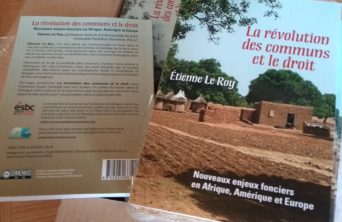 " alt="La révolution des communs et le droit" width="342" height="222" srcset="
" alt="La révolution des communs et le droit" width="342" height="222" srcset="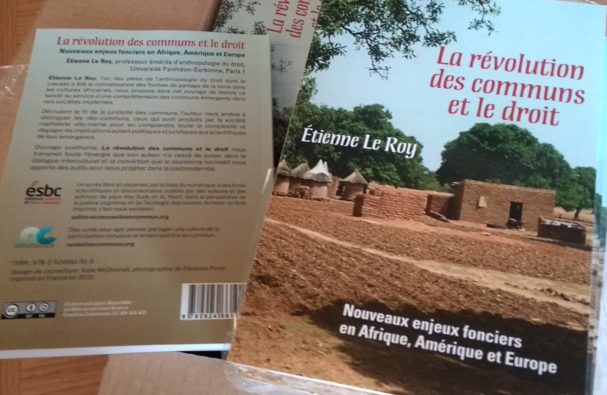 607w,
607w, 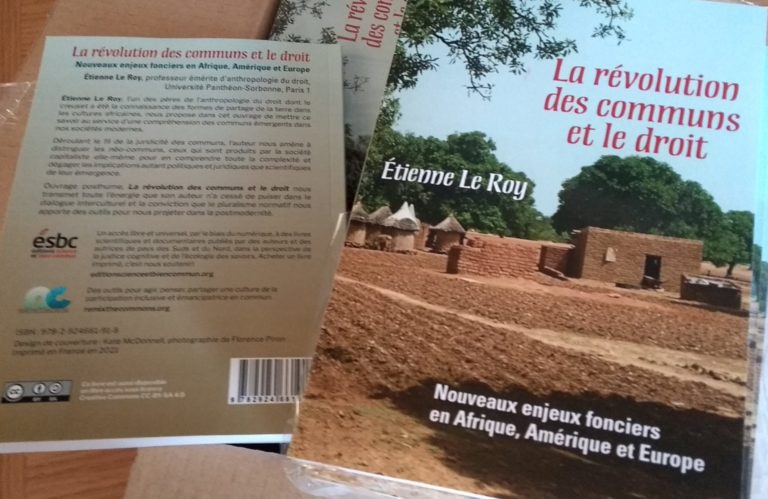 768w,
768w, 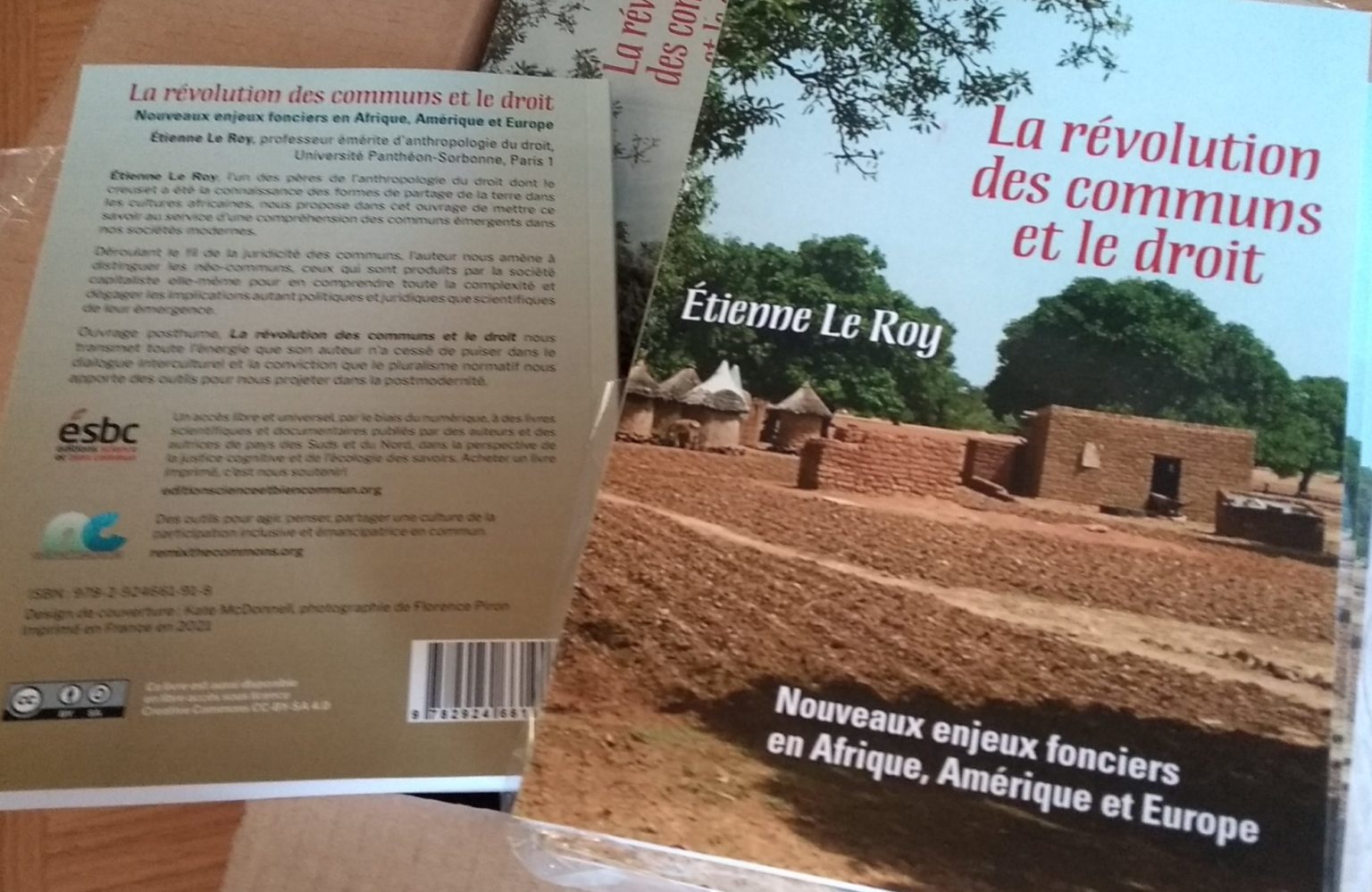 1536w,
1536w, 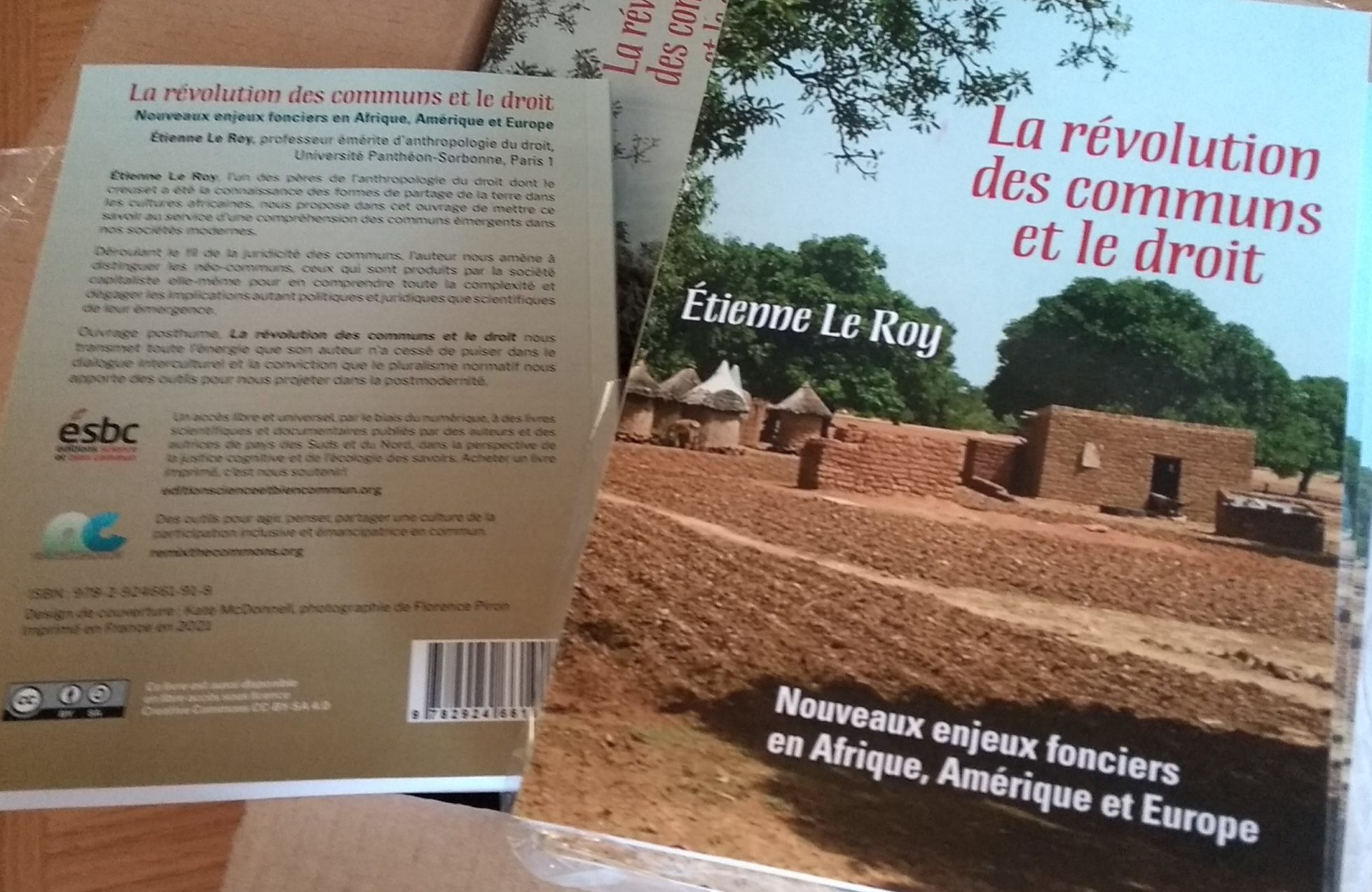 1958w" sizes="(max-width: 342px) 100vw, 342px" /><figcaption id="caption-attachment-6635" class="wp-caption-text">La révolution des communs et le droit</figcaption></figure>
1958w" sizes="(max-width: 342px) 100vw, 342px" /><figcaption id="caption-attachment-6635" class="wp-caption-text">La révolution des communs et le droit</figcaption></figure>
 " alt="By Alaina Buzas " width="1024" height="681" /><figcaption id="caption-attachment-4643" class="wp-caption-text">By Alaina Buzas</figcaption></figure>
" alt="By Alaina Buzas " width="1024" height="681" /><figcaption id="caption-attachment-4643" class="wp-caption-text">By Alaina Buzas</figcaption></figure>
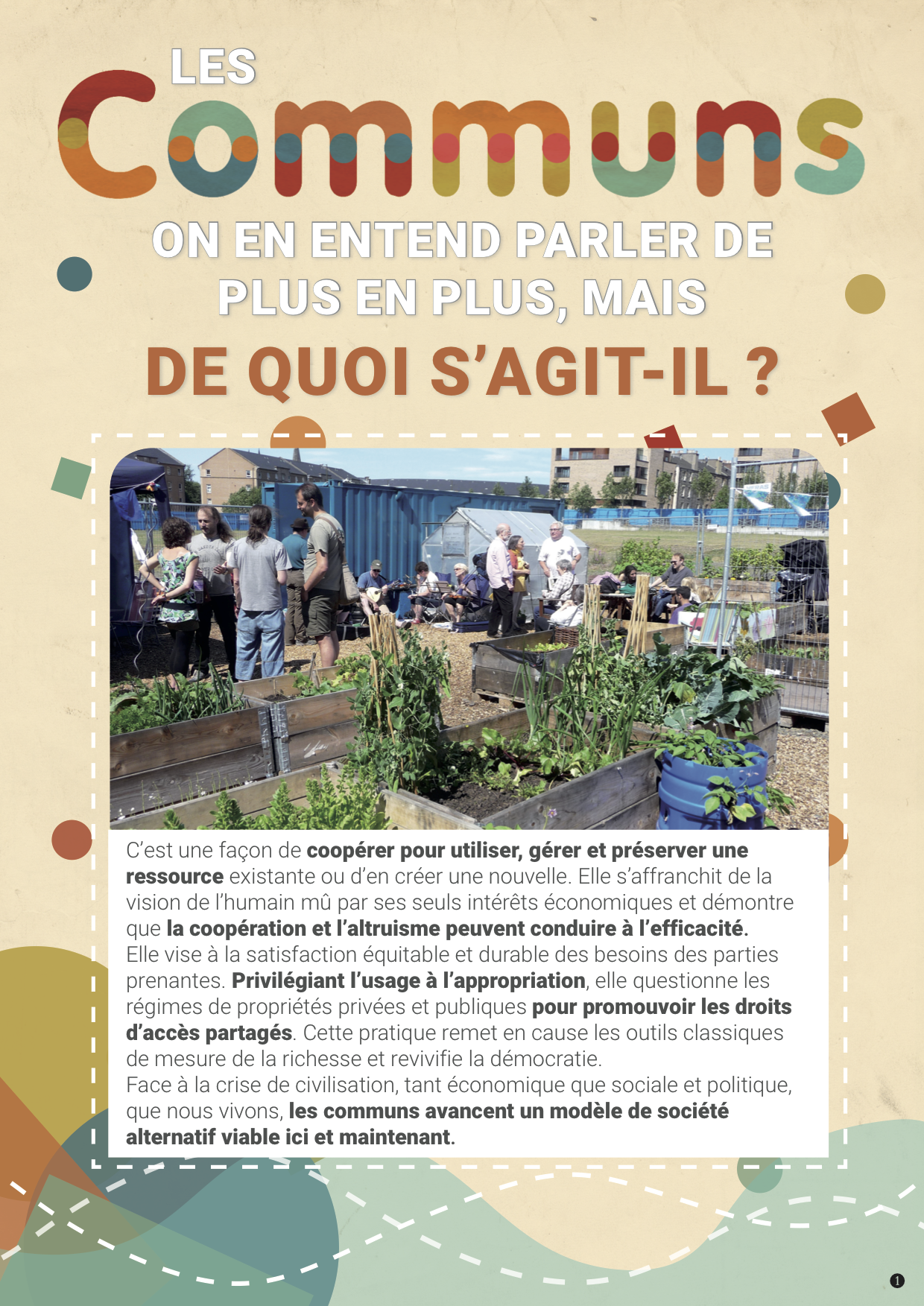 " alt="Expo Les communs" width="1240" height="1753" /><figcaption class="wp-caption-text">Expo Les communs – CC-BY-SA.</figcaption></figure>
" alt="Expo Les communs" width="1240" height="1753" /><figcaption class="wp-caption-text">Expo Les communs – CC-BY-SA.</figcaption></figure>
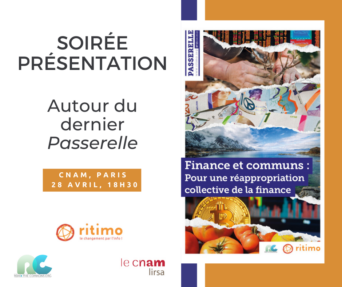 " alt="Visuel Soirée Passerelle n°23" width="395" height="331" srcset="
" alt="Visuel Soirée Passerelle n°23" width="395" height="331" srcset="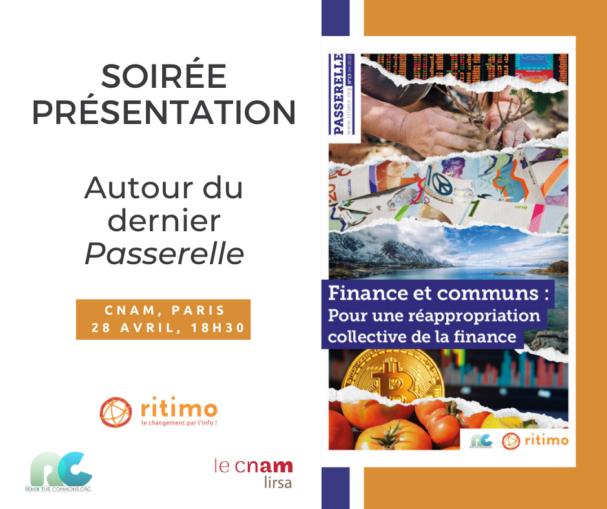 607w,
607w, 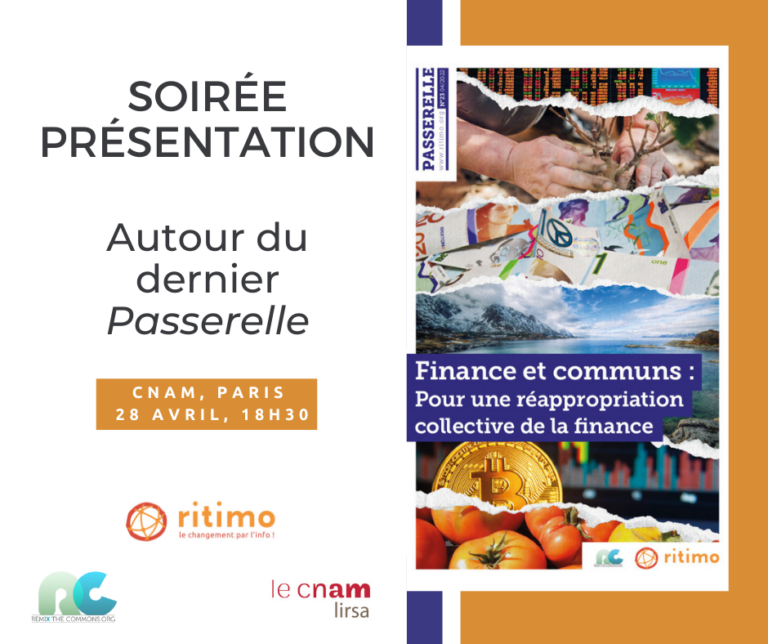 768w,
768w, 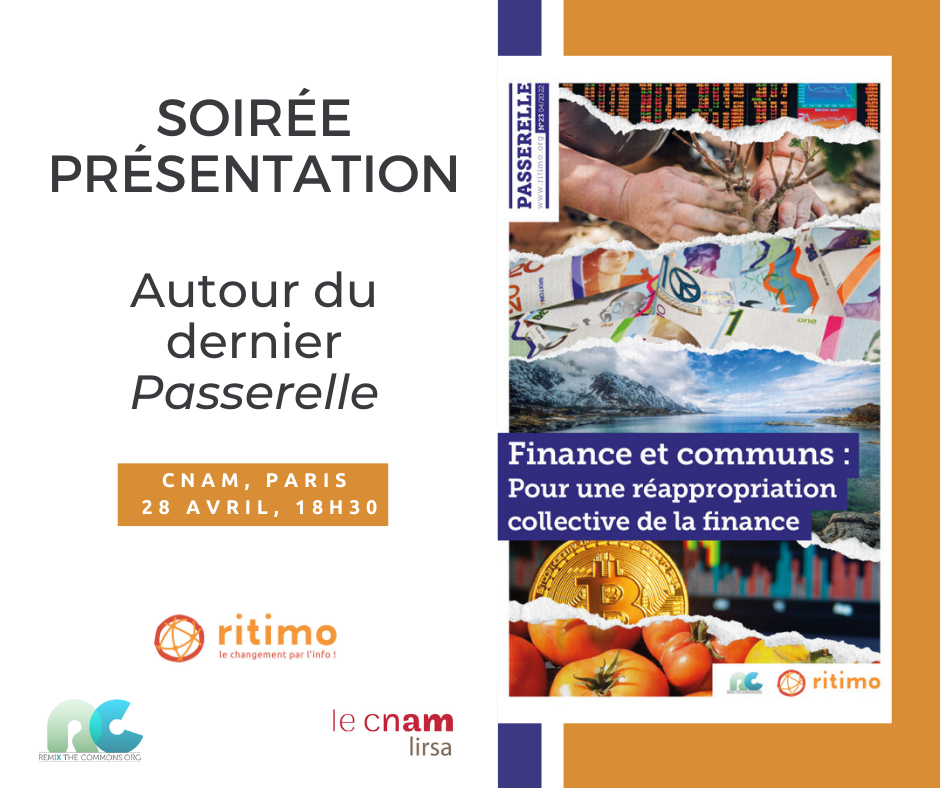 940w" sizes="(max-width: 395px) 100vw, 395px" />
940w" sizes="(max-width: 395px) 100vw, 395px" />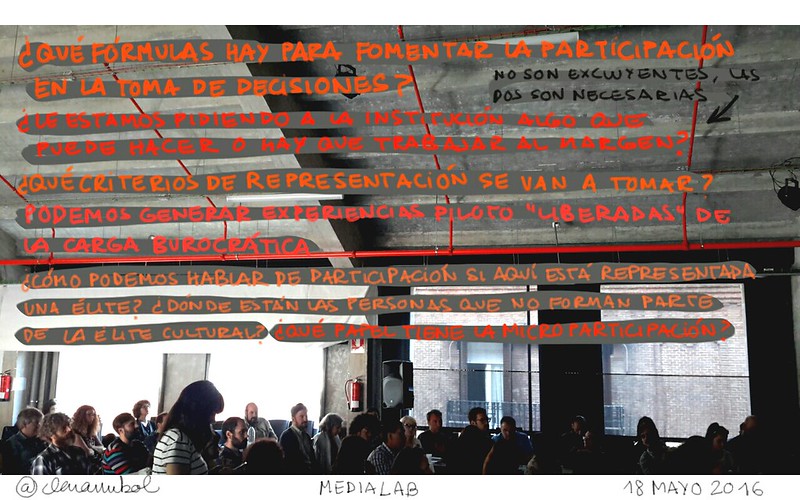 " alt="18.05.16 Taller" width="800" height="500" /></a><script async src="//embedr.flickr.com/assets/client-code.js" charset="utf-8"></script>
" alt="18.05.16 Taller" width="800" height="500" /></a><script async src="//embedr.flickr.com/assets/client-code.js" charset="utf-8"></script> "><img decoding="async" loading="lazy" class="aligncenter size-medium wp-image-4194" src="
"><img decoding="async" loading="lazy" class="aligncenter size-medium wp-image-4194" src=" " alt="Move North South Water" width="198" height="300" /></a>
" alt="Move North South Water" width="198" height="300" /></a> " alt="IMG_0071-1024x768" width="800" height="600" />
" alt="IMG_0071-1024x768" width="800" height="600" />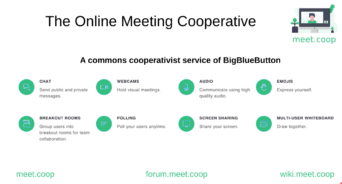 " alt="" width="342" height="184" srcset="
" alt="" width="342" height="184" srcset="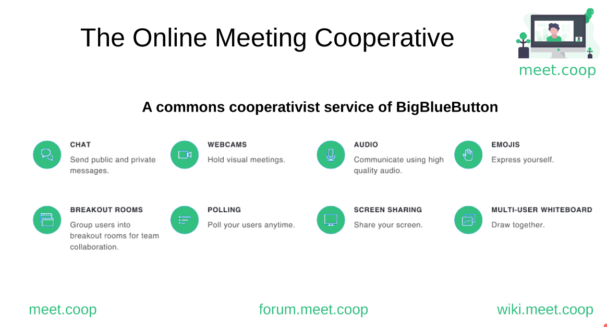 607w,
607w, 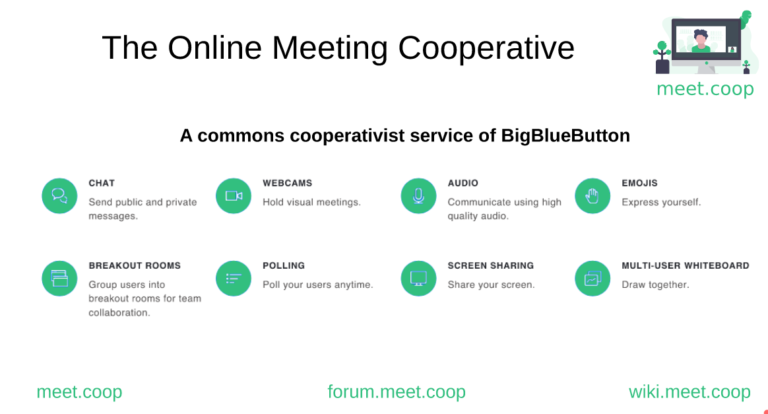 768w,
768w, 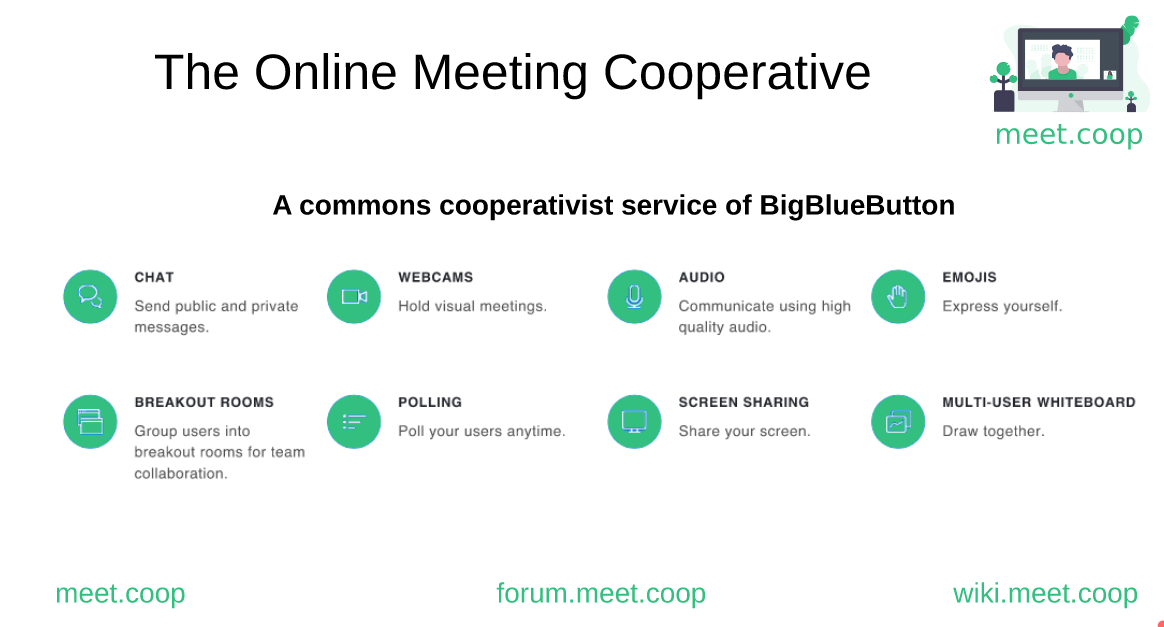 1164w" sizes="(max-width: 342px) 100vw, 342px" />Depuis plus d’un an, à <a href="
1164w" sizes="(max-width: 342px) 100vw, 342px" />Depuis plus d’un an, à <a href=" " alt="" width="600" height="300" />
" alt="" width="600" height="300" /> "><img decoding="async" loading="lazy" class="size-full wp-image-4247" src="
"><img decoding="async" loading="lazy" class="size-full wp-image-4247" src="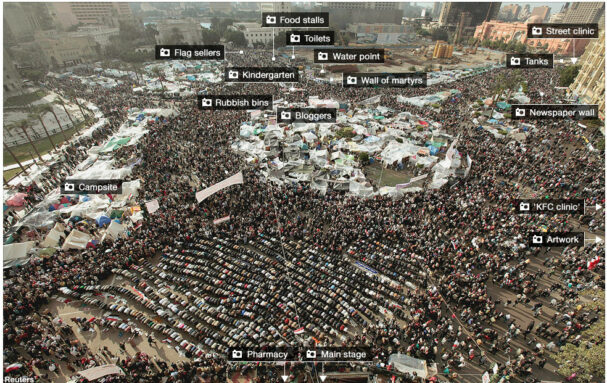 " alt="" width="607" height="383" srcset="
" alt="" width="607" height="383" srcset="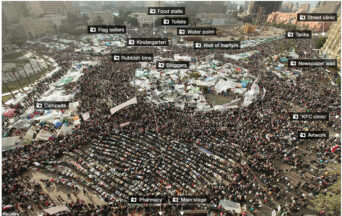 342w,
342w, 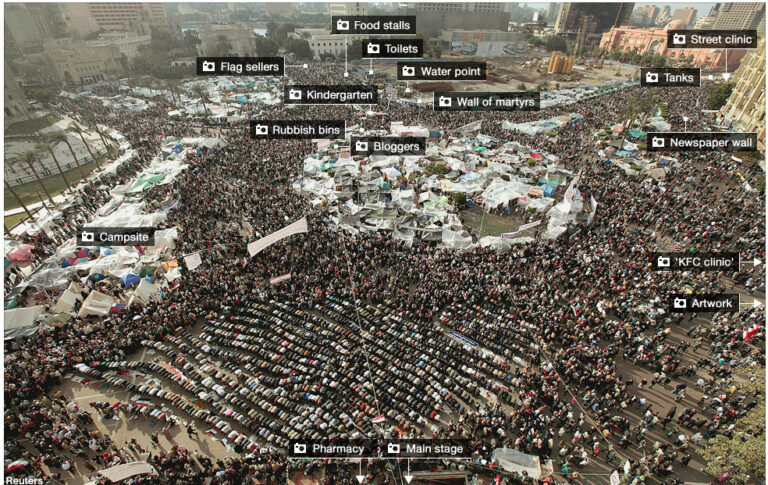 768w,
768w, 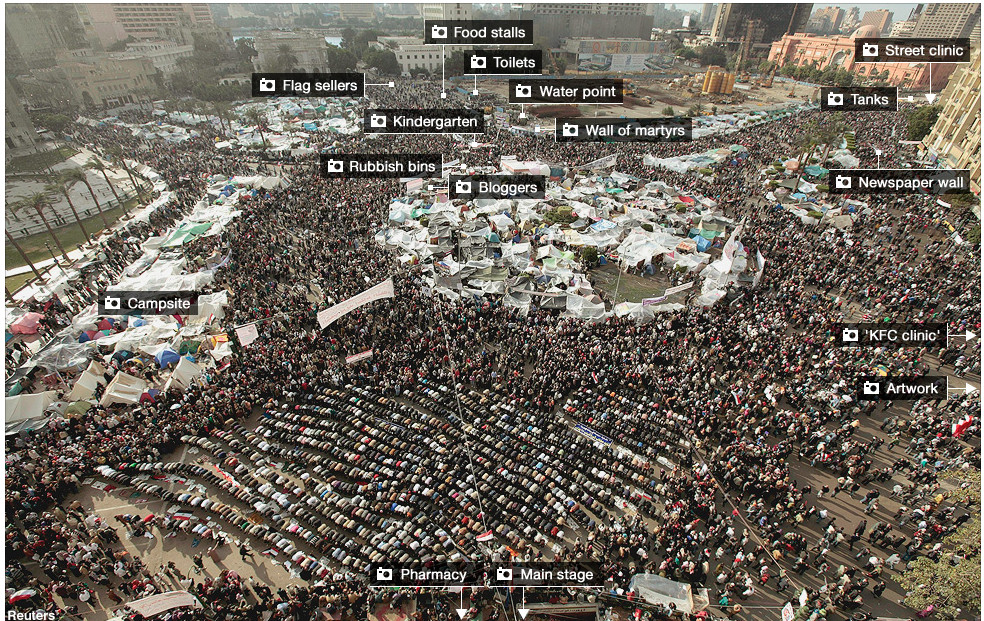 984w" sizes="(max-width: 607px) 100vw, 607px" />
984w" sizes="(max-width: 607px) 100vw, 607px" /> " alt="Joan_Subirats_2013_(cropped)" width="423" height="526" />
" alt="Joan_Subirats_2013_(cropped)" width="423" height="526" />.jpg) ">By Directa (youtube) [CC BY 3.0 (
">By Directa (youtube) [CC BY 3.0 ( "><img decoding="async" loading="lazy" class="aligncenter wp-image-4335 size-full" src="
"><img decoding="async" loading="lazy" class="aligncenter wp-image-4335 size-full" src="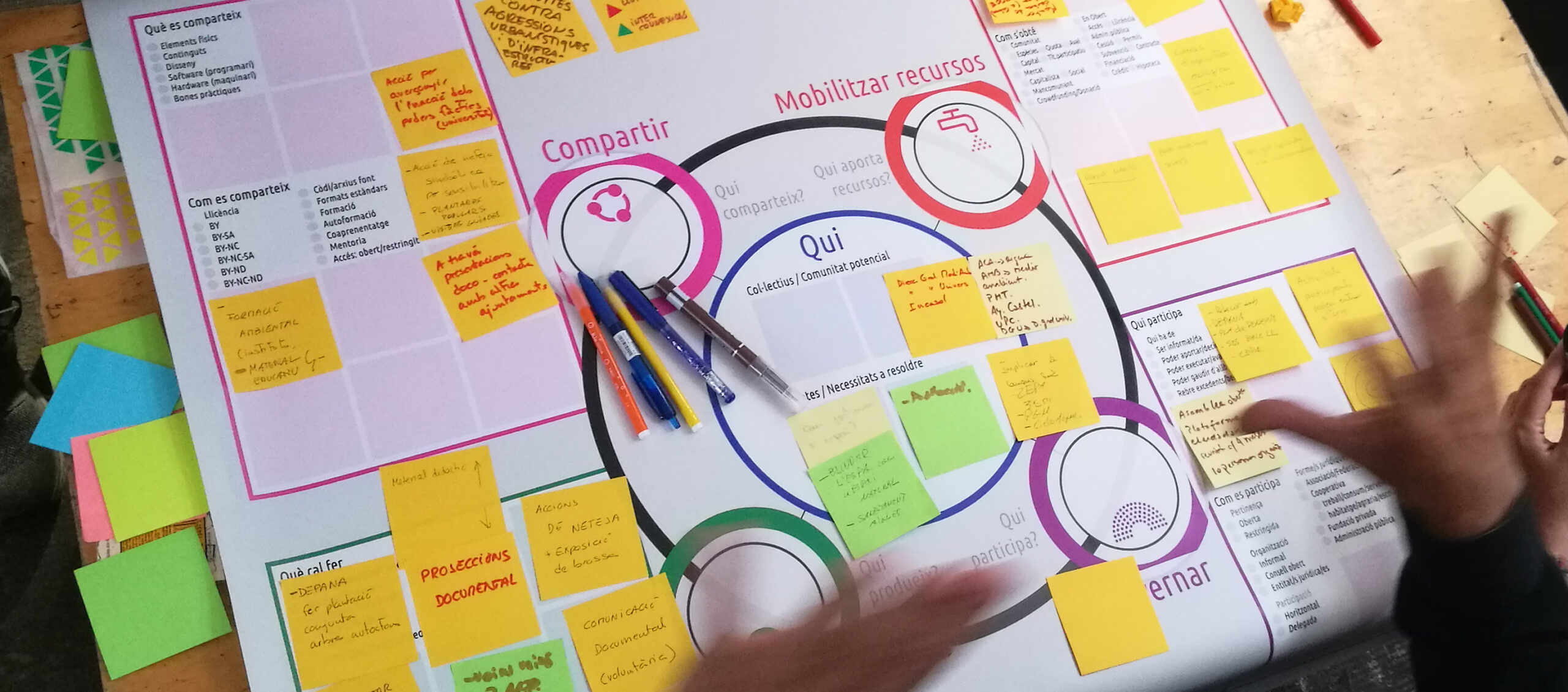 " alt="" width="2560" height="1130" srcset="
" alt="" width="2560" height="1130" srcset="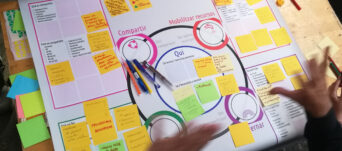 342w,
342w, 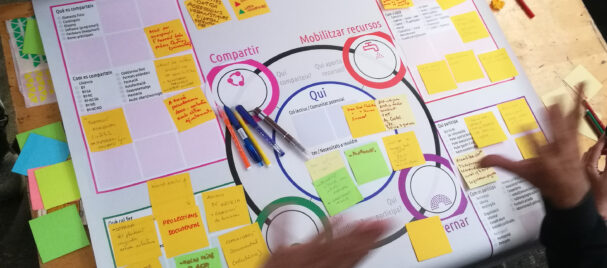 607w,
607w, 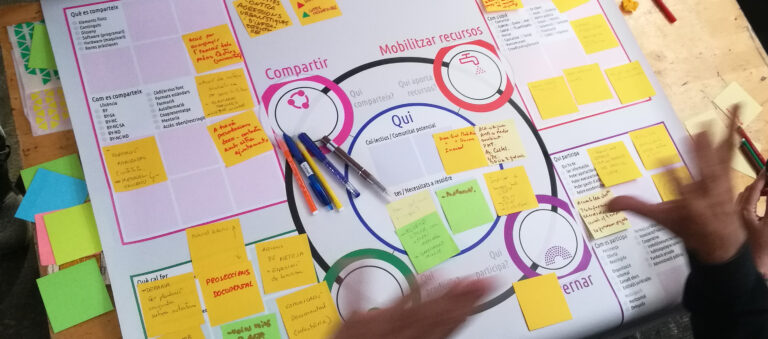 768w,
768w, 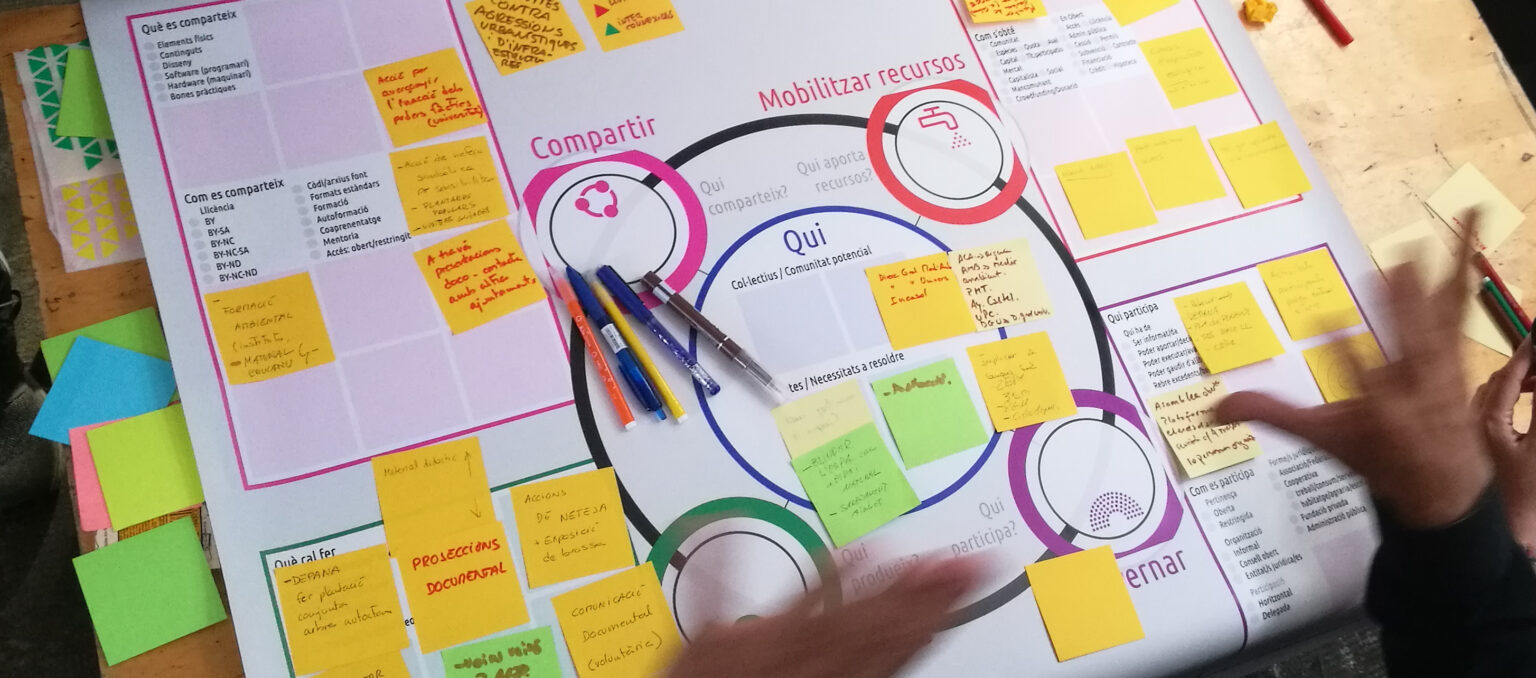 1536w,
1536w, 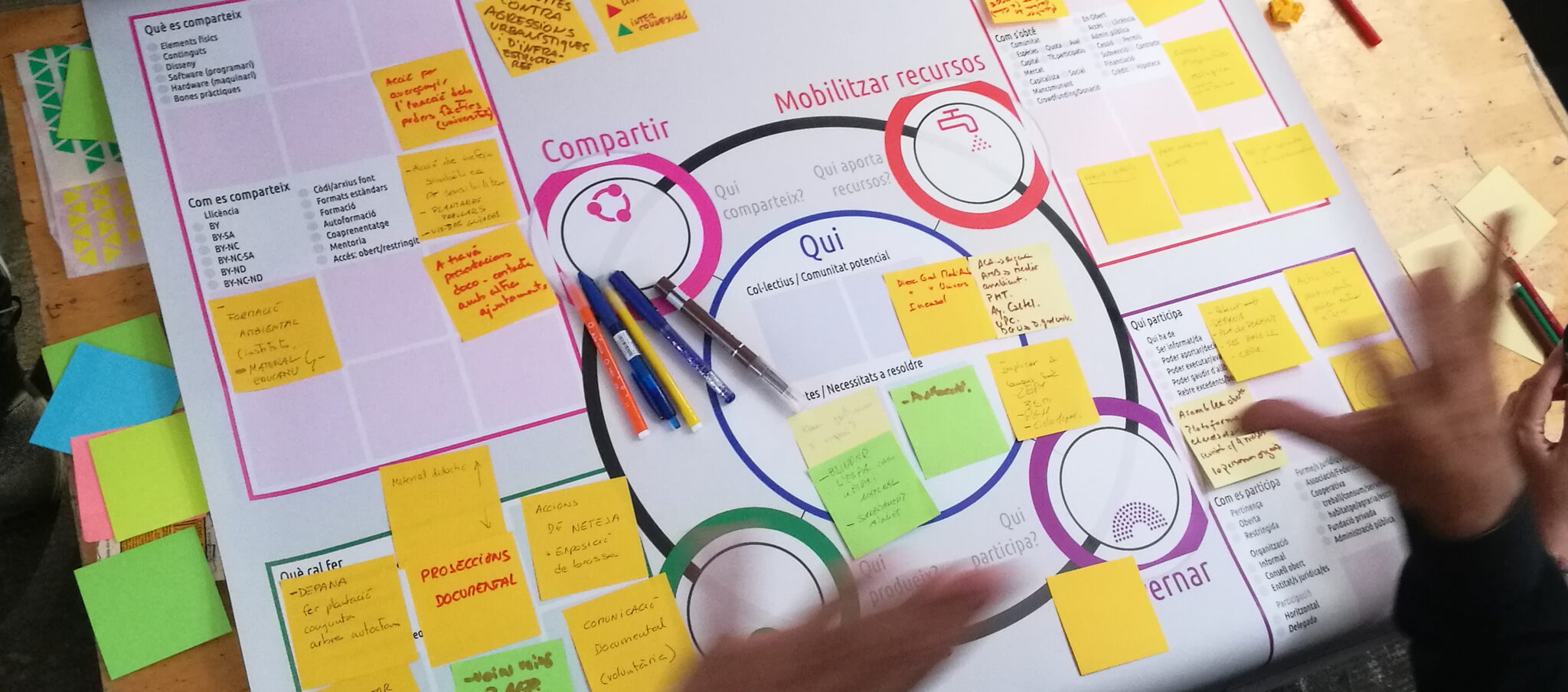 2048w" sizes="(max-width: 2560px) 100vw, 2560px" /><figcaption id="caption-attachment-6826" class="wp-caption-text">cof</figcaption></figure>
2048w" sizes="(max-width: 2560px) 100vw, 2560px" /><figcaption id="caption-attachment-6826" class="wp-caption-text">cof</figcaption></figure>
 " alt="AMAP Goutte d'Or IMG 20210925 115029818 25.jpg" width="3264" height="1836" /></a>
" alt="AMAP Goutte d'Or IMG 20210925 115029818 25.jpg" width="3264" height="1836" /></a>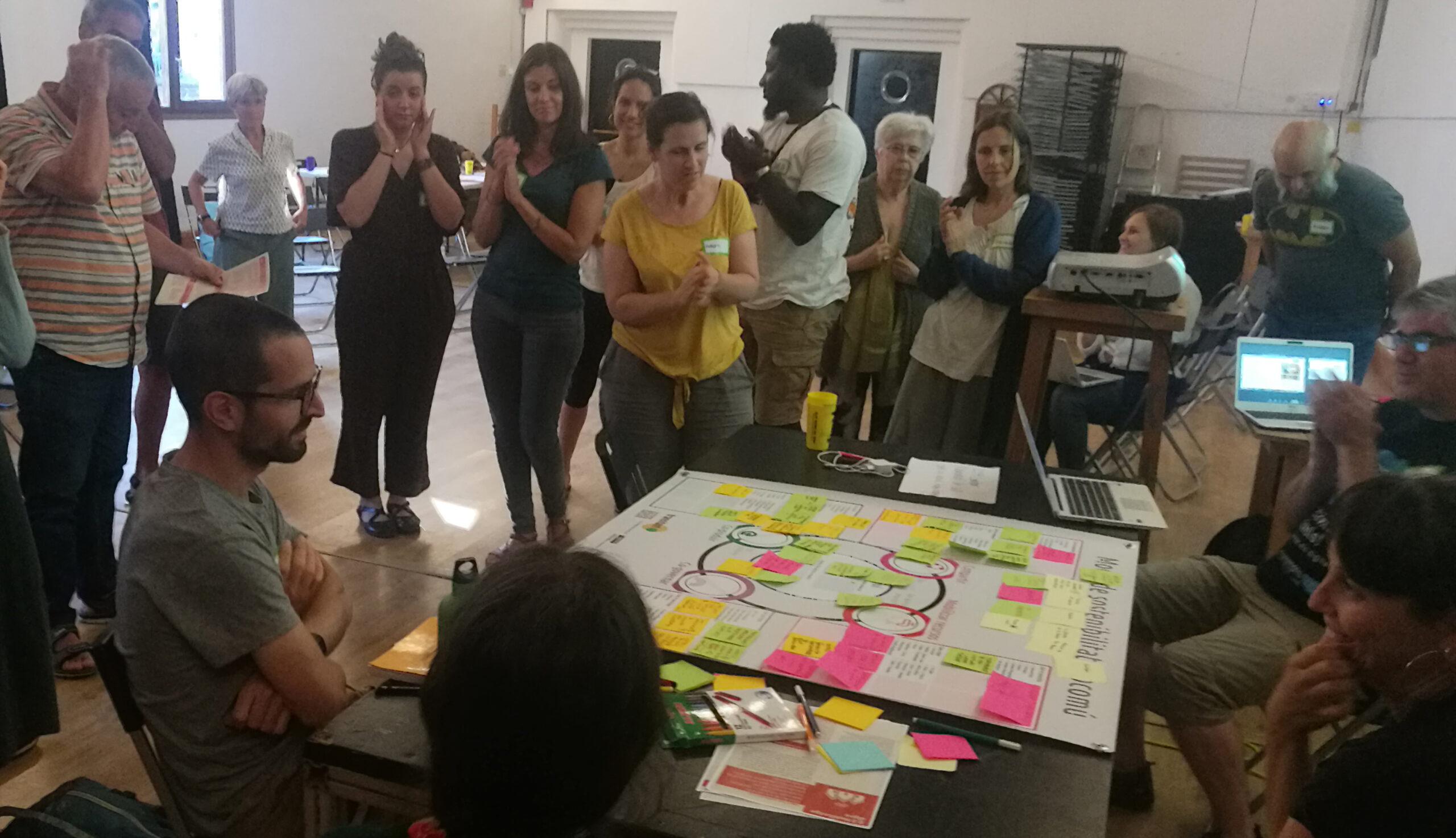 " alt="" width="2560" height="1473" srcset="
" alt="" width="2560" height="1473" srcset="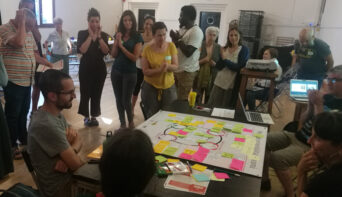 342w,
342w, 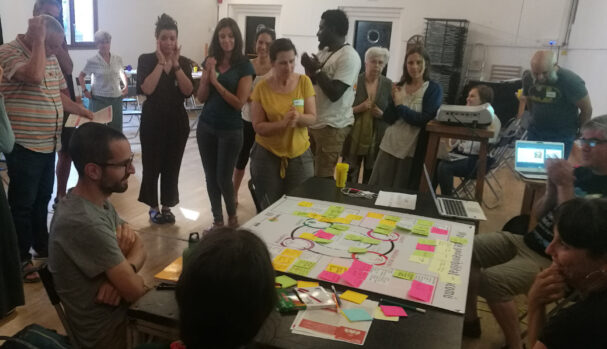 607w,
607w, 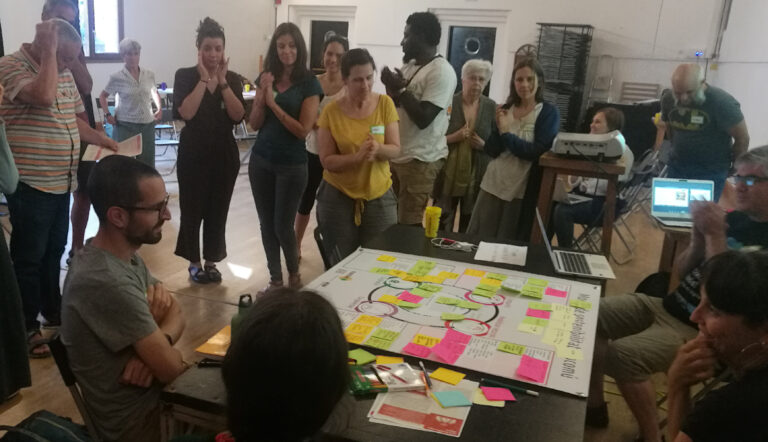 768w,
768w, 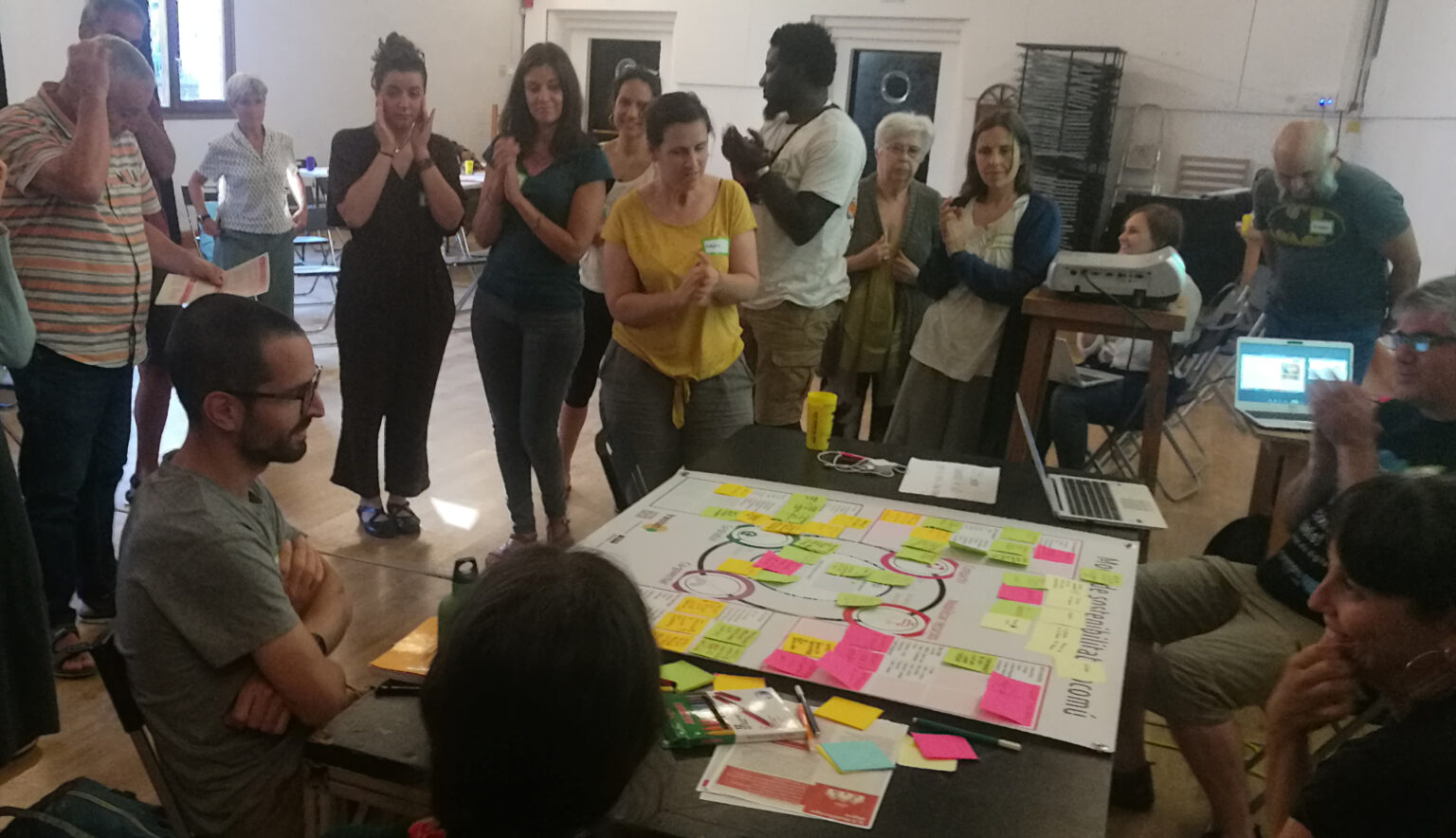 1536w,
1536w, 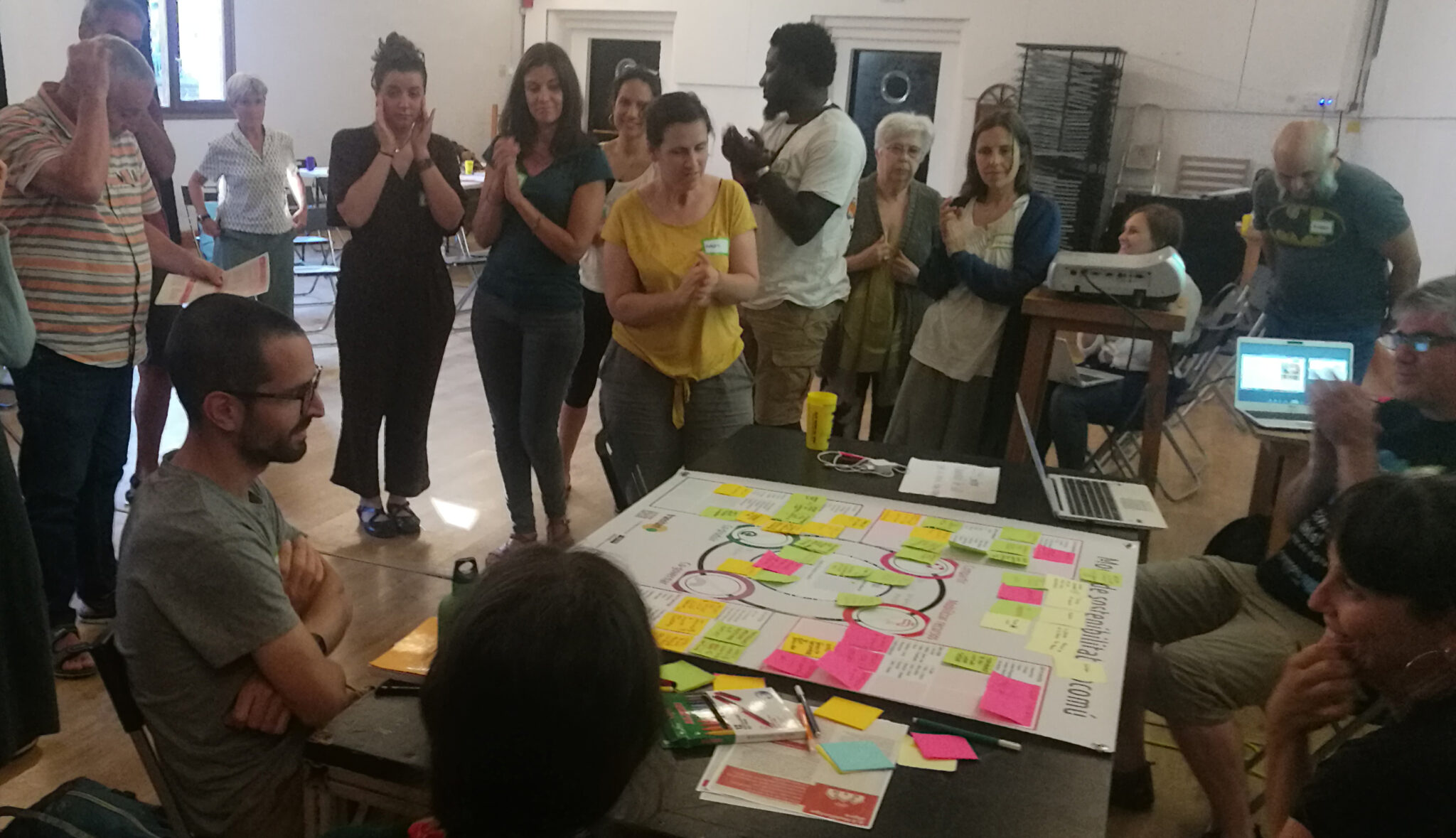 2048w" sizes="(max-width: 2560px) 100vw, 2560px" /><figcaption id="caption-attachment-6825" class="wp-caption-text">cof</figcaption></figure>
2048w" sizes="(max-width: 2560px) 100vw, 2560px" /><figcaption id="caption-attachment-6825" class="wp-caption-text">cof</figcaption></figure>
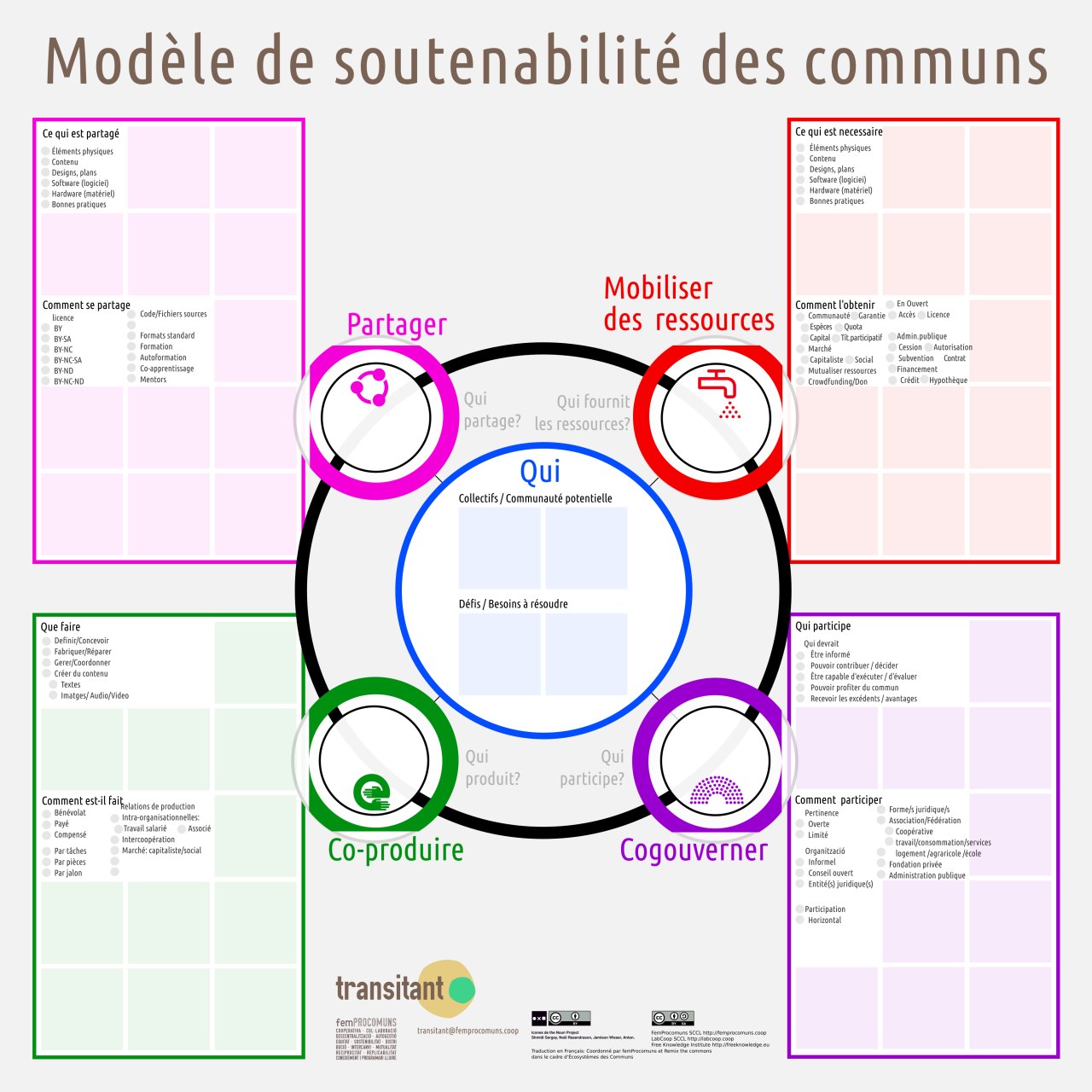 " alt="" width="1280" height="1280" srcset="
" alt="" width="1280" height="1280" srcset="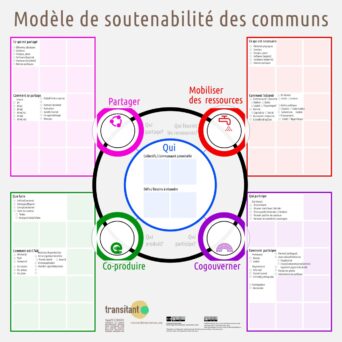 342w,
342w, 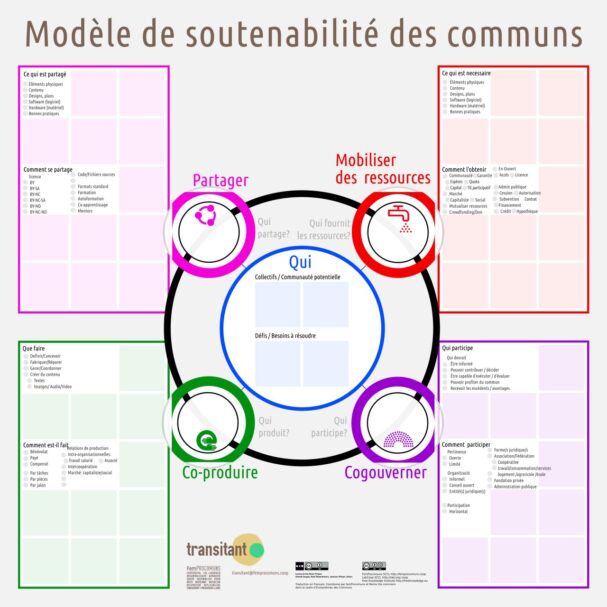 607w,
607w, 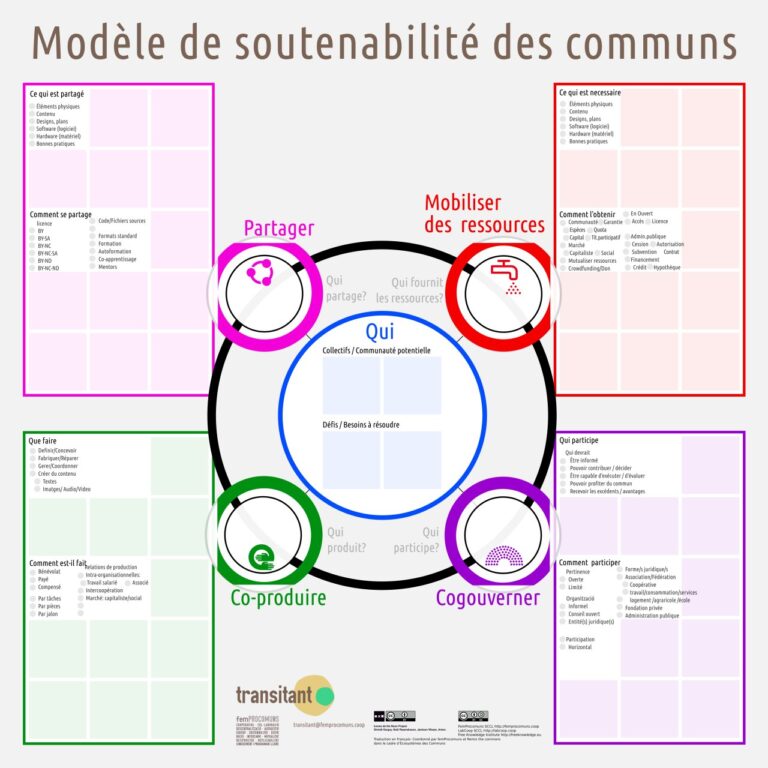 768w" sizes="(max-width: 1280px) 100vw, 1280px" />
768w" sizes="(max-width: 1280px) 100vw, 1280px" /> " alt="eca" width="900" height="636" class="aligncenter size-medium wp-image-4561" />
" alt="eca" width="900" height="636" class="aligncenter size-medium wp-image-4561" /> "><img decoding="async" loading="lazy" class="aligncenter size-large wp-image-4035" src="
"><img decoding="async" loading="lazy" class="aligncenter size-large wp-image-4035" src=" " alt="20141107_162027" width="1024" height="576" /></a>
" alt="20141107_162027" width="1024" height="576" /></a> " alt="Sylviafredriksson_du possible" width="640" height="640" />
" alt="Sylviafredriksson_du possible" width="640" height="640" /> " width="400" height="225" /><figcaption class="wp-caption-text">Michel Bauwens – Berlin 2012 Remix The Commons – Licence Creative Commons Attribution-Share Alike 3.0</figcaption></figure>
" width="400" height="225" /><figcaption class="wp-caption-text">Michel Bauwens – Berlin 2012 Remix The Commons – Licence Creative Commons Attribution-Share Alike 3.0</figcaption></figure>
 "><img decoding="async" loading="lazy" src="
"><img decoding="async" loading="lazy" src="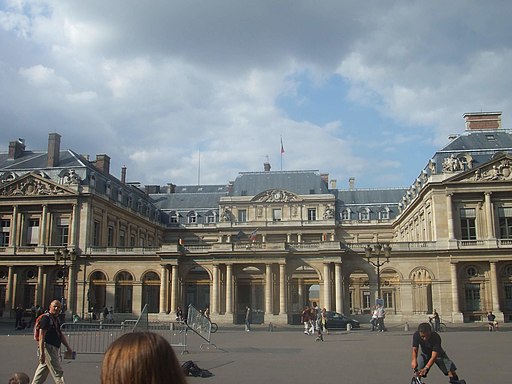 " alt="<a href="
" alt="<a href="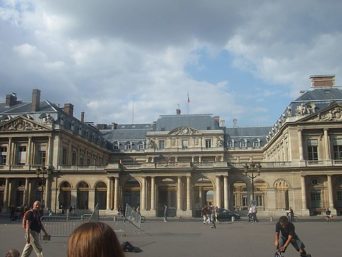 342w" sizes="(max-width: 512px) 100vw, 512px" /><figcaption id="caption-attachment-6619" class="wp-caption-text"><a href="
342w" sizes="(max-width: 512px) 100vw, 512px" /><figcaption id="caption-attachment-6619" class="wp-caption-text"><a href=" " alt="20141107_162027" width="300" height="168" /></a> Tout au long de ces trois jours, cette pratique a été mise au service d’une découverte approfondie des biens communs, de la posture du commoner et du commoning. Le premier jour a permis de poser les piliers de ces pratiques à travers des conversations entre les invités et les participants. La première d’entre elle consistait à demander aux invités étrangers, « experts » des communs, de raconter en se placant au centre d’un cercle, les défis qu’ils rencontrent lorsqu’ils doivent parler des biens communs. S’en suivait une ronde au cours de laquelle chaque personne qui le souhaitait pouvait prendre place au centre du cercle pour dialoguer avec l’expert. Une autre conversation visait à partager des piliers du commoning dans un temps de co-apprentissage.
" alt="20141107_162027" width="300" height="168" /></a> Tout au long de ces trois jours, cette pratique a été mise au service d’une découverte approfondie des biens communs, de la posture du commoner et du commoning. Le premier jour a permis de poser les piliers de ces pratiques à travers des conversations entre les invités et les participants. La première d’entre elle consistait à demander aux invités étrangers, « experts » des communs, de raconter en se placant au centre d’un cercle, les défis qu’ils rencontrent lorsqu’ils doivent parler des biens communs. S’en suivait une ronde au cours de laquelle chaque personne qui le souhaitait pouvait prendre place au centre du cercle pour dialoguer avec l’expert. Une autre conversation visait à partager des piliers du commoning dans un temps de co-apprentissage. "><img decoding="async" loading="lazy" class="alignleft size-medium wp-image-4034" src="
"><img decoding="async" loading="lazy" class="alignleft size-medium wp-image-4034" src=" " alt="20141109_054124" width="300" height="168" /></a> Le troisième jour de rencontre a été consacré à contribuer à des communs vivants ou en projet : 14 initiatives ont été proposées par leurs initiateurs dans différents tiers-lieux de Montréal. Les participants avaient été invités à constituer une « banque de temps » volontairement dédié aux biens communs au moment de leur inscription. Une partie de ce temps à donc été dépensé lors de cette journée. Ce qu’il en reste pourra être mis au service des biens communs dans le futur proche. Avec Alain Ambrosi, nous avons invité les participants à prendre part au projet de « l’école des communs ». Nous avons commencé par partager l’histoire des écoles des communs telle que nous la connaissons. Nous avons présenté la chronologie des événements qui s’y rapportent depuis quelques années, ainsi que la diversité des pratiques qui s’y rattachent : festival, rencontres, ateliers, université d’été, plateforme de documentation des communs et du commoning, exploration et développement d’un vocabulaire des communs. Dans un deuxième temps, nous avons approfondies les visions de l’école des communs dans une conversation ouverte et alimentée par la <a href="
" alt="20141109_054124" width="300" height="168" /></a> Le troisième jour de rencontre a été consacré à contribuer à des communs vivants ou en projet : 14 initiatives ont été proposées par leurs initiateurs dans différents tiers-lieux de Montréal. Les participants avaient été invités à constituer une « banque de temps » volontairement dédié aux biens communs au moment de leur inscription. Une partie de ce temps à donc été dépensé lors de cette journée. Ce qu’il en reste pourra être mis au service des biens communs dans le futur proche. Avec Alain Ambrosi, nous avons invité les participants à prendre part au projet de « l’école des communs ». Nous avons commencé par partager l’histoire des écoles des communs telle que nous la connaissons. Nous avons présenté la chronologie des événements qui s’y rapportent depuis quelques années, ainsi que la diversité des pratiques qui s’y rattachent : festival, rencontres, ateliers, université d’été, plateforme de documentation des communs et du commoning, exploration et développement d’un vocabulaire des communs. Dans un deuxième temps, nous avons approfondies les visions de l’école des communs dans une conversation ouverte et alimentée par la <a href=" "><img decoding="async" loading="lazy" class="alignleft size-medium wp-image-4044" src="
"><img decoding="async" loading="lazy" class="alignleft size-medium wp-image-4044" src=" " alt="20141107_190821" width="210" height="300" /></a>Cela a été par exemple le cas pour les repas pris ensemble. Pour le premier jour, il a été fait appel à un traiteur bio et végétarien de très grande qualité afin de s’assurer de satisfaire les besoins de chacun. L’accent a été mis sur la convivialité et l’accueil des participants. Ce repas a été un régal et personne n’a pu résister à leur brownies ! Le deuxième jour, les participants ont été invités à préparer ce qui leur ferait plaisir de partager et à apporter de quoi manger pour 2 personnes. Une tablée magnifique, longue de 70 convivesn, a été dressée à l’heure du déjeuner et chacun a pu déguster les mets de son choix. Enfin le troisième jour, le repas (pour la soirée de célébration) a été cuisiné en commun et servi à table dans une agréable ambiance festive.
" alt="20141107_190821" width="210" height="300" /></a>Cela a été par exemple le cas pour les repas pris ensemble. Pour le premier jour, il a été fait appel à un traiteur bio et végétarien de très grande qualité afin de s’assurer de satisfaire les besoins de chacun. L’accent a été mis sur la convivialité et l’accueil des participants. Ce repas a été un régal et personne n’a pu résister à leur brownies ! Le deuxième jour, les participants ont été invités à préparer ce qui leur ferait plaisir de partager et à apporter de quoi manger pour 2 personnes. Une tablée magnifique, longue de 70 convivesn, a été dressée à l’heure du déjeuner et chacun a pu déguster les mets de son choix. Enfin le troisième jour, le repas (pour la soirée de célébration) a été cuisiné en commun et servi à table dans une agréable ambiance festive.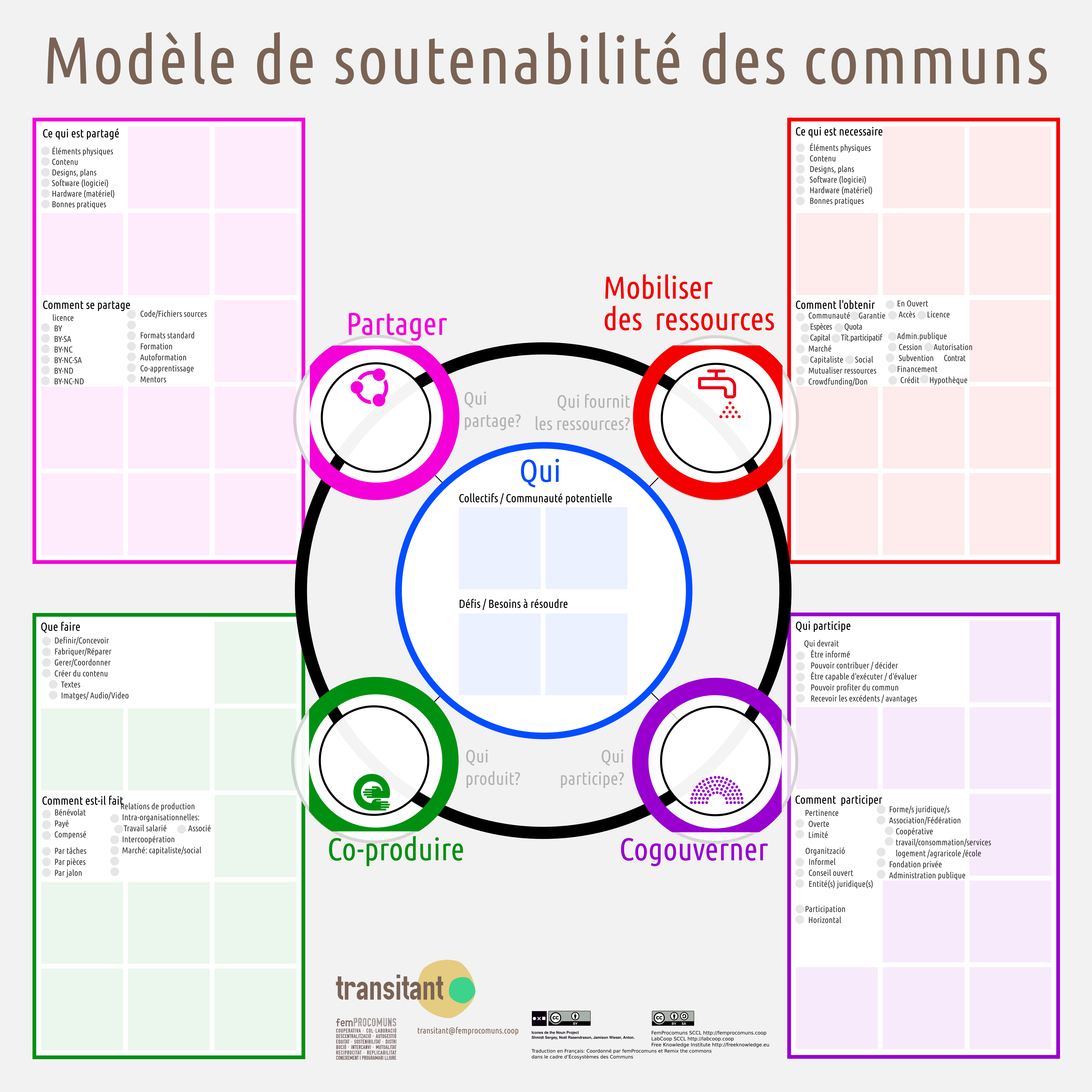 " sizes="(max-width: 275px) 100vw, 275px" srcset="
" sizes="(max-width: 275px) 100vw, 275px" srcset="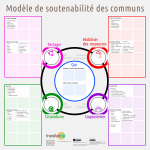 150w,
150w, 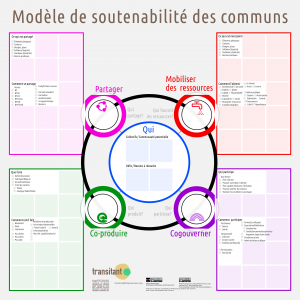 300w,
300w, 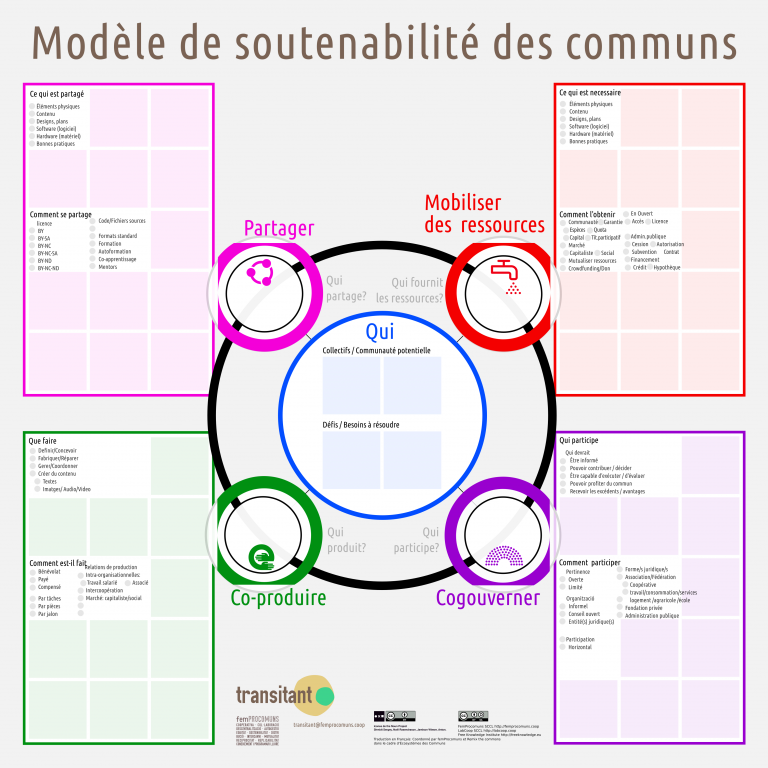 768w,
768w, 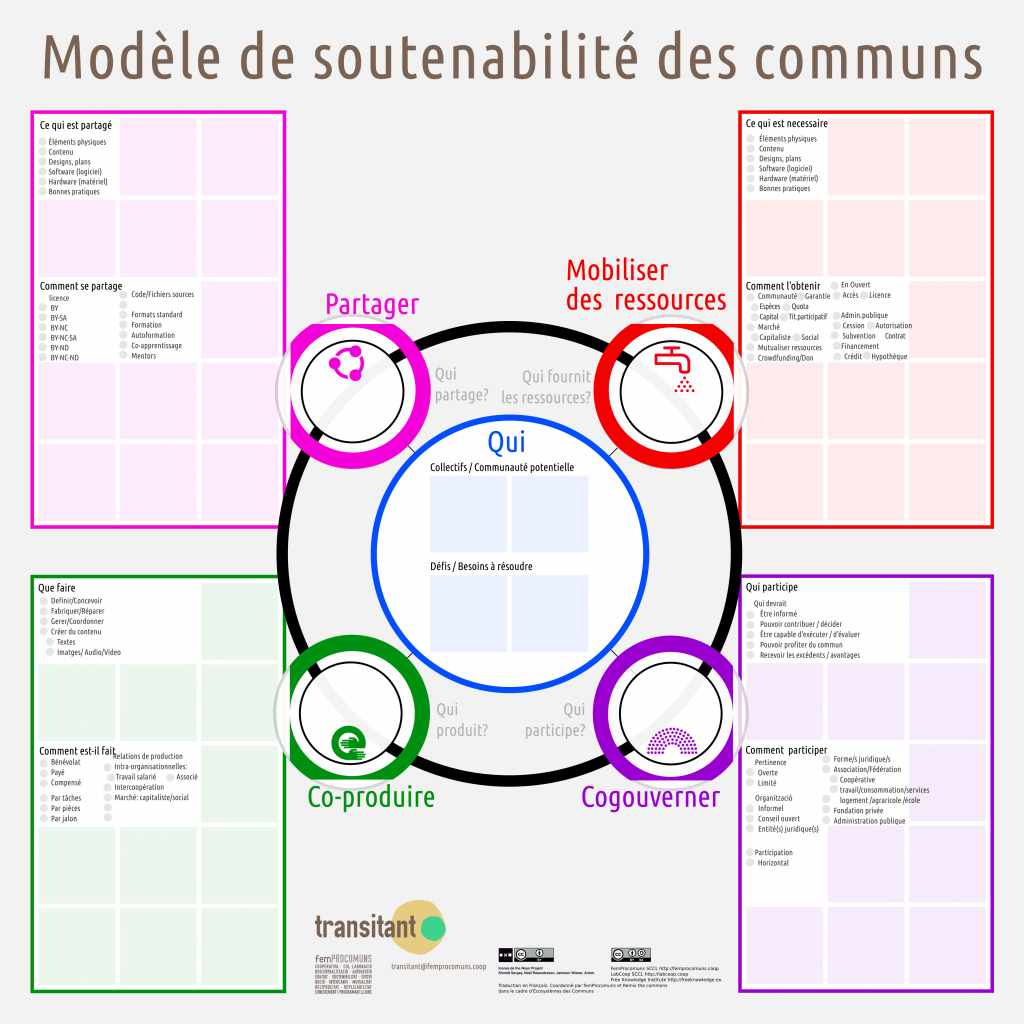 1024w" alt="" width="275" height="275" />Écosystème de Transition est une série de rencontres organisées par le <a href="
1024w" alt="" width="275" height="275" />Écosystème de Transition est une série de rencontres organisées par le <a href="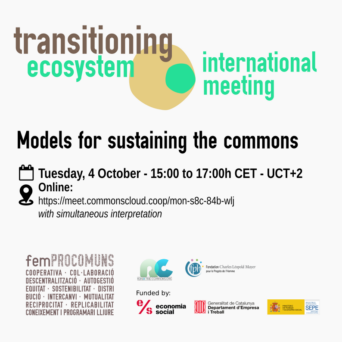 " sizes="(max-width: 266px) 100vw, 266px" srcset="
" sizes="(max-width: 266px) 100vw, 266px" srcset="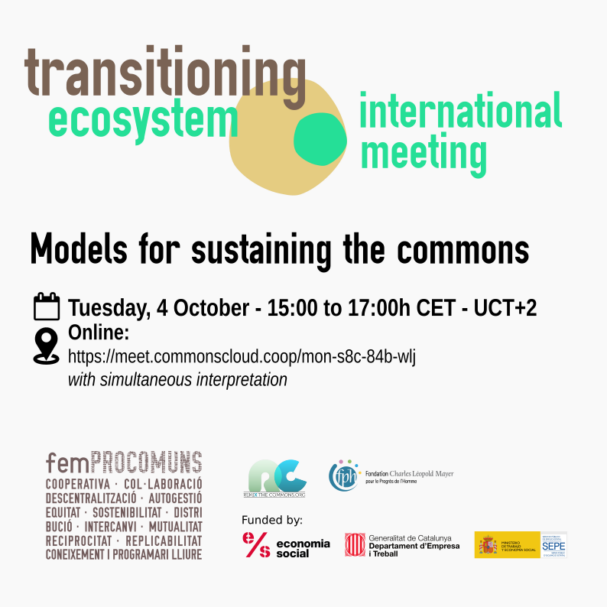 607w,
607w, 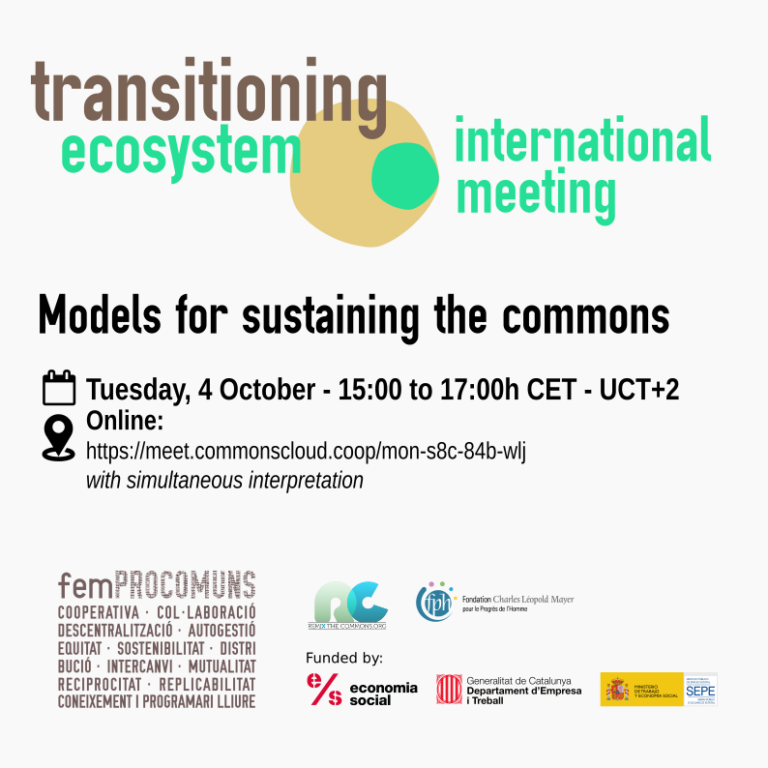 768w,
768w, 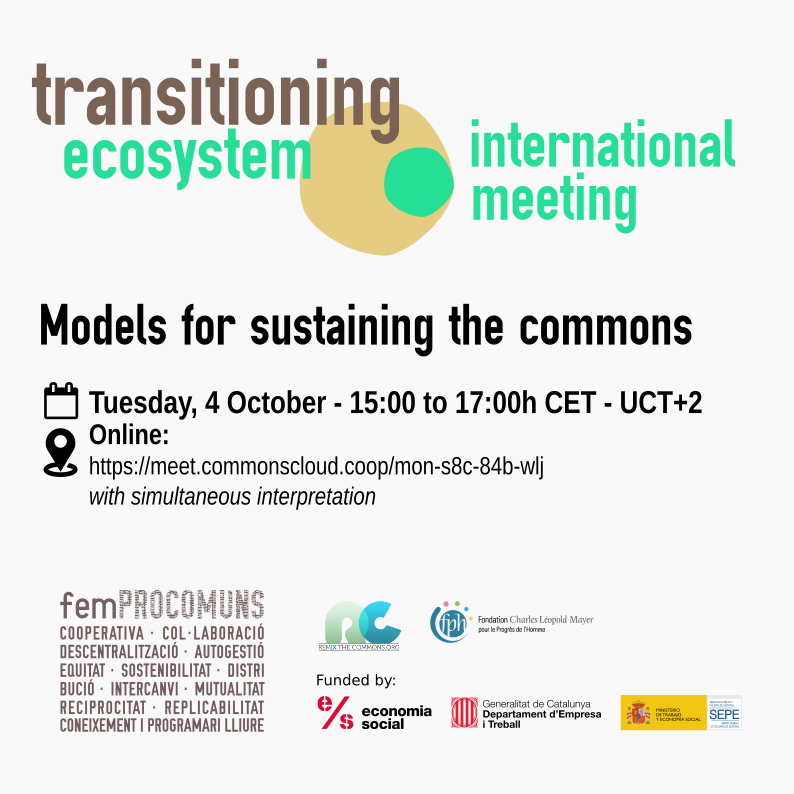 794w" alt="" width="266" height="266" /></a>Nous avons testé le modèle de soutenabilité des communs, nous avons élaboré des textes explicatifs détaillant le cadre théorique et conceptuel et nous avons développé un kit de ressources avec des outils visuels et des jeux pour explorer et travailler sur des projets dans une perspective plus communautaire, écologique et féministe.
794w" alt="" width="266" height="266" /></a>Nous avons testé le modèle de soutenabilité des communs, nous avons élaboré des textes explicatifs détaillant le cadre théorique et conceptuel et nous avons développé un kit de ressources avec des outils visuels et des jeux pour explorer et travailler sur des projets dans une perspective plus communautaire, écologique et féministe.